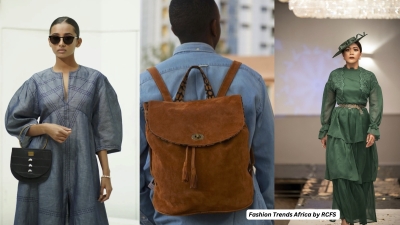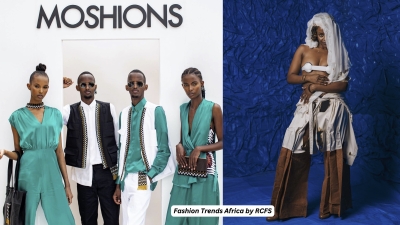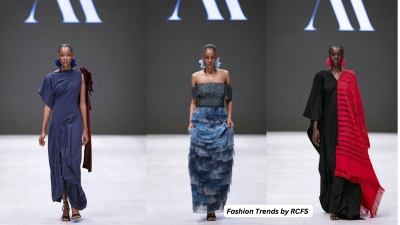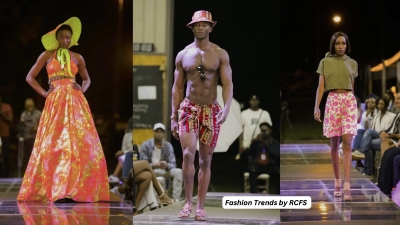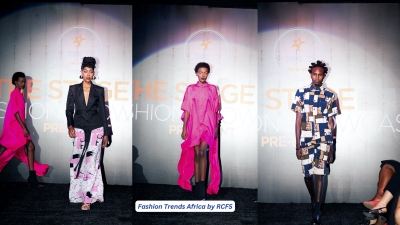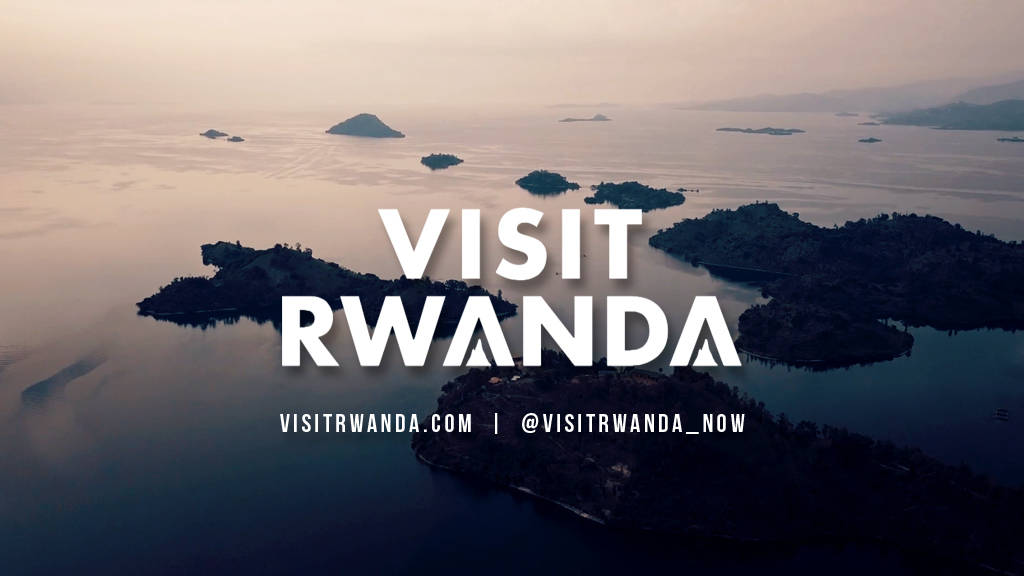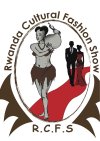
RCFS
Who Are the Five African Fashion Designers in the TechStitched Programme?
The TechStitched is the latest fashion residency programme, unveiled last week in Ethiopia. It has been designed in collaboration with the esteemed Hub of Africa Fashion Week and Guzo Technologies. It is a beacon of innovation and partnership within the African fashion landscape.
At its core, the TechStitched Fashion Residency Programme is all about creative exchange and cross-cultural engagement. Through a meticulous selection process, fashion designers hailing from the stages of Hub of Africa, Accra, Swahili, South Africa, and Lagos Fashion Weeks have converged in Ethiopia, for an immersive journey of exploration, craftsmanship, and collaboration.
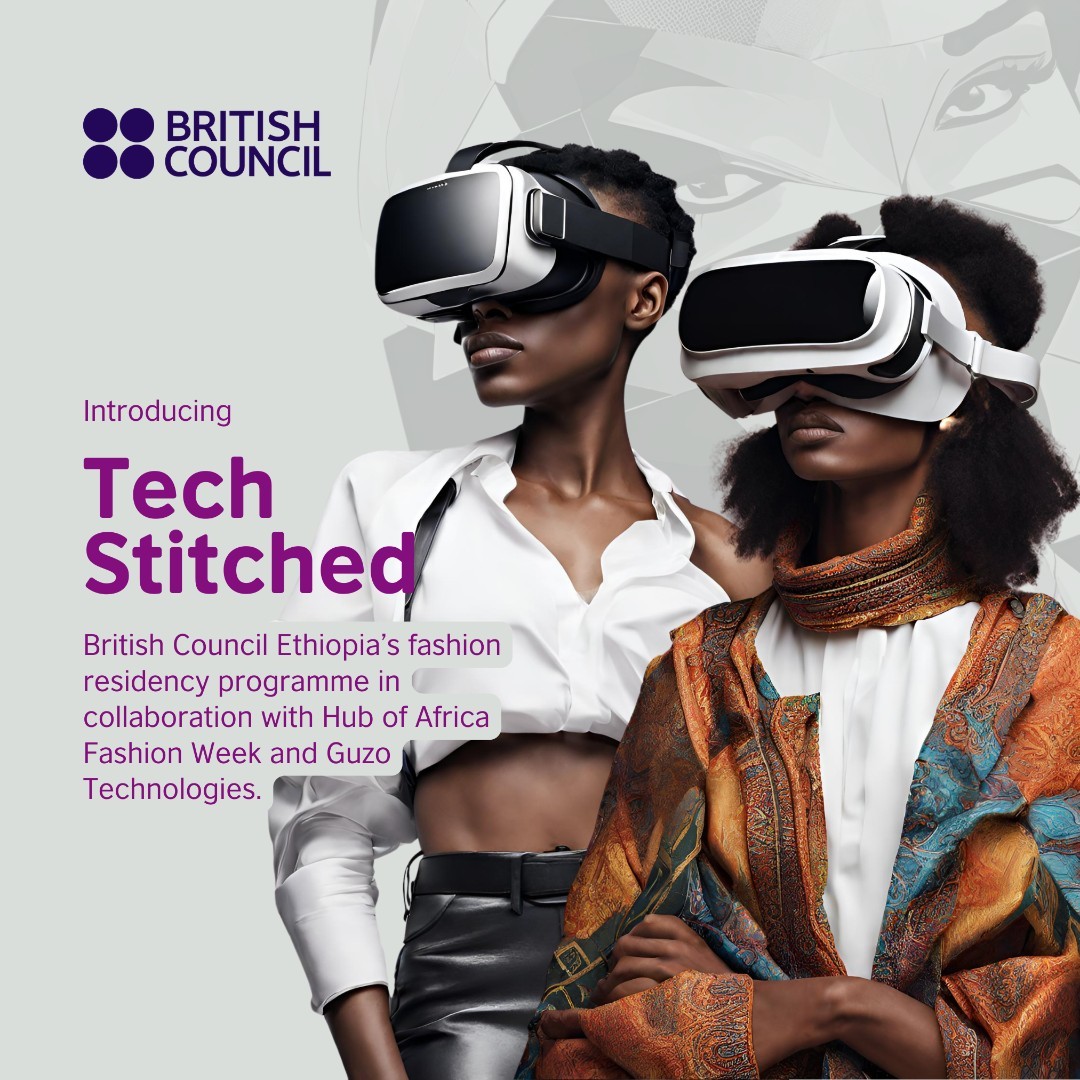 The TechStitched is the latest fashion residency programme, unveiled last week in Ethiopia [PHOTO BC]
The TechStitched is the latest fashion residency programme, unveiled last week in Ethiopia [PHOTO BC]
This initiative offers selected designers a remarkable opportunity to immerse themselves in Ethiopia's rich cultural tapestry and artisanal traditions. From the vibrant streets of Addis Ababa to the serene landscapes of Arba Minch, participants will traverse diverse terrains, each imbued with its unique blend of heritage and modernity.
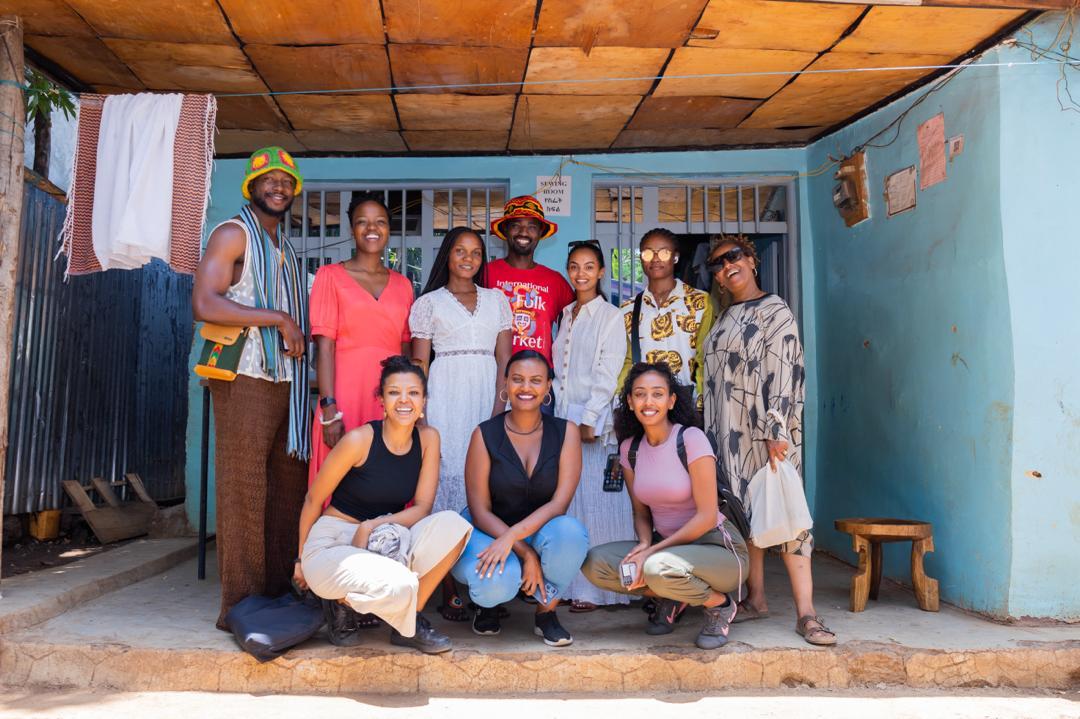 The TechStitched Fashion Residency Programme united five fashion powerhouses from Nigeria, Ethiopia, South Africa, Tanzania, and Ghana [PHOTO BC]
The TechStitched Fashion Residency Programme united five fashion powerhouses from Nigeria, Ethiopia, South Africa, Tanzania, and Ghana [PHOTO BC]
Set against the scenic backdrop of Arba Minch, this initiative delved into the intricacies of Ethiopian textile artistry. From the delicate touch of cotton to the luxurious allure of silk, designers were immersed in hands-on workshops, guided by master artisans preserving centuries-old techniques. Beyond honing their craft, this immersive journey offered invaluable insights into Ethiopia’s dynamic fashion landscape, enriching their creative vision and deepening their appreciation for timeless traditions.
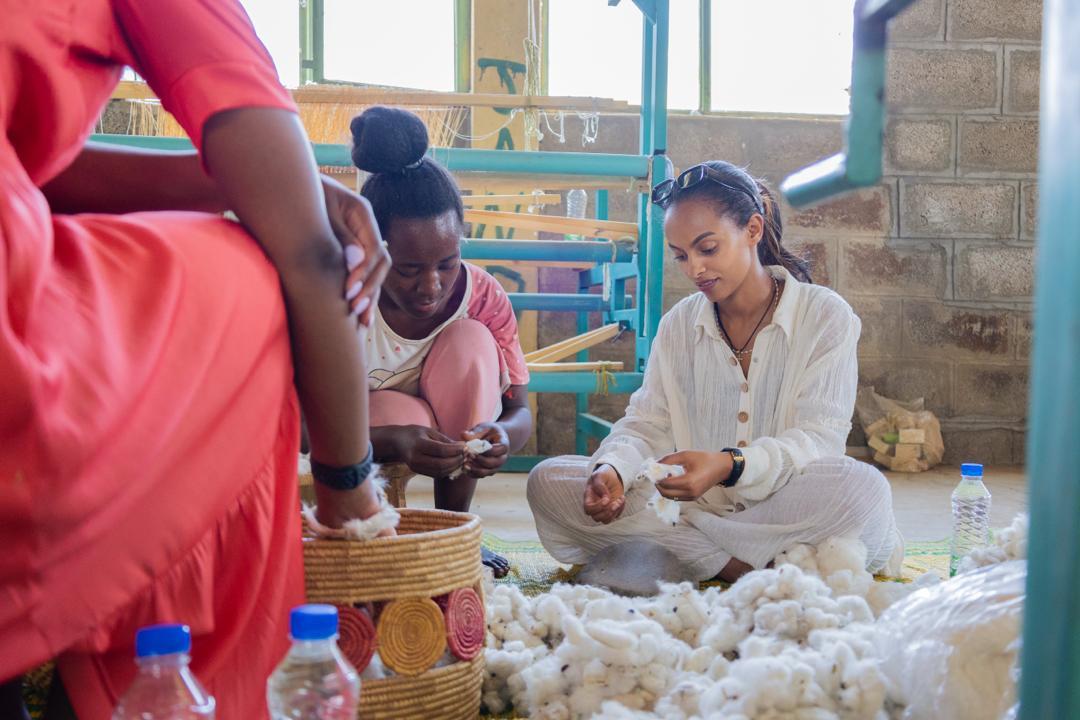
The TechStitched Fashion Residency Programme united five fashion powerhouses from Nigeria, Ethiopia, South Africa, Tanzania, and Ghana [PHOTO BC]
Kuhle Phumzile Zondo is a fashion designer selected for the TechStitched fashion residency in Ethiopia. Kuhle is from South Africa Fashion Week. She is the Creative Design at E_mania, a brand that finds its creative spark in African idioms, weaving them into its distinctive aesthetic.
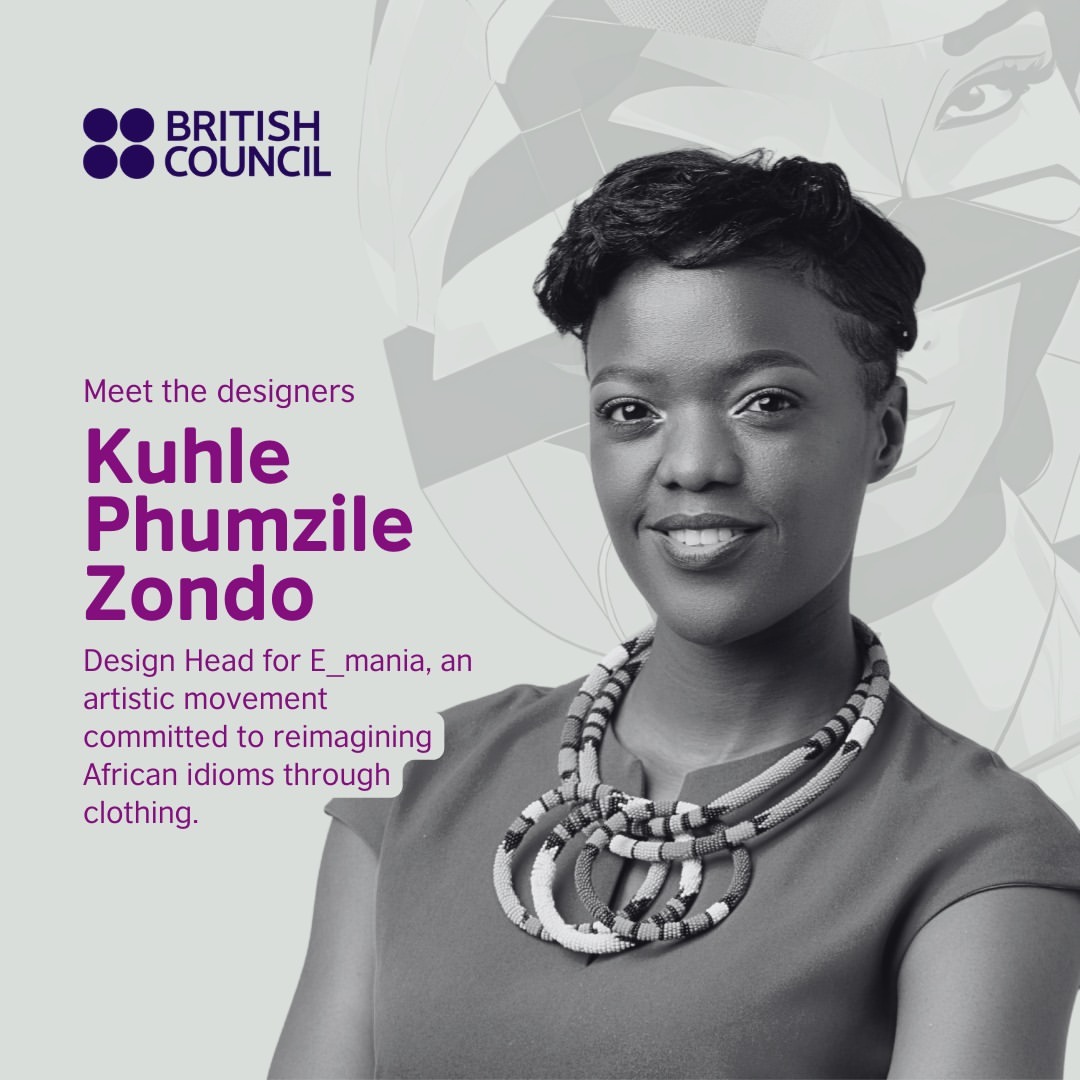
Kuhle Phumzile Zondo a fashion designer and founder of E_MANIA [PHOTO BC]
Based in Johannesburg, the brand positions itself as an artistic movement dedicated to reimagining African idioms through fashion. At the heart of E_mania lies a profound connection to the intricate tapestry of African cultural narratives. Each garment crafted by E_mania upholds the brand's 3 R promise - Repair, Re-Use, and Recycle - underscoring its unwavering commitment to sustainability.
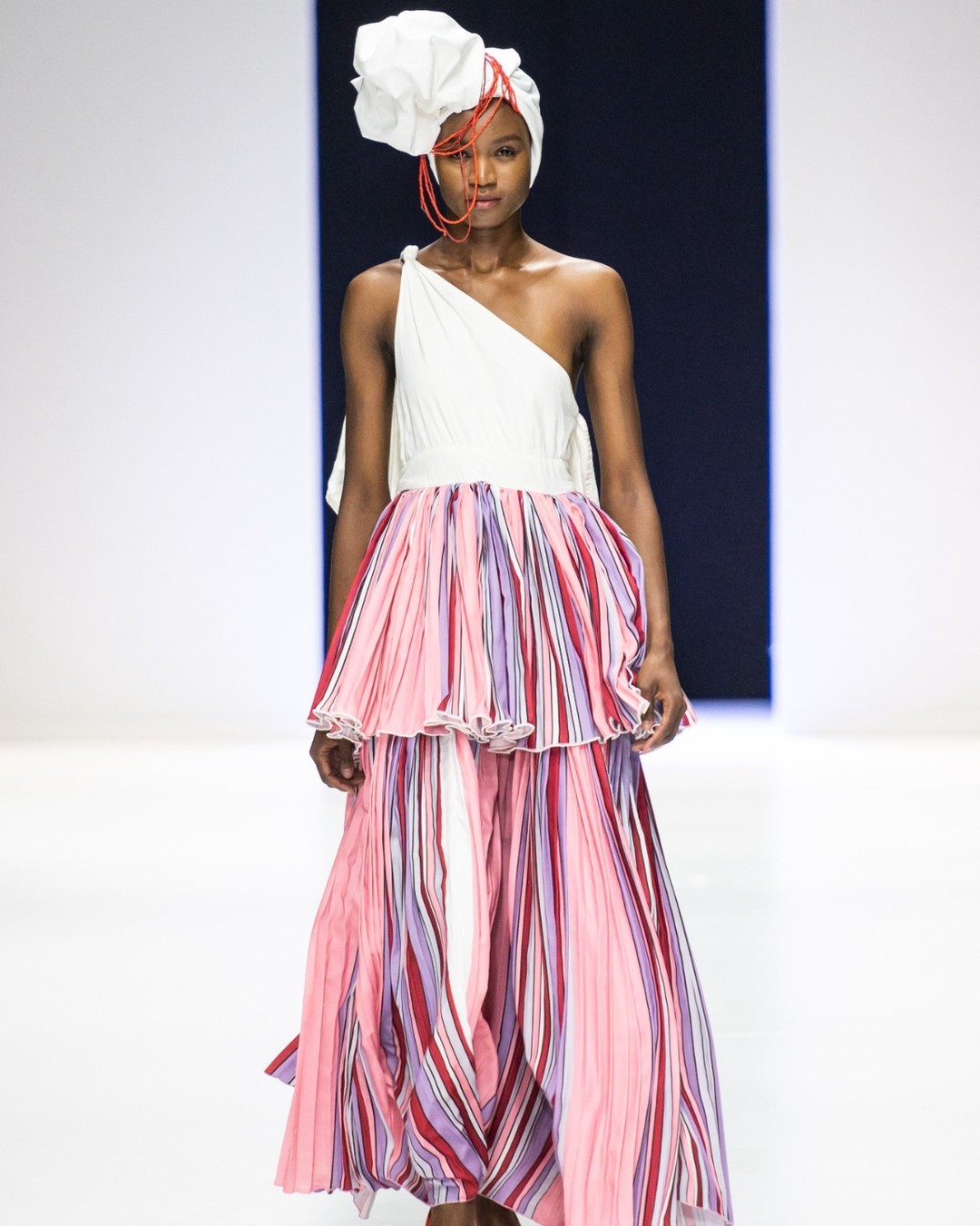
Made by E_mania [PHOTO E_MANIA]
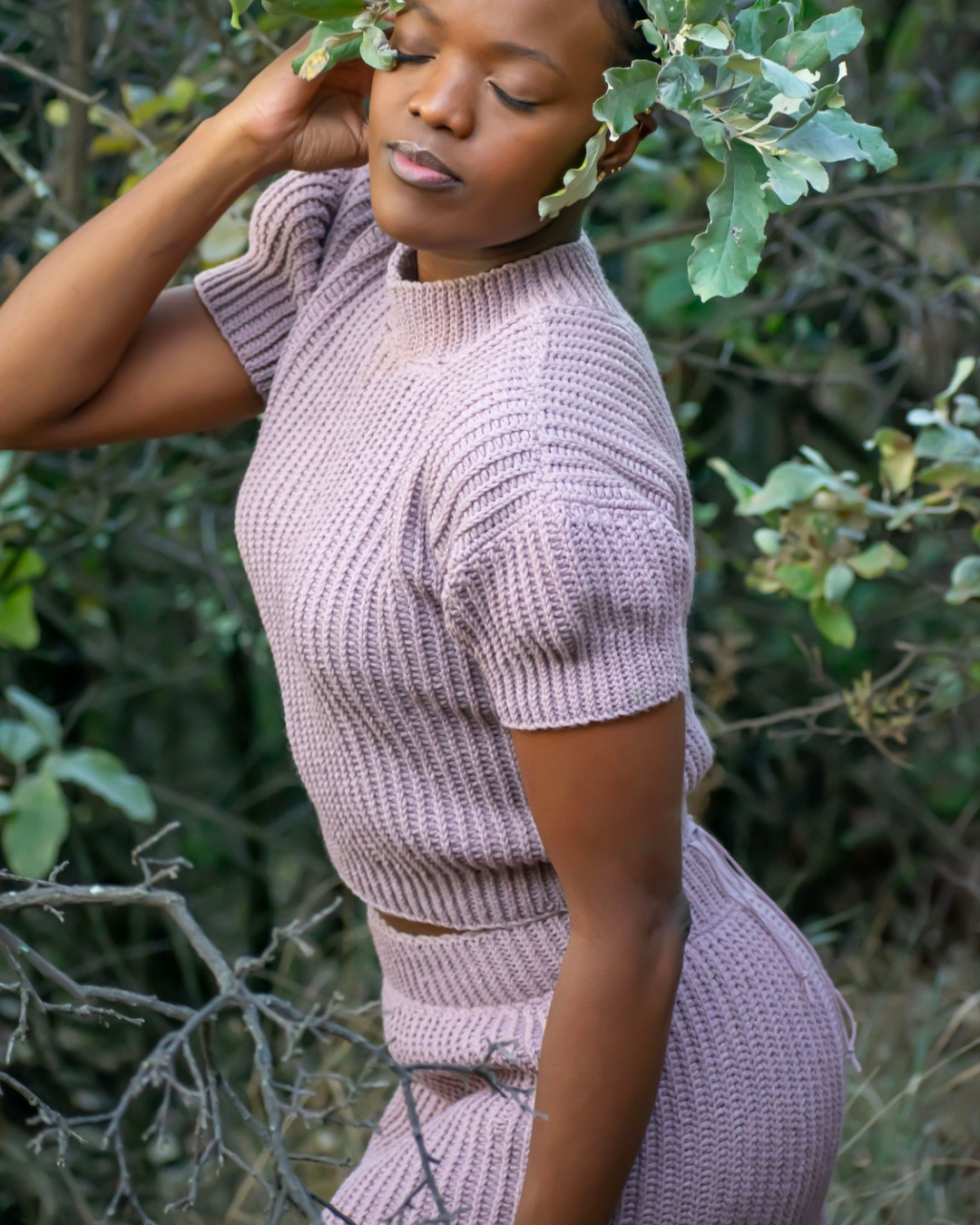
Made by E_mania [PHOTO E_MANIA]
Meron Abraha Berhe is a fashion designer who was selected from Hub of Africa Fashion Week. She is the Creative Designer at Birabiro Apparel, a modern fashion label deeply rooted in cultural inspiration and sustainability. The Birabiro blends style with eco-consciousness and stays committed to locally sourced materials and ethical production methods.
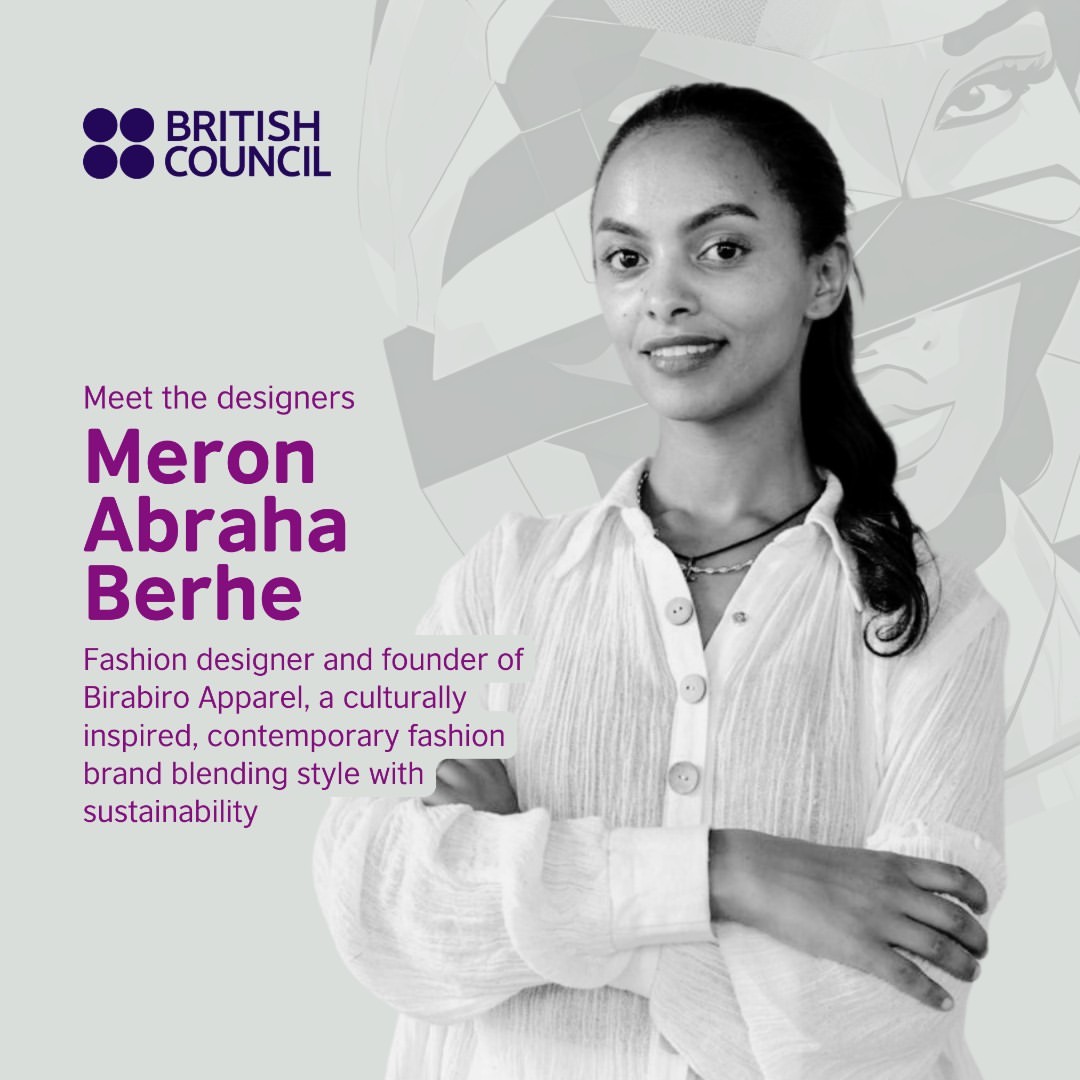
Meron Abraha Berhe, a fashion designer and founder of the Birabiro Apparel [PHOTO BIRABIRO]
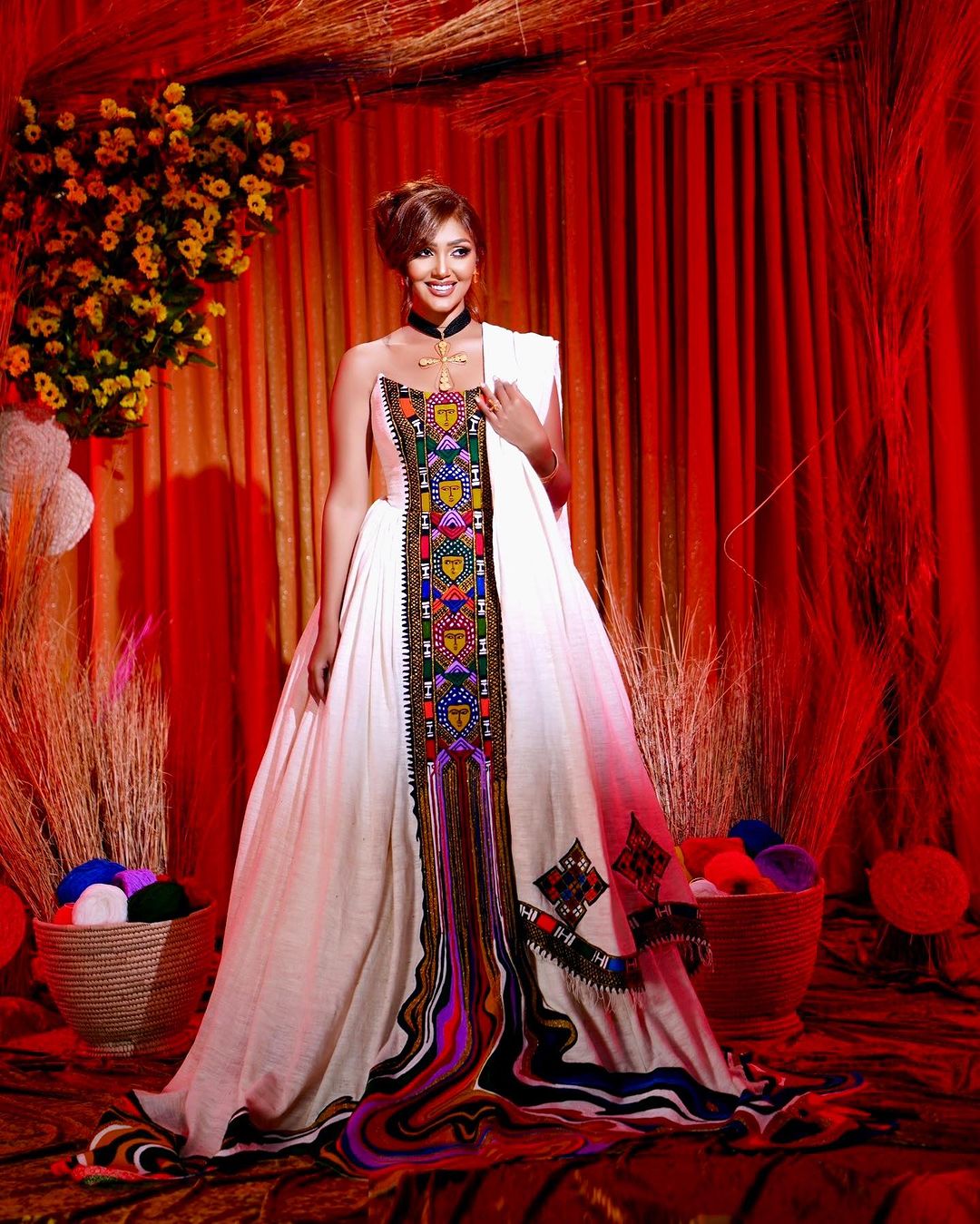
Made by Birabiro Apparel [PHOTO BIRABIRO]
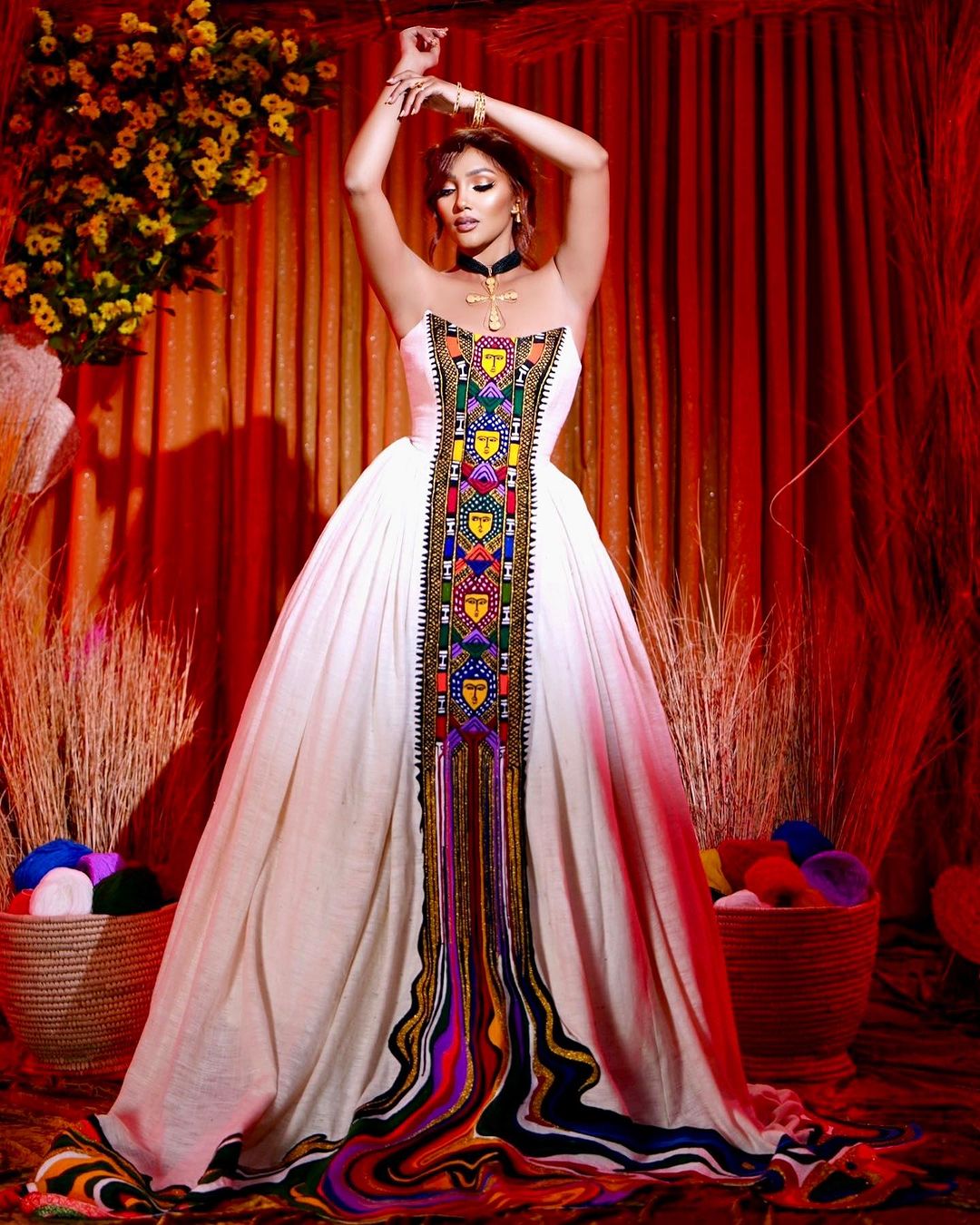
Made by Birabiro Apparel [PHOTO BIRABIRO]
Peter Oroja Acha, is a fashion designer and founder of the Pettre Taylor which is a Nigeria-based free-spirited lifestyle brand founded to inspire freedom and flexibility in young creative minds. From a multicultural perspective, it produces expressive and refined garments that embrace an eclectic mix of traditional craftsmanship and contemporary designs. This brand serves as a fusion point for cultures, politics, craft, and sophisticated colour sensibilities, catering to individuals seeking an authentic and diverse expression of style.
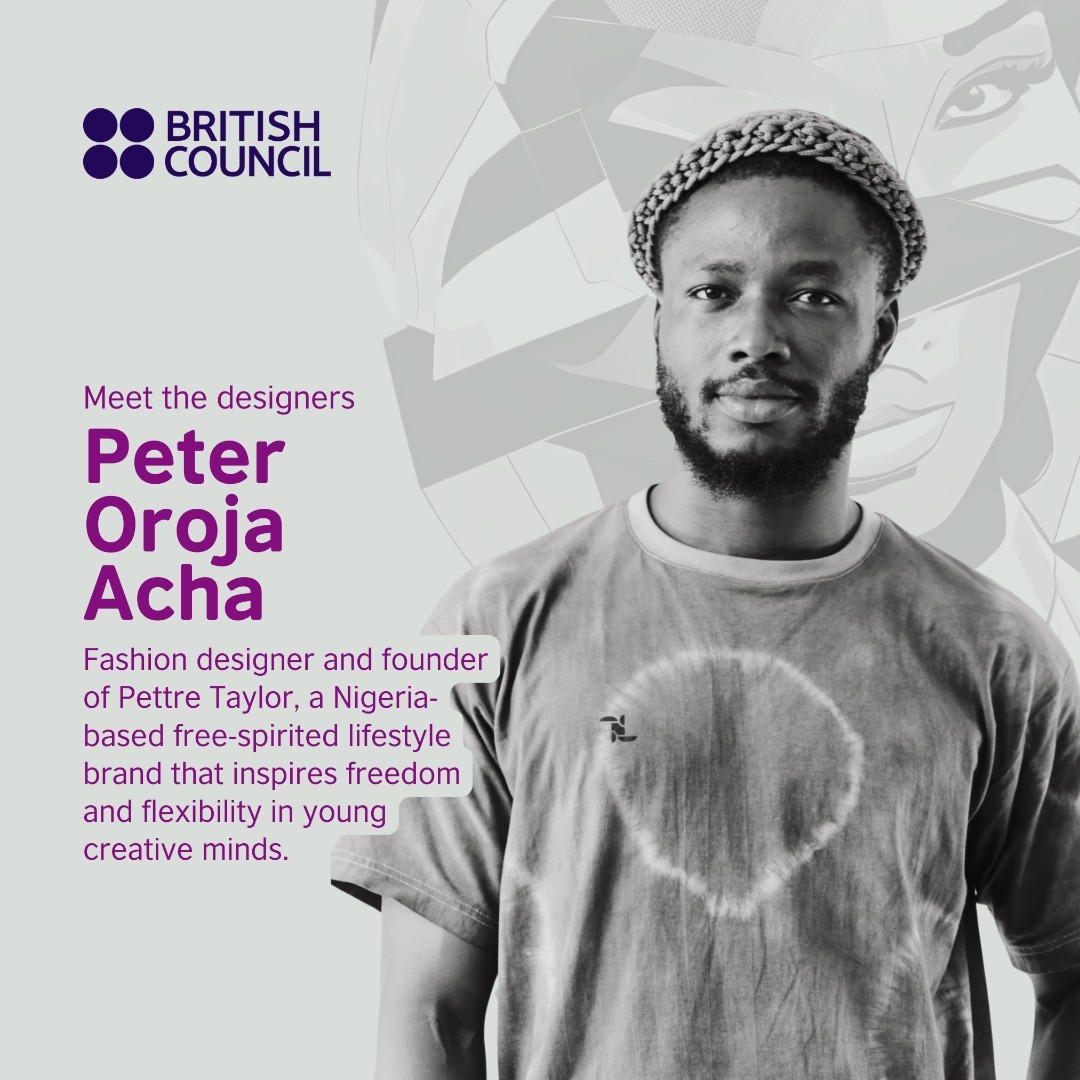
Peter Oroja Acha a fashion designer and founder of the PETTRE TAYLOR [PHOTO BC]
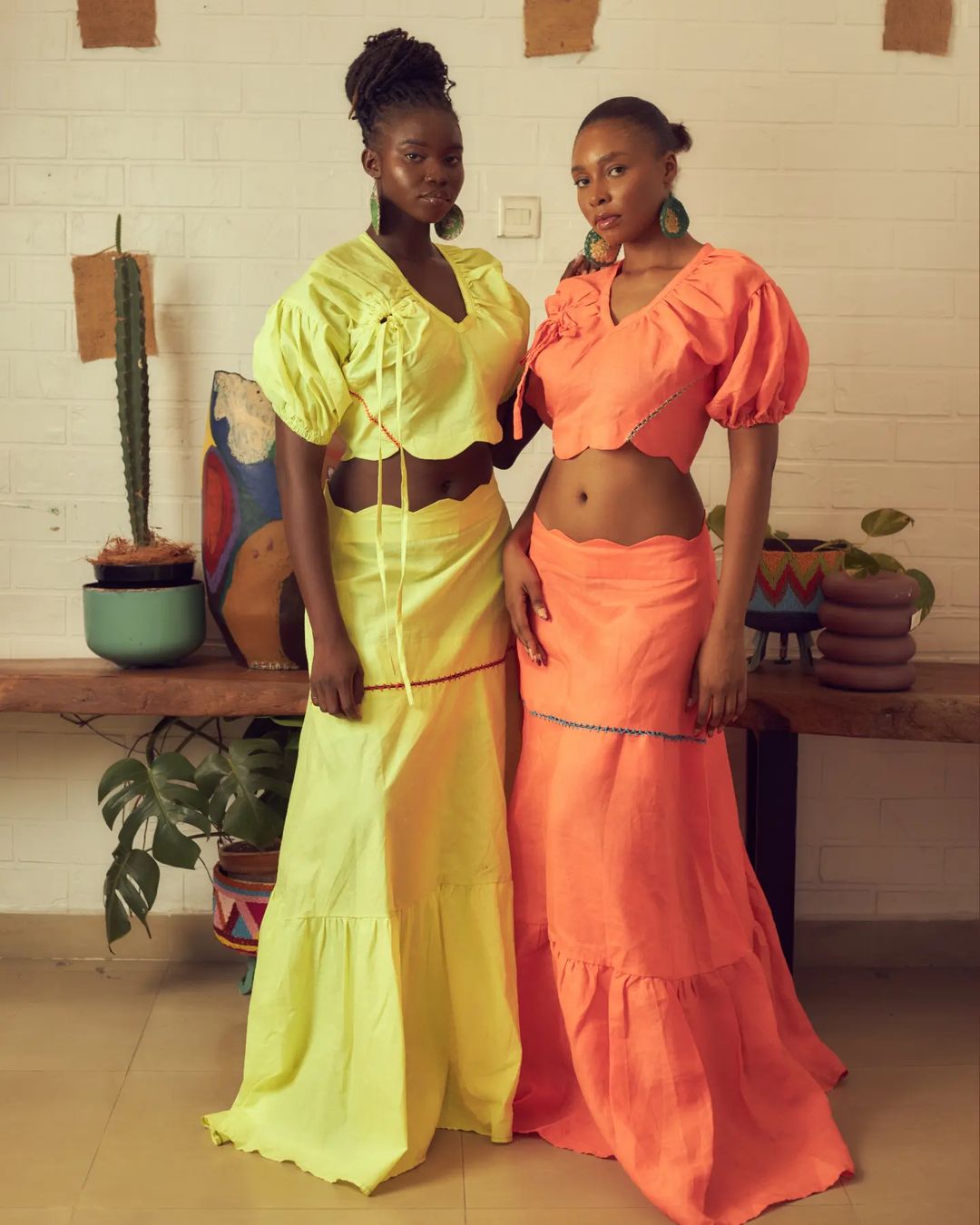
Made by PETTRE TAYLOR [PHOTO BC]
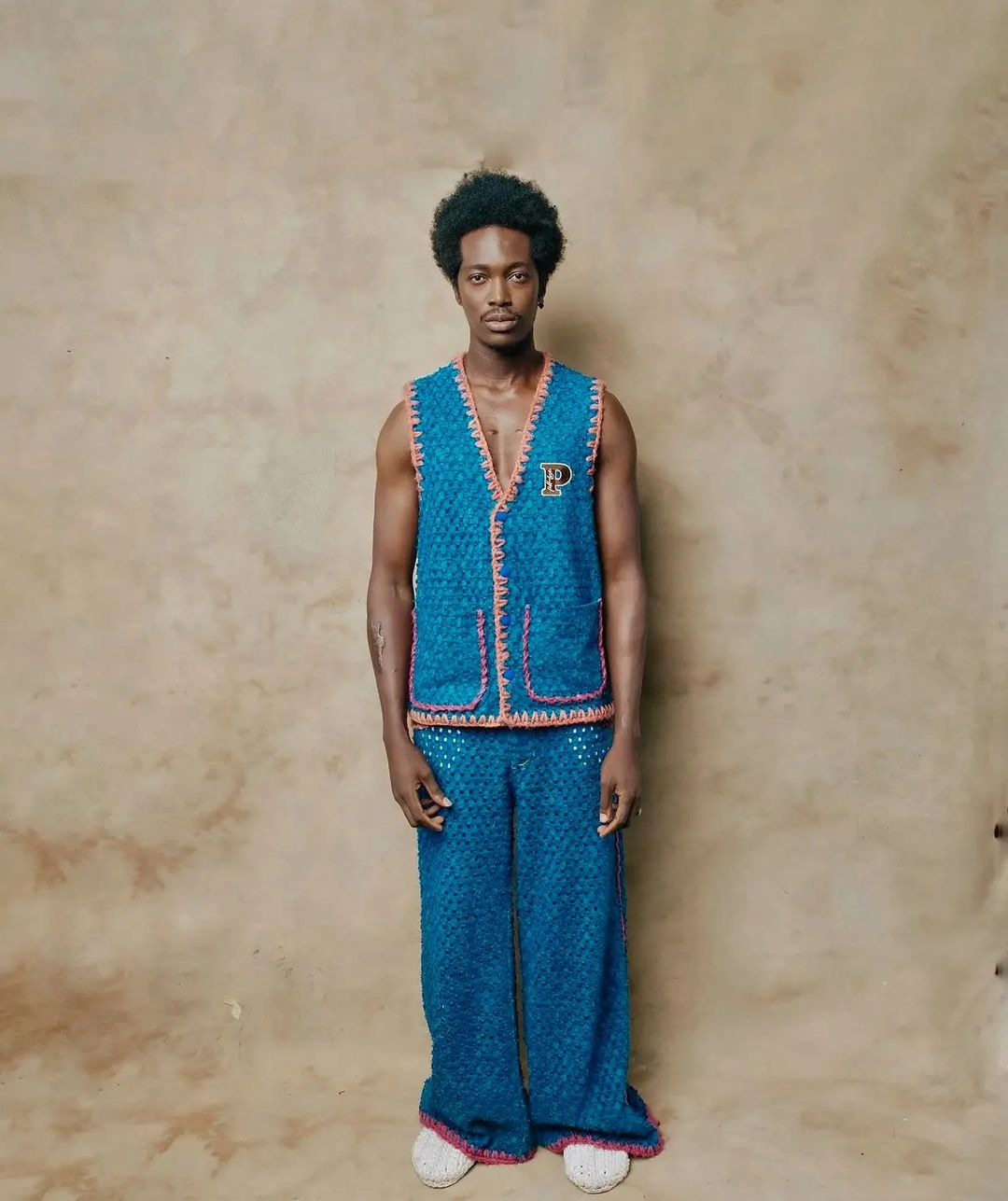
Made by PETTRE TAYLOR [PHOTO BC]
Kulwa Maige Njabuli is a fashion designer selected from the Swahili Fashion Week and she is the founder of Jesakudo Fashion House. The brand uses a diverse range of materials in its garments and accessories. Its overarching goal is to extend its reach globally, offering meticulously crafted creations to discerning customers.
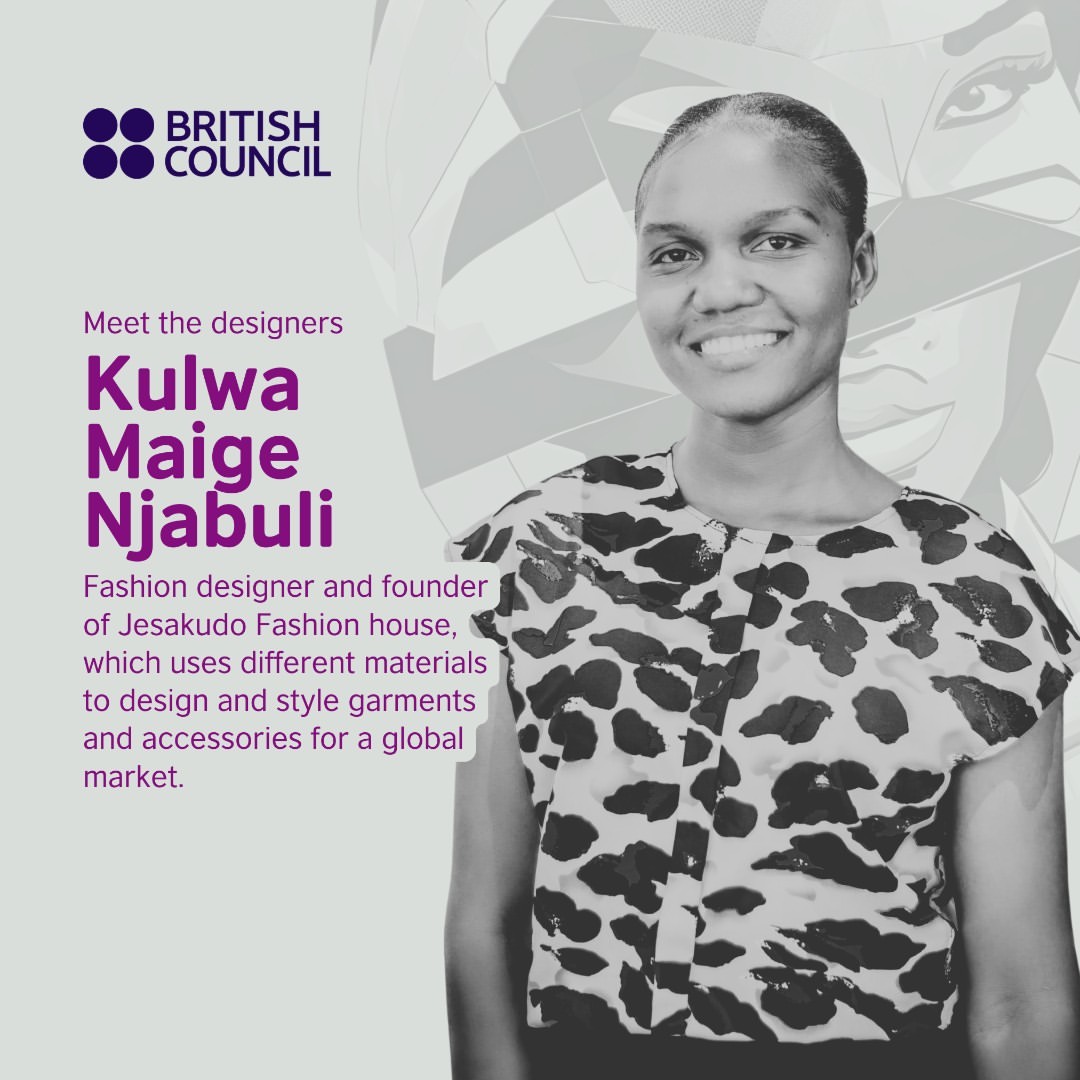
Kulwa Maige Njabuli fashion designer and founder of Jesakudo Fashion House [PHOTO BC]
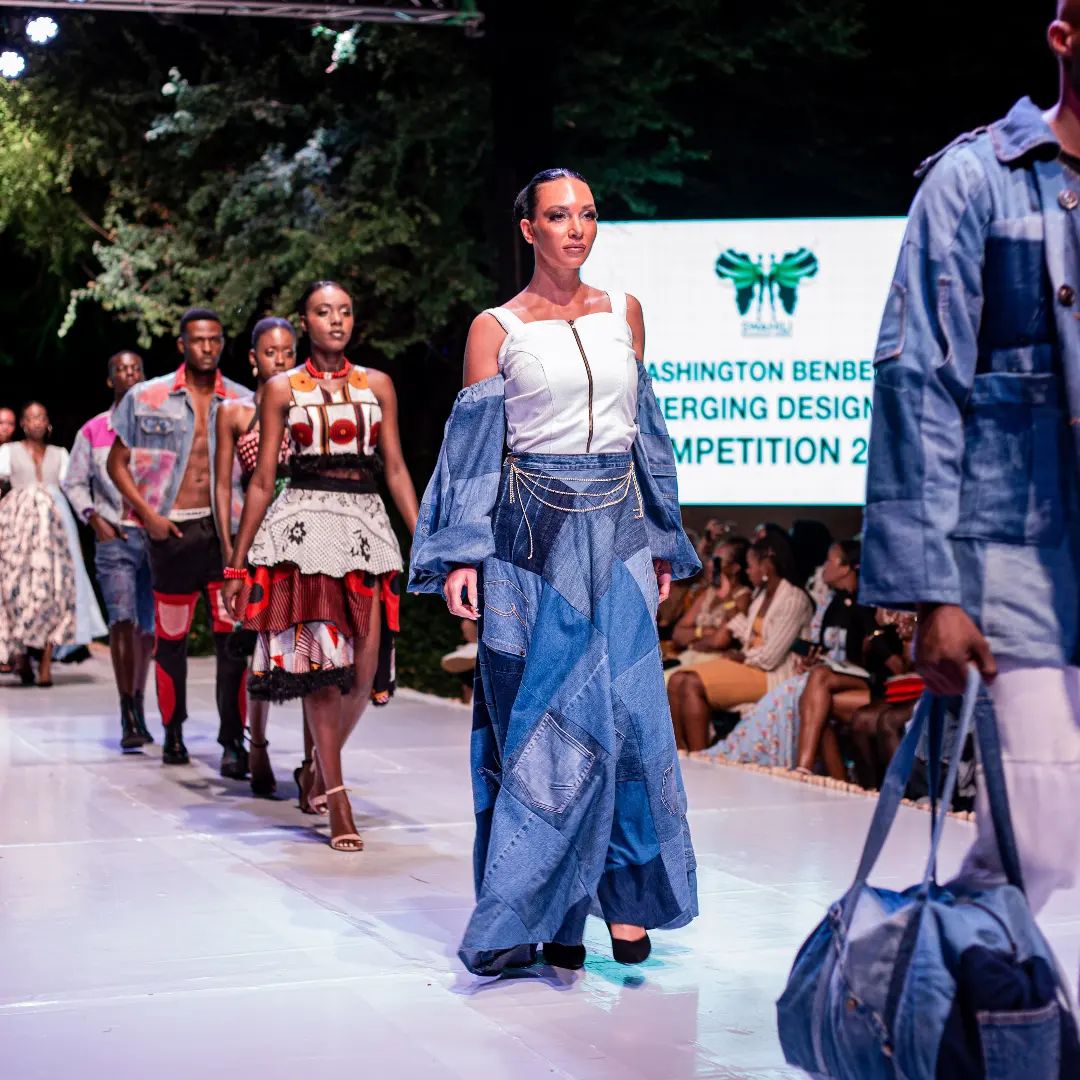
Made by Jesakudo Fashion House [PHOTO BC]
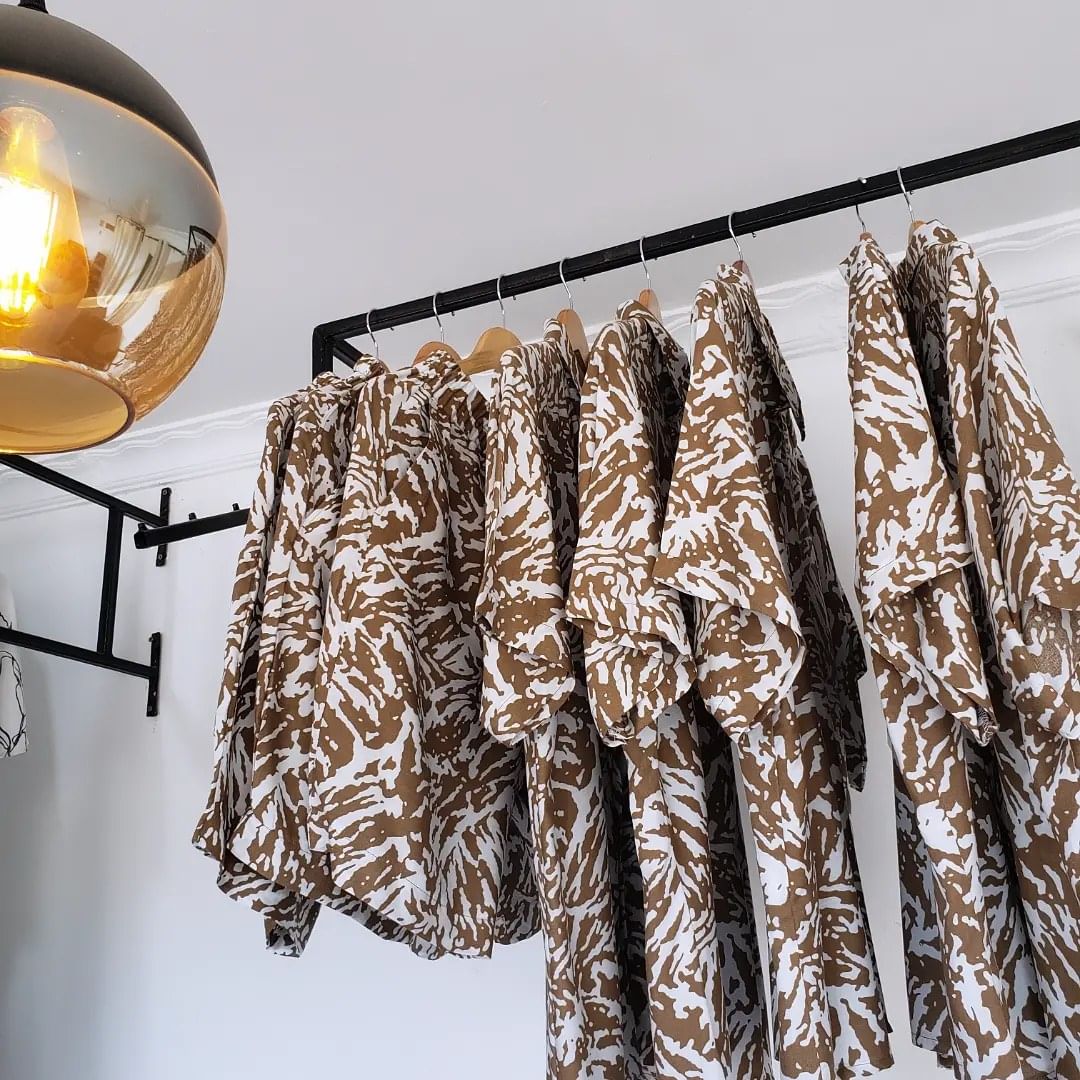
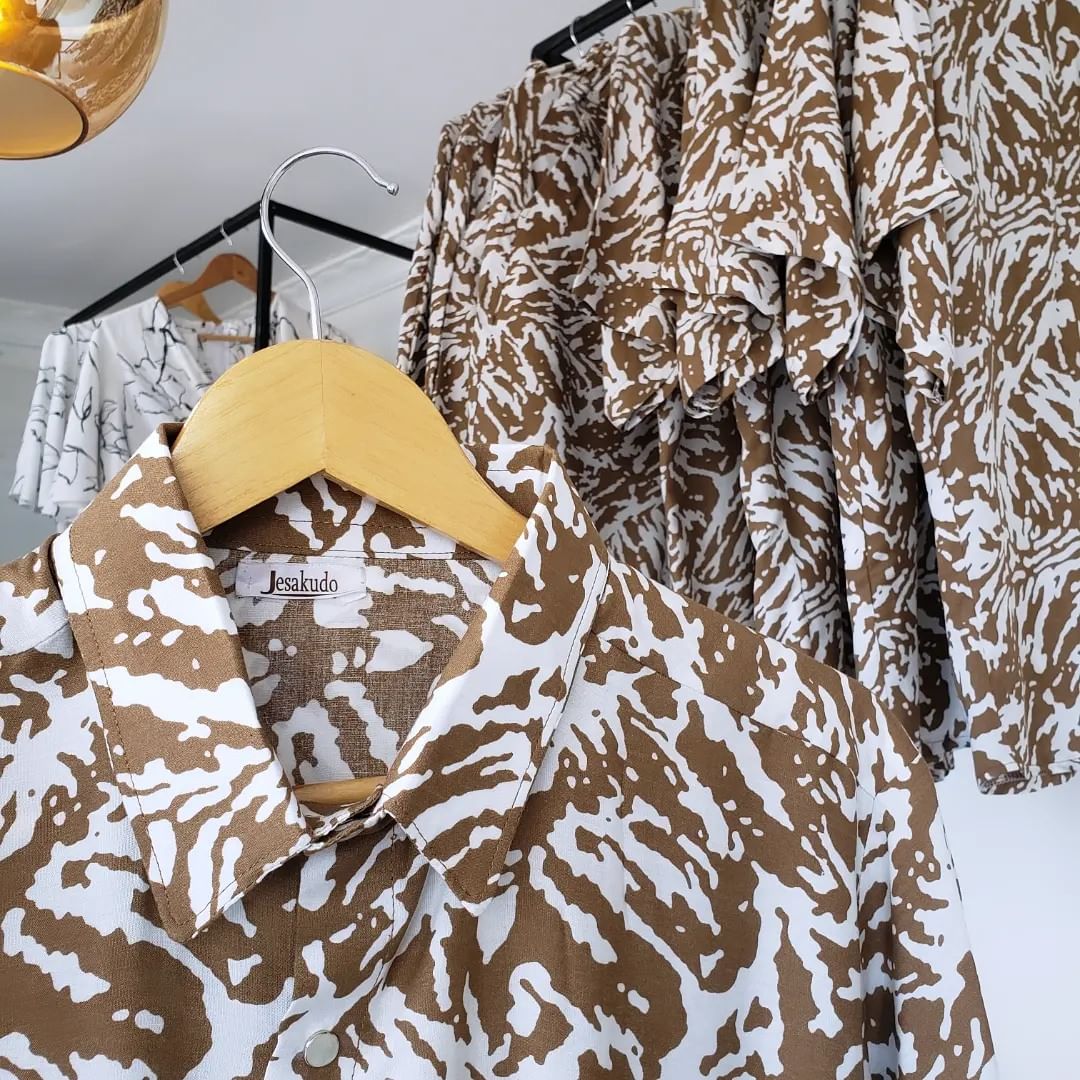
Made by Jesakudo Fashion House [PHOTO BC]
Abigail Boison is a fashion designer selected from the Accra Fashion Week and is the founder of Magbrien. The brand is renowned for its distinctive ready-to-wear designs that offer luxury within reach. With meticulous attention to detail, the brand takes pride in delivering impeccable finishing in every piece. Unafraid of vibrant hues, they infuse their designs with an array of stunning colours, catering to the diverse preferences of their clientele.
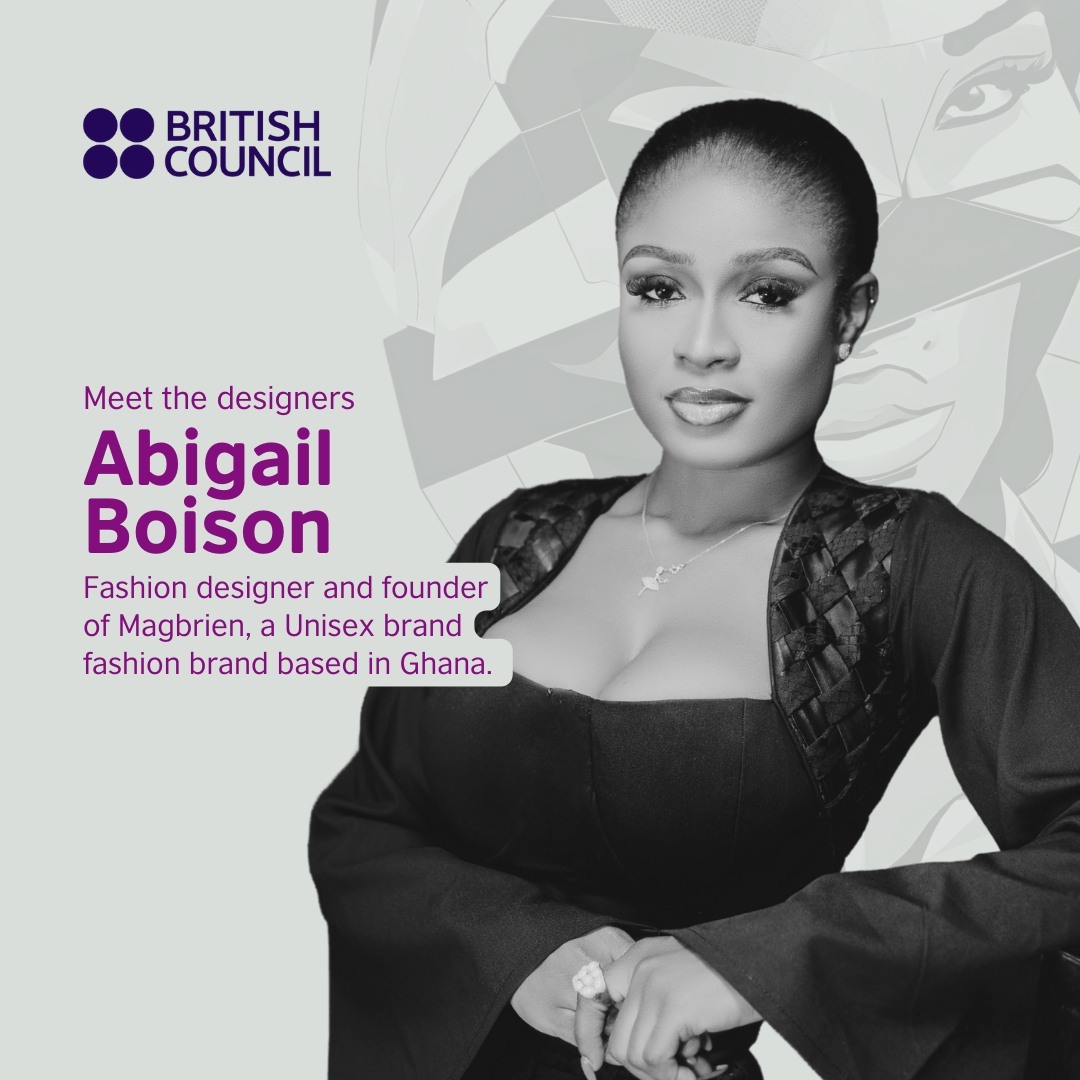
Abigail Boison a fashion designer and founder of the Style_Magbrien [PHOTO BC]
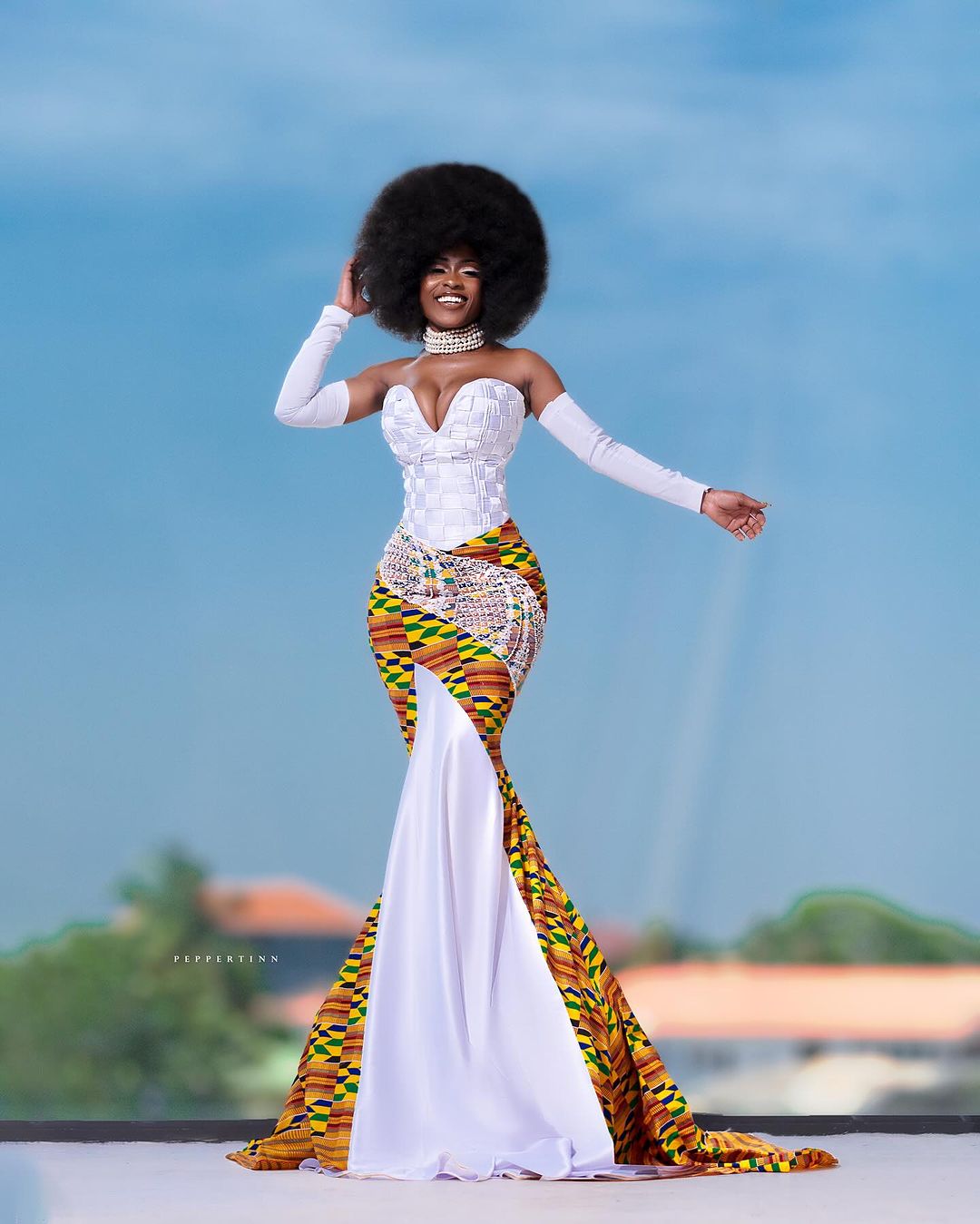
Made by Style_Magbrien [PHOTO SM]
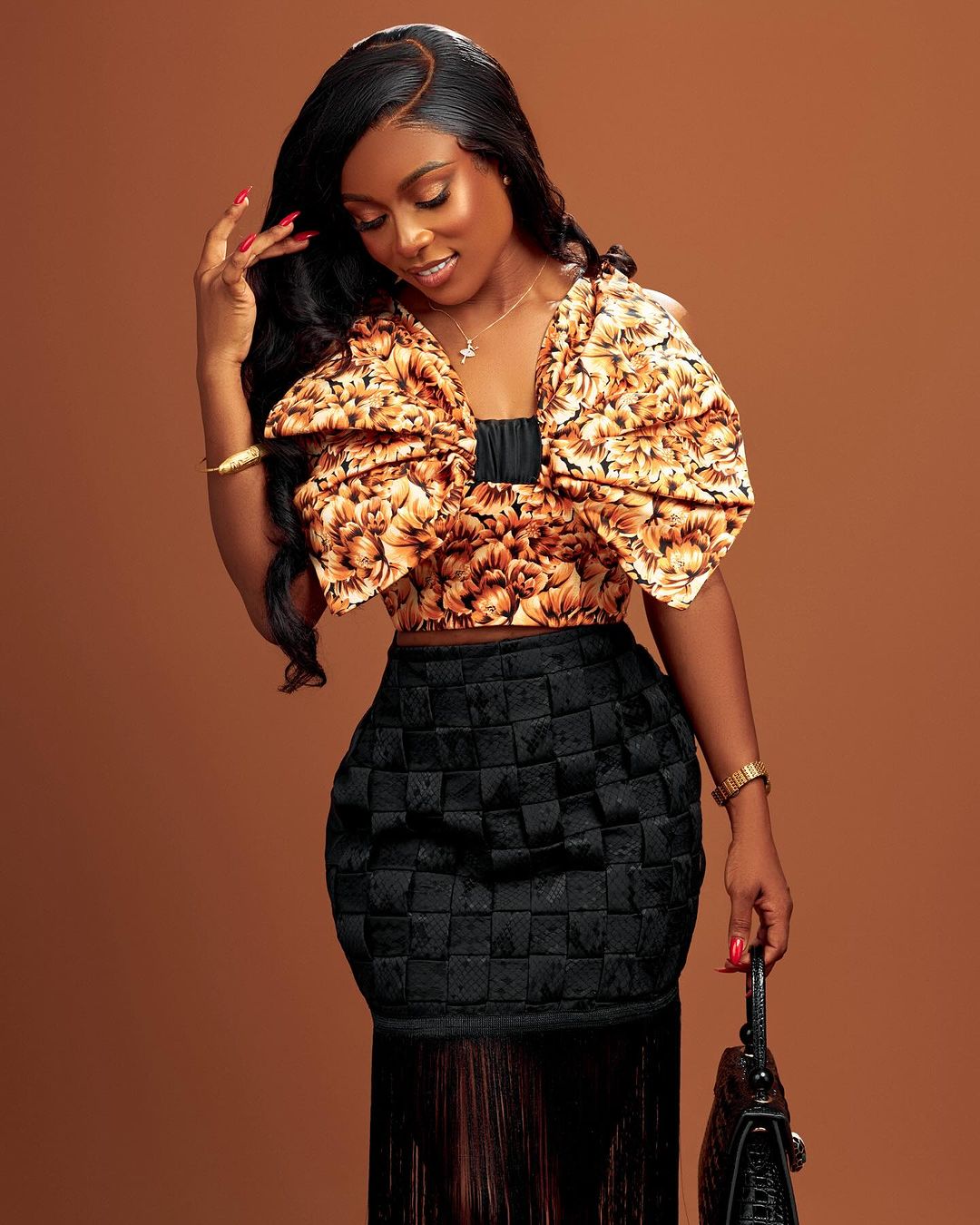
Made by Style_Magbrien [PHOTO SM]
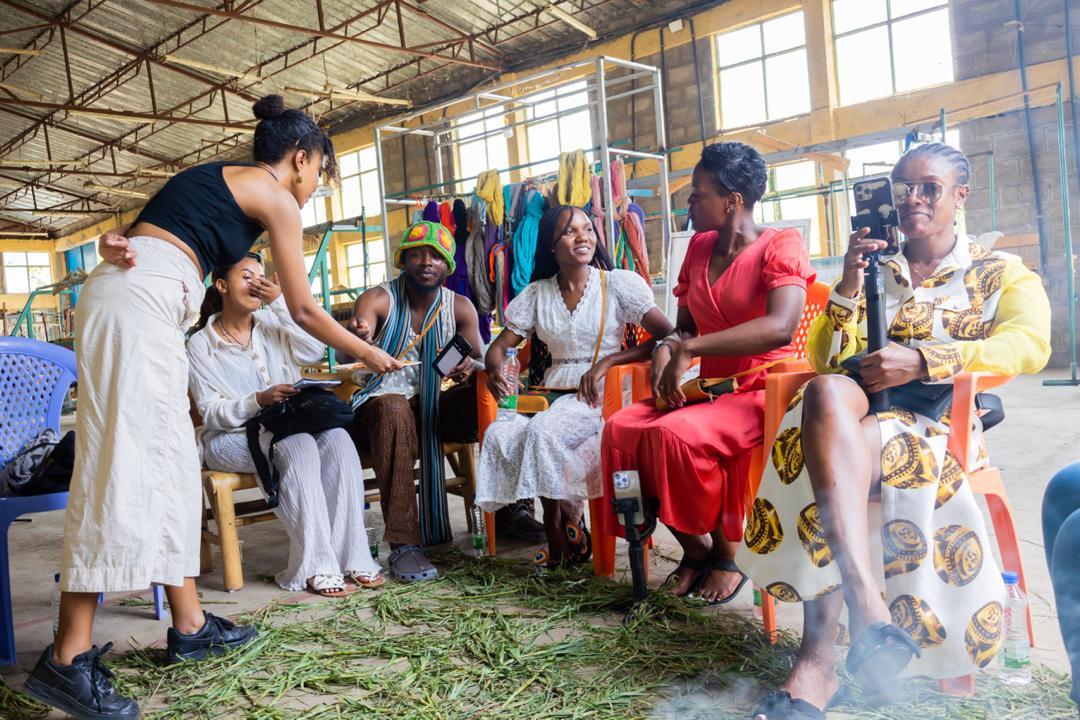
The TechStitched Fashion Residency Programme united five fashion powerhouses from Nigeria, Ethiopia, South Africa, Tanzania, and Ghana [PHOTO BC]
Celebrating Top 16 Female Entrepreneurs: Driving Innovation and Empowerment in Rwanda's Fashion Industry
The fashion industry in Rwanda has seen a significant rise in recent years, and women have played a crucial role in its development. Despite facing various challenges, Rwandan women in the fashion sector have demonstrated remarkable resilience, creativity, and entrepreneurial spirit. This story is developed from the original story published by UZURI K &Y.
The article highlights the remarkable female entrepreneurs shaping Rwanda's fashion industry. It celebrates their contributions to innovation, inclusivity, and empowerment, showcasing their dedication to quality, sustainability, and community upliftment. By recognizing these trailblazing women, the article aims to inspire future generations and elevate the visibility of Rwandan fashion on the global stage.
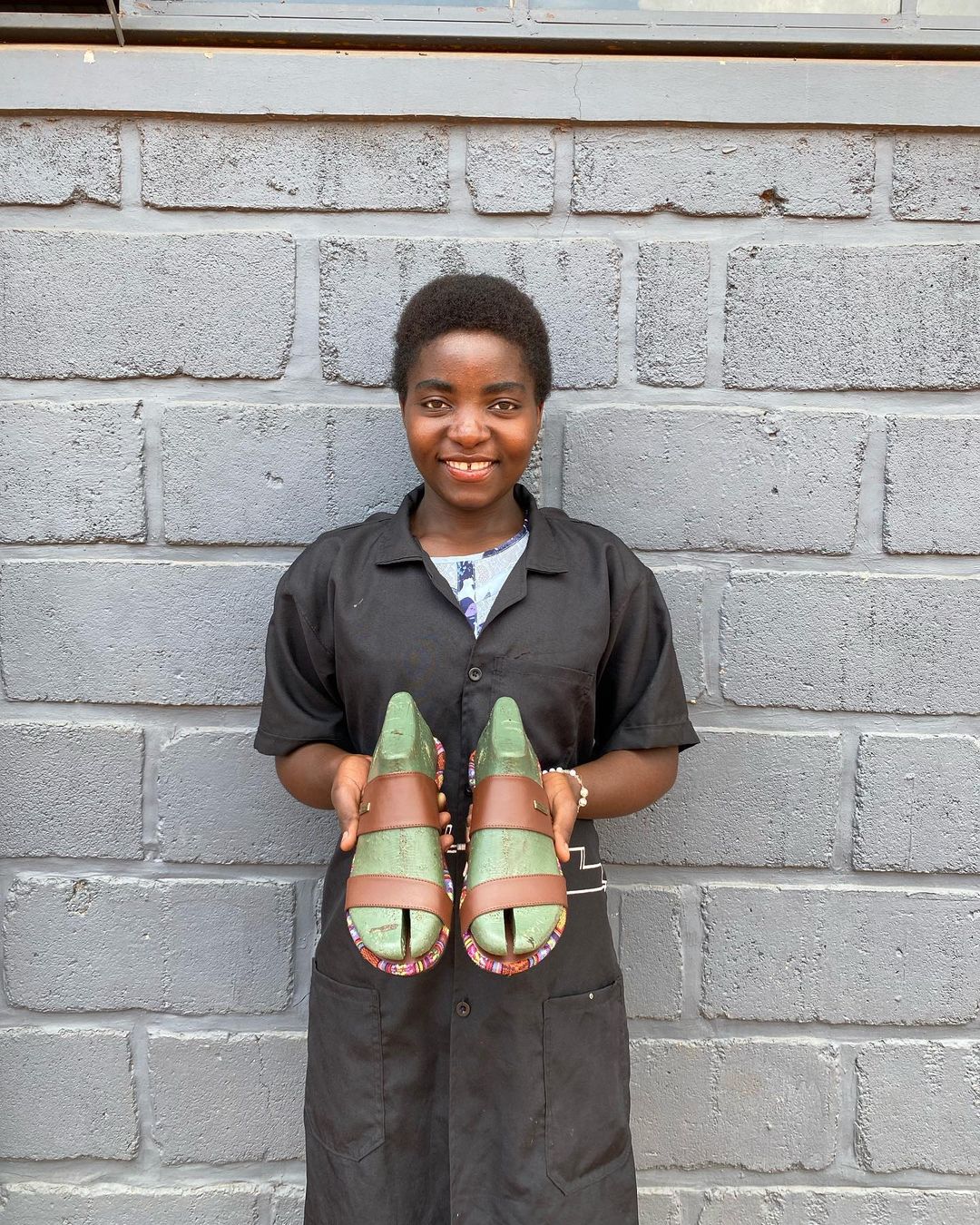
Ms. UWAMARIYA Solange inside UZURI K & Y shoe factory in Kigali [PHOTO UZURI K &Y]
In the ever-evolving world of fashion, we honor Women's Month by celebrating the outstanding female entrepreneurs shaping Rwanda's vibrant fashion landscape. From clothing to accessories, these visionary leaders are revolutionizing the industry while uplifting communities and driving economic progress.
1. One standout figure is Sonia Mugabo, whose namesake brand has garnered acclaim for its modern aesthetic and sustainable ethos. Inspired by Rwandan culture and craftsmanship, Mugabo's designs pay homage to the nation's rich heritage while embracing contemporary style. For the past 10 years, her eponymous brand has employed local artisans to make high-quality "Made in Rwanda" clothes. Focusing on versatility, detail, and fabric, Sonia Mugabo builds a conscious brand centered on elegant and timeless creations. A pioneer of Rwanda’s fashion industry, she is setting the standard for Rwandan fashion in global and local markets.
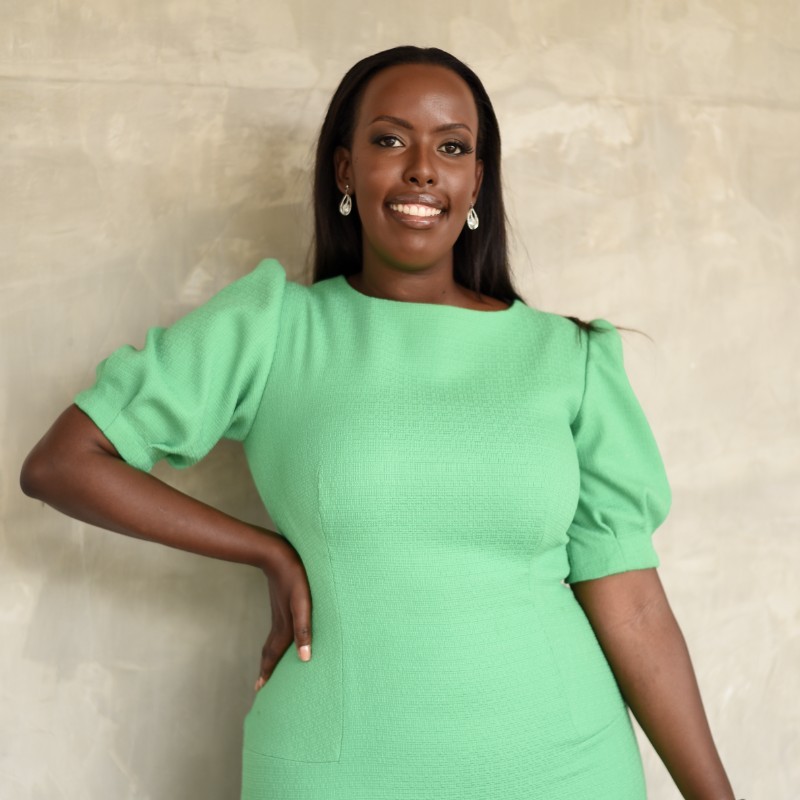
Ms. Sonia Mugabo Founder and Creative Director at Sonia Mugabo fashion house [ PHOTO SM]
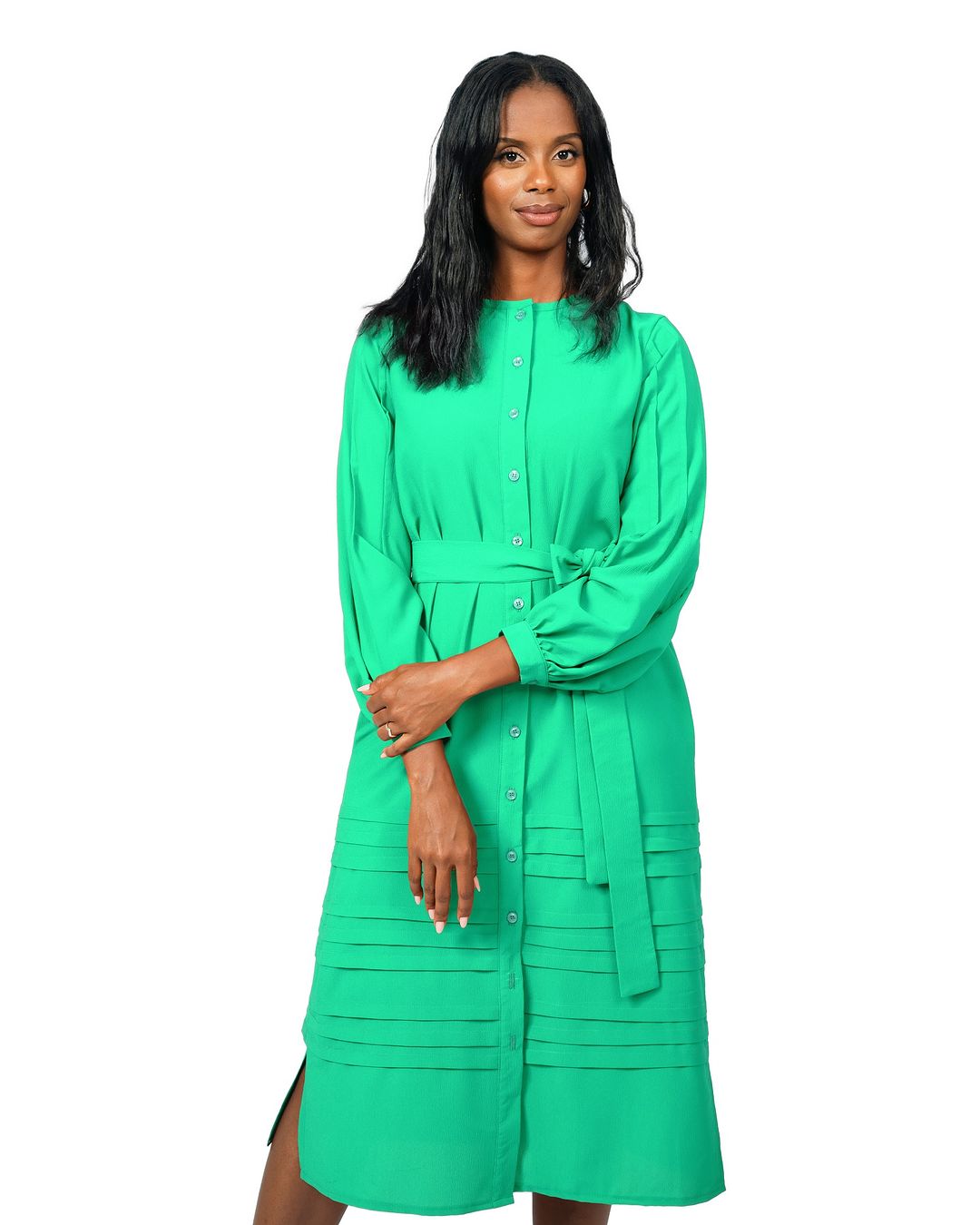
Made by Sonia Mugabo [PHOTO SM]
2. Girabawe Gloria, the founder of Flove Rwanda, leads a Rwandan-based social enterprise dedicated to producing eco-friendly, reusable handbags. Flove's mission extends beyond fashion, aiming to empower teenage mothers in Rwanda by providing them with sustainable livelihoods. Through their products, Flove seeks to challenge societal norms surrounding teenage pregnancy and instill confidence in young women.
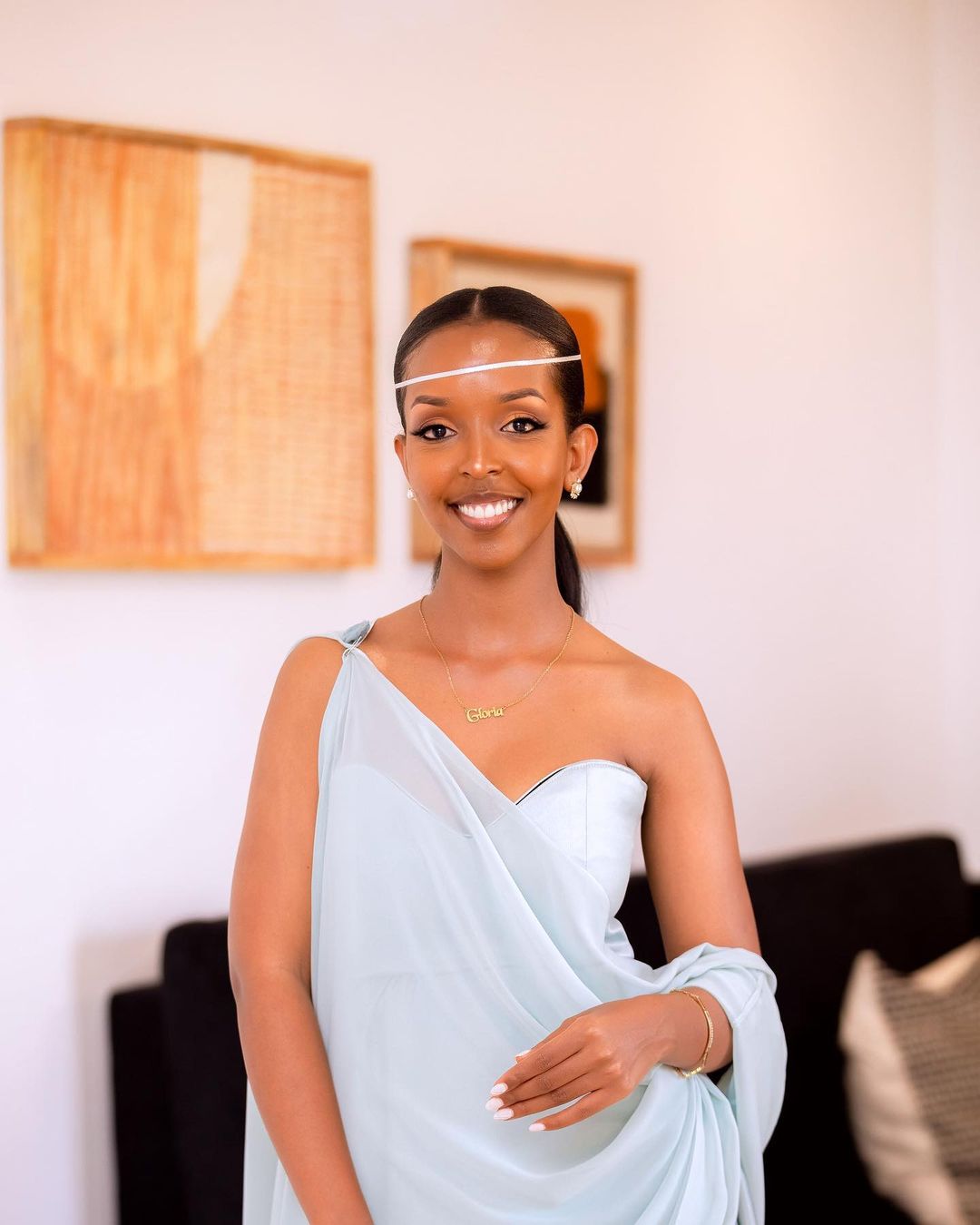
Ms. Girabawe Gloria Founder and Creative Director at Flove Rwanda [PHOTO GG]
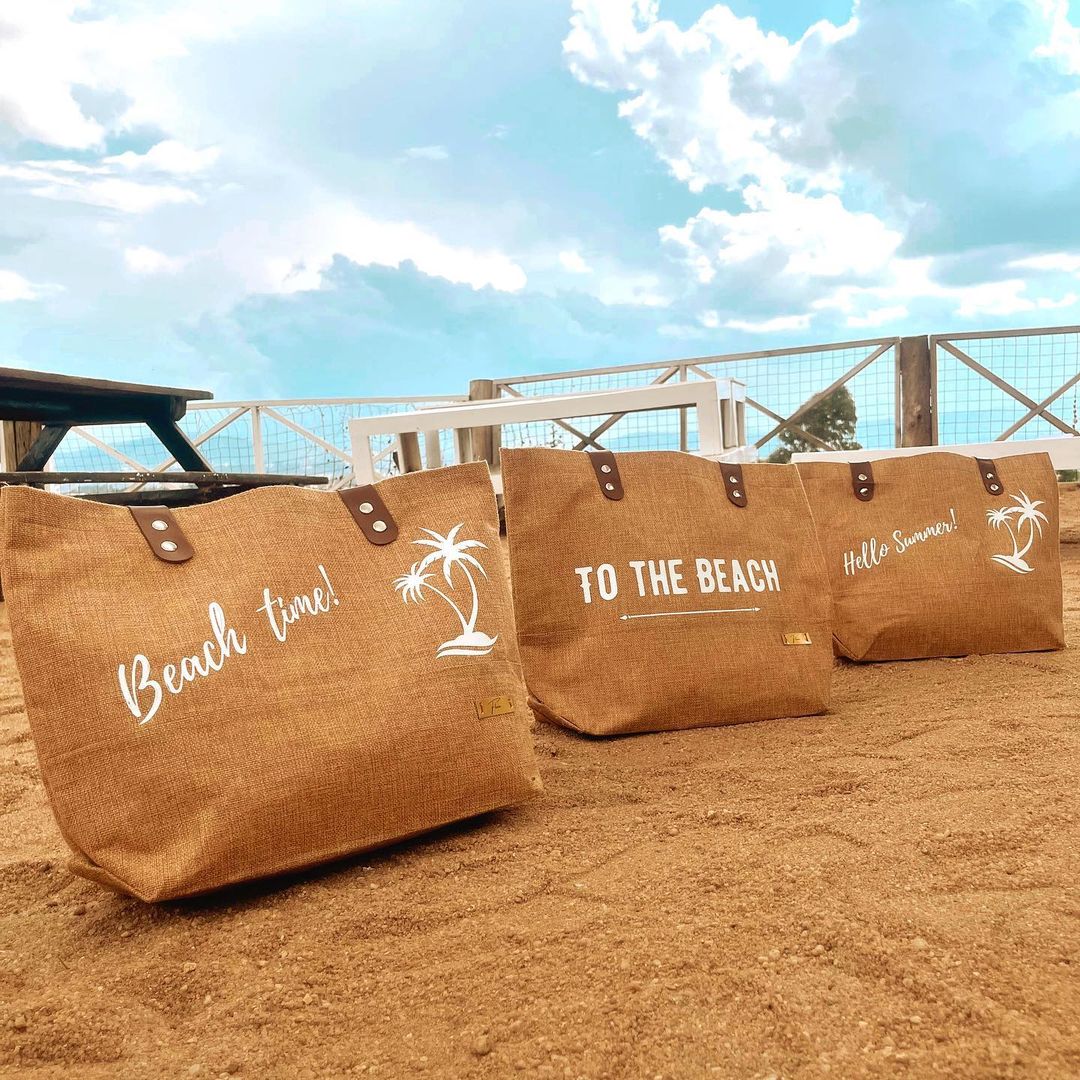
Bags made by Flove Rwanda [PHOTO FR]
3. Sarah Legrand, as the CEO of K'tsobe Jewelry, brings a unique touch of elegance to the fashion world with her exquisite pieces. Crafted from a blend of natural and noble materials, Legrand's jewelry is inspired by nature, Rwandan symbols, and global cultures, offering a distinctively beautiful aesthetic.
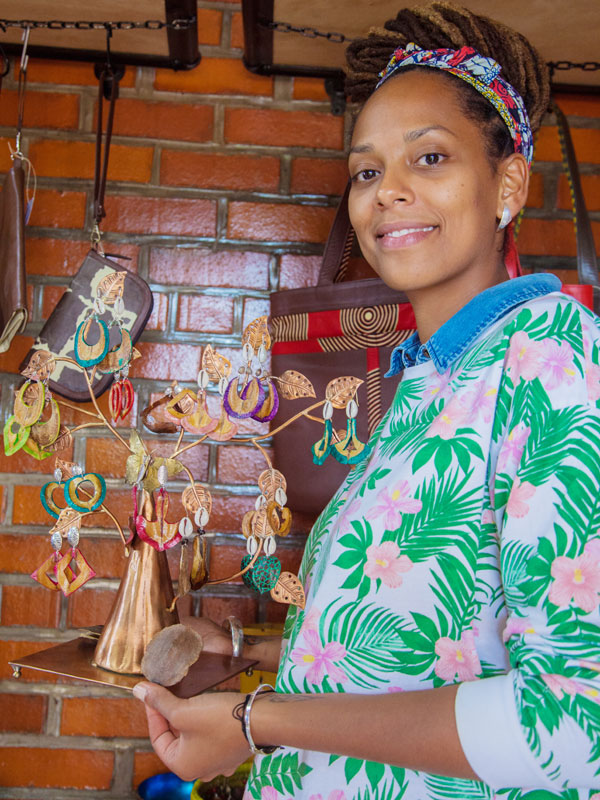
Ms Sarah Legrand Founder and Creative Director at K'tsobe Jewelry [PHOTO SL]
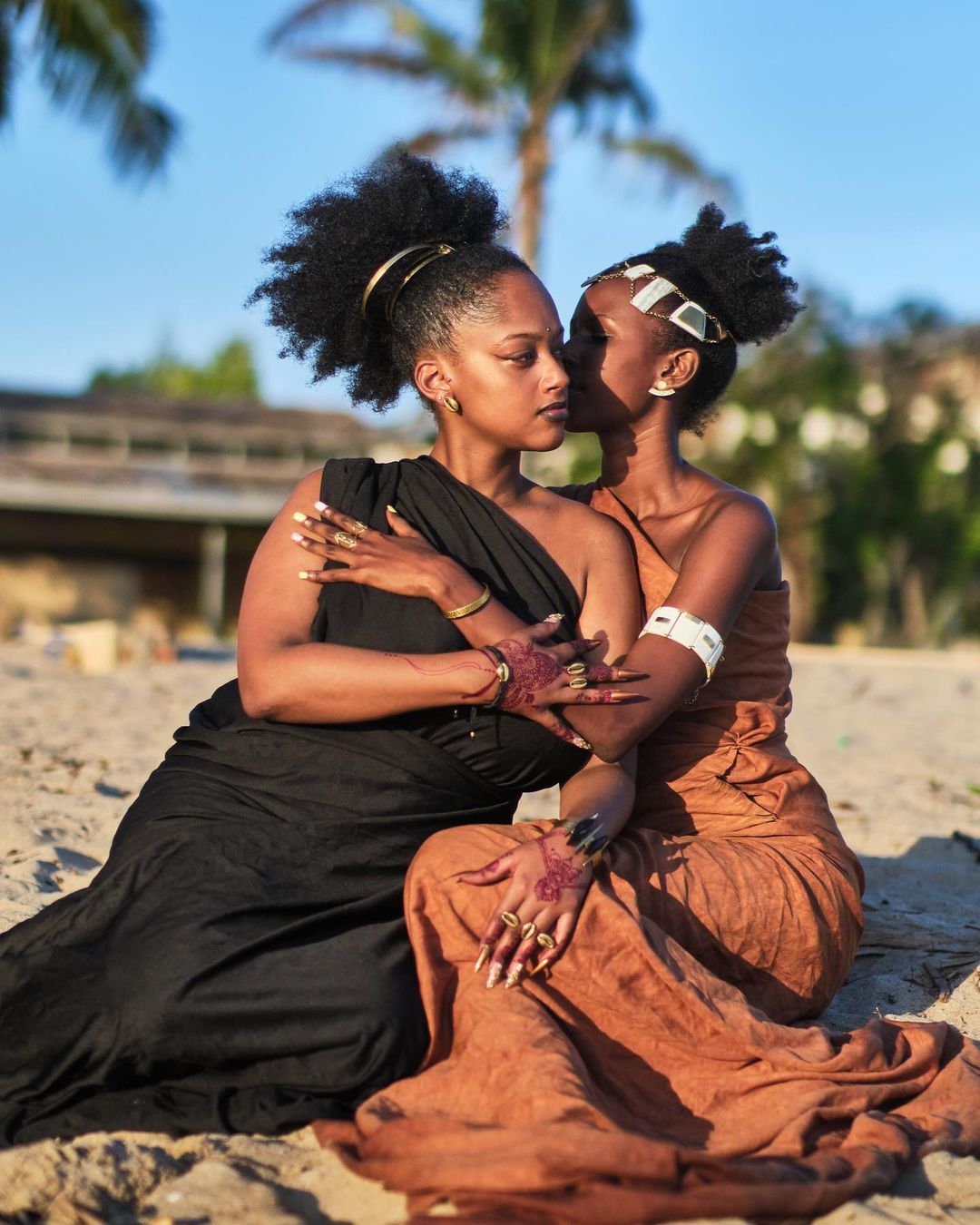
Jeweies made by K'tsobe Jewelry [PHOTO KJ]
4. Teta Isibo is a self-taught fashion designer and entrepreneur passionate about youth entrepreneurship and mentorship, women empowerment, Africa's development, Business and leadership, Innovation, Rwanda, fashion design, interior design, and all things design. She is the founder and creative director of Inzuki Designs.
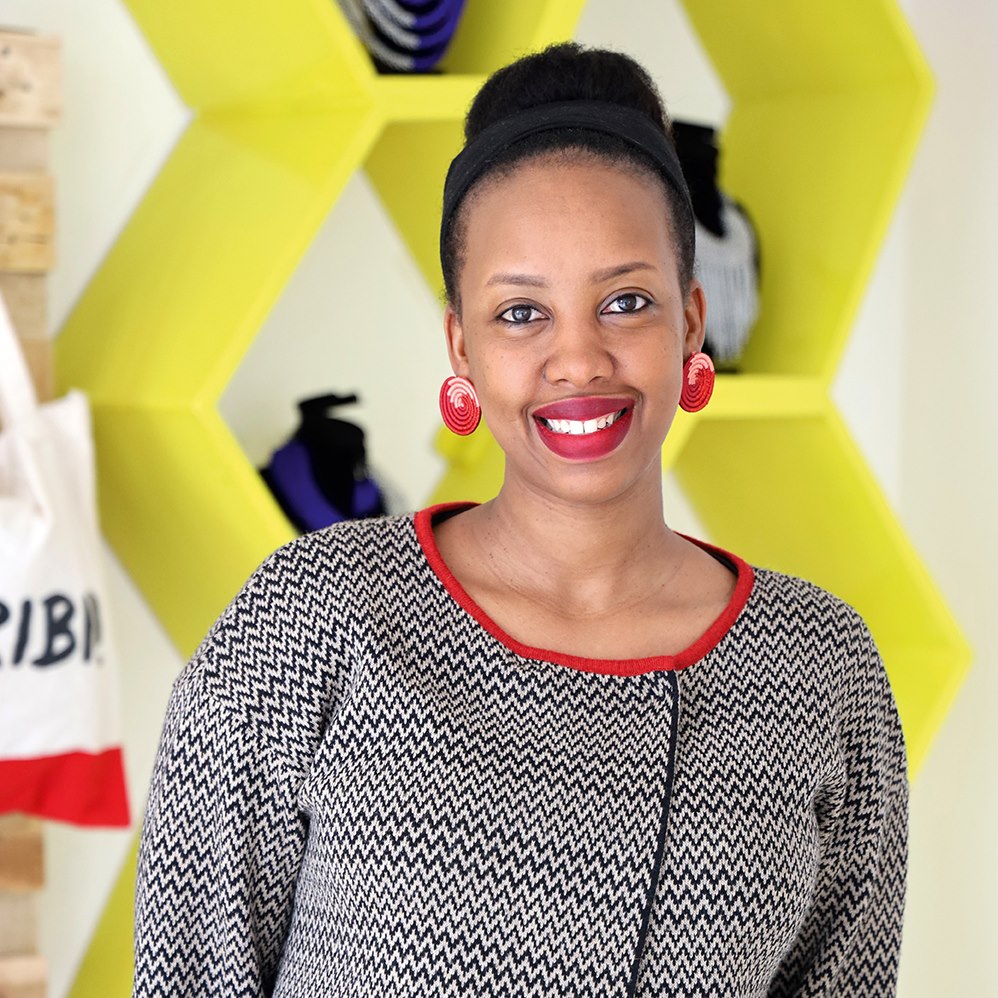
Ms. Teta Isibo Founder and Creative Director at Inzuki Designs [ PHOTO TI]
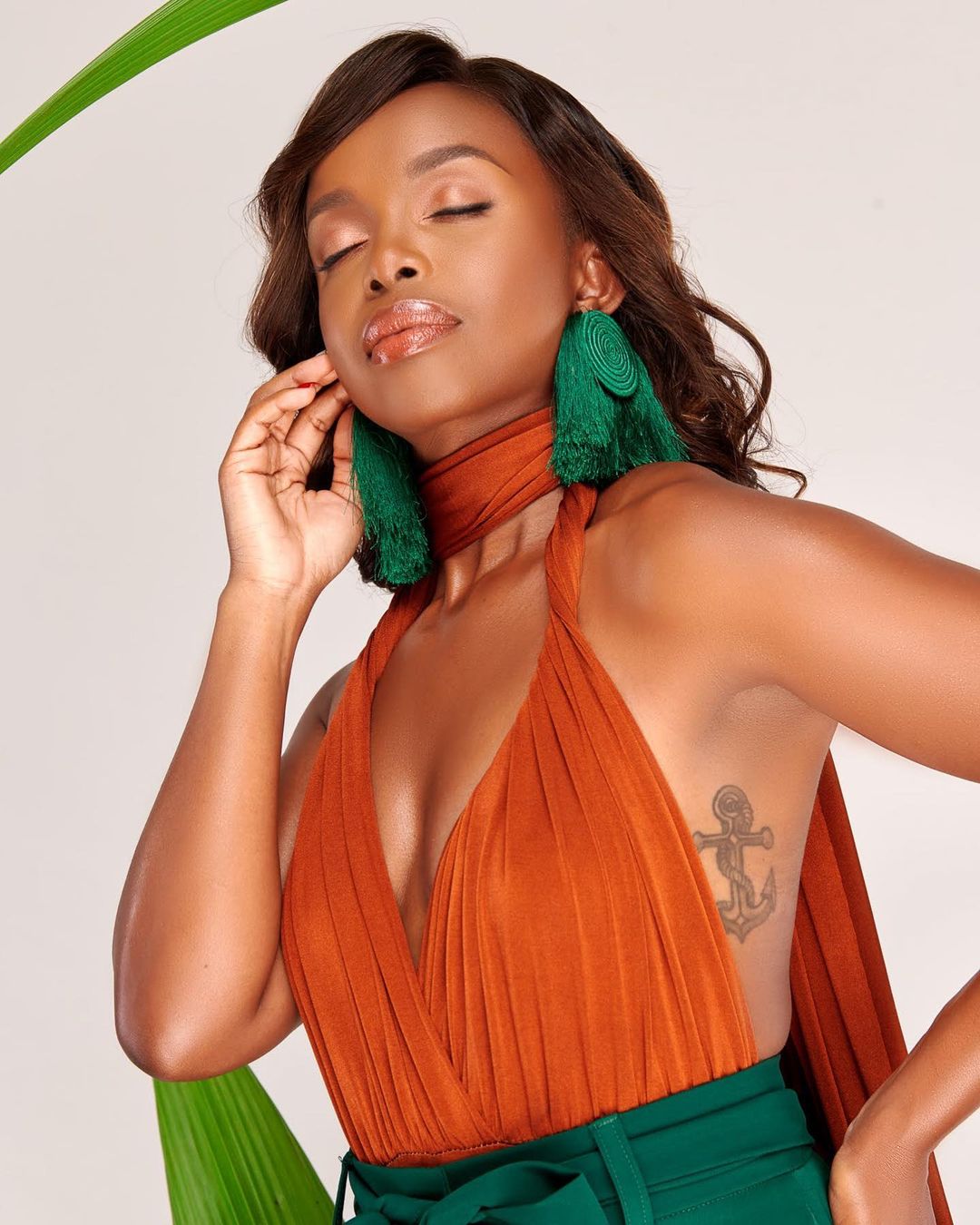
Handmade jewelry made by Inzuki Designs [PHOTO ID]
5. Joselyne Umutoniwase the founder of Rwanda Clothing Ltd which started in 2012 aims to offer well-tailored pieces and customized clothing made in Rwanda by Rwandans. The company started with two tailors and today has forty-five full-time and more than 50 part-time employees from different associations of women especially for the home decor pieces. Rwanda Clothing Home Ltd has two showrooms in Kigali and a production space. The company has a solid foundation and a successful growth curve. The brand is becoming well known not only within Rwanda but also across Africa and the world. It is a global brand.
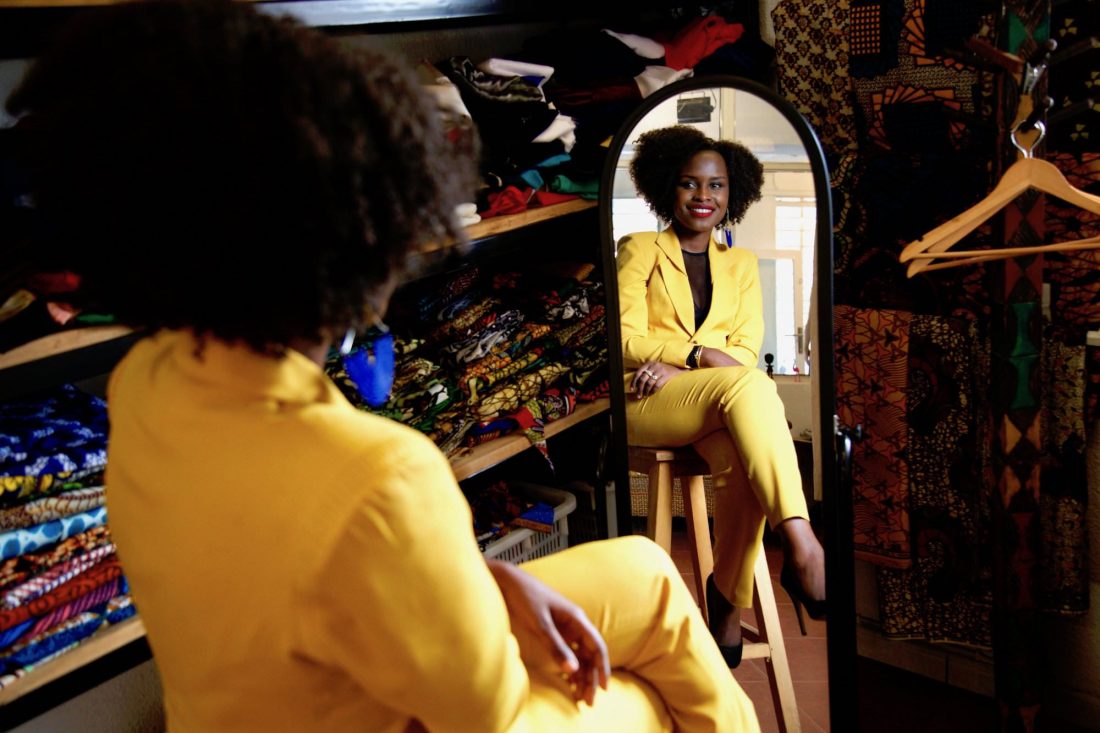
Ms. Joselyne Umutoniwase Founder and Creative Director at Rwanda Clothing [PHOTO RC]
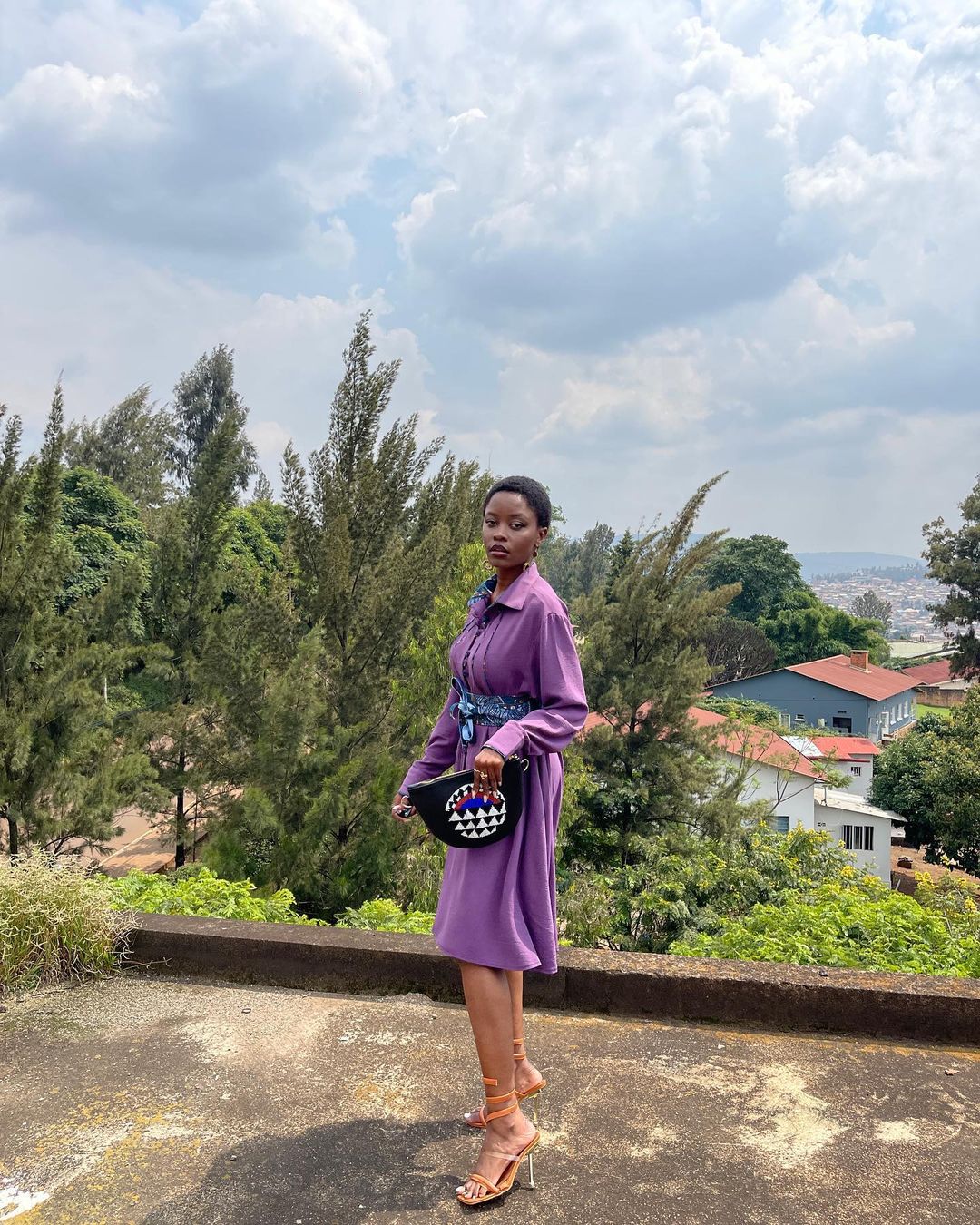
Made by Rwanda Clothing [PHOTO RC]
6. Haute Baso is an ethical lifestyle brand for the modern individual looking for thoughtful, simple, and functional designs. It offers an experiential shopping experience with blends of premium made-in-Rwanda fashion, food and beverage, and arts. It is centered around the belief that “two heads are better than one” using fashion as a vehicle for positive change towards the empowerment of women and youth who are integral to our value chain while contributing to the preservation of culture in Rwanda.
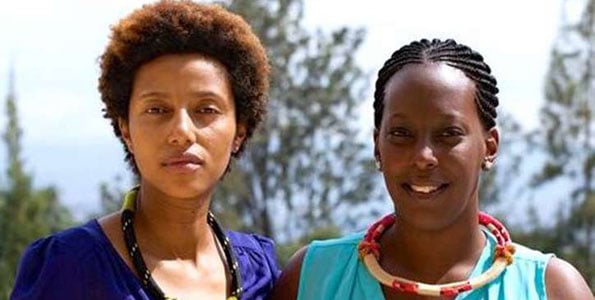
Ms. Linda Mukangoga (right) and Ms. Candy Basomingera Co-founders of the Haute Basso [PHOTO INTERNET]
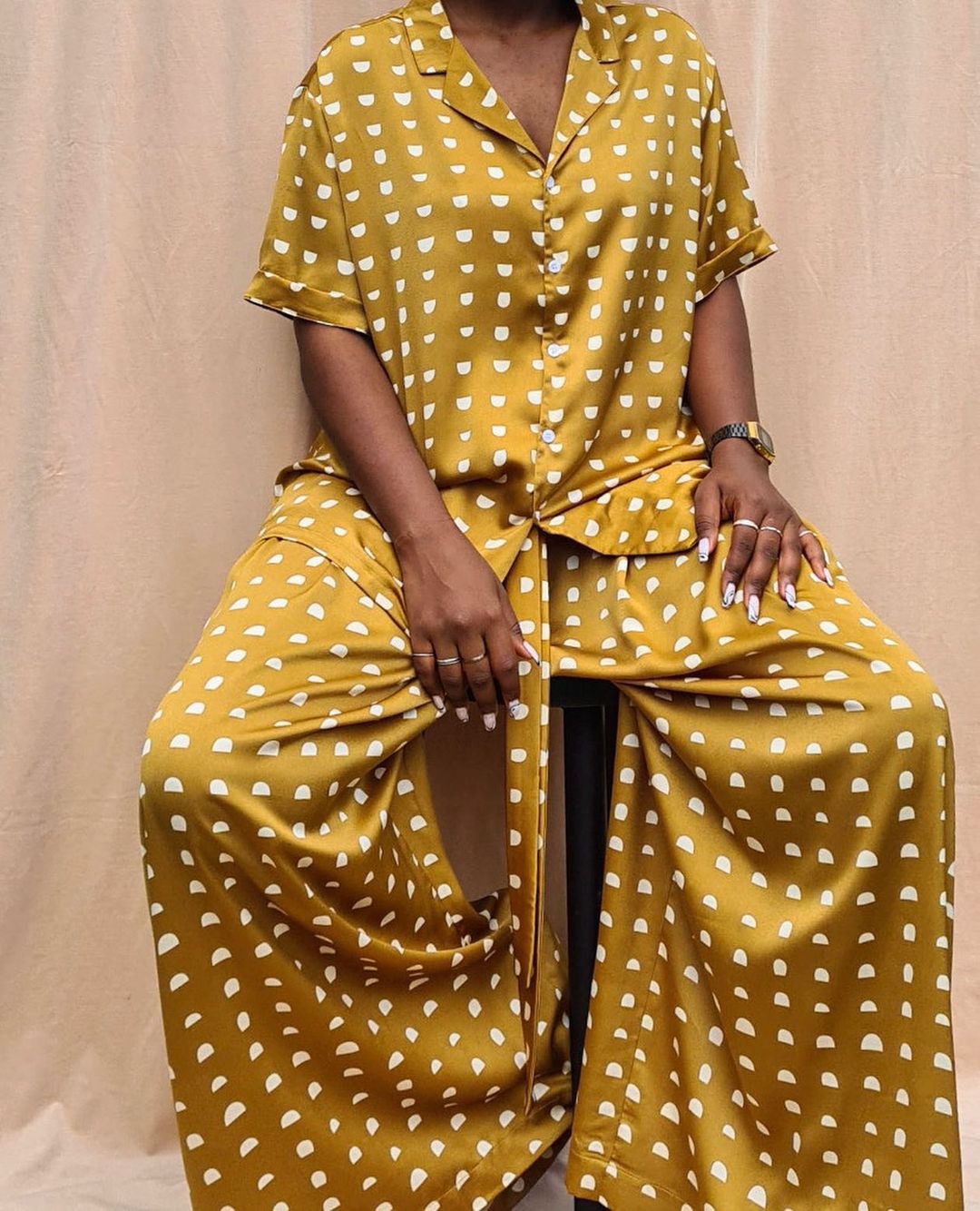
Made by Haute Basso [PHOTO HB]
7. Karssh Collections Ltd is a woman-owned made in Rwanda brand founded by Karen N Uwera in 2008.KarSSH is a bespoke and made-to-order brand that produces to create a sync between modernity, Rwandan culture, and its beautiful nature. The brand aims to create Rwandan fashion trends upholding the beautiful uniqueness of Rwandan culture, climate, and nature.
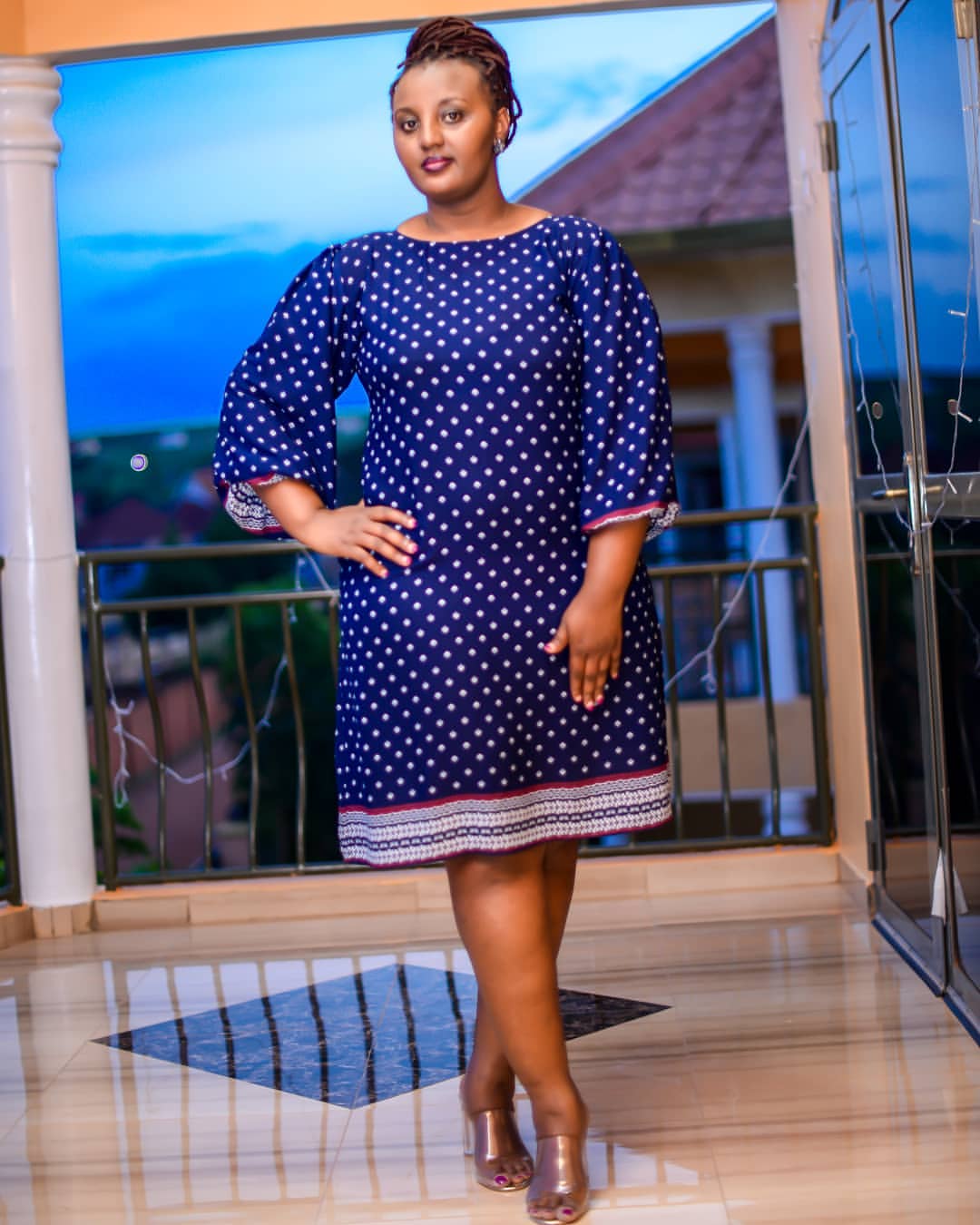
Ms. Karen N Uwera Founder and Creative Director at Karssh Collections [PHOTO KNU]
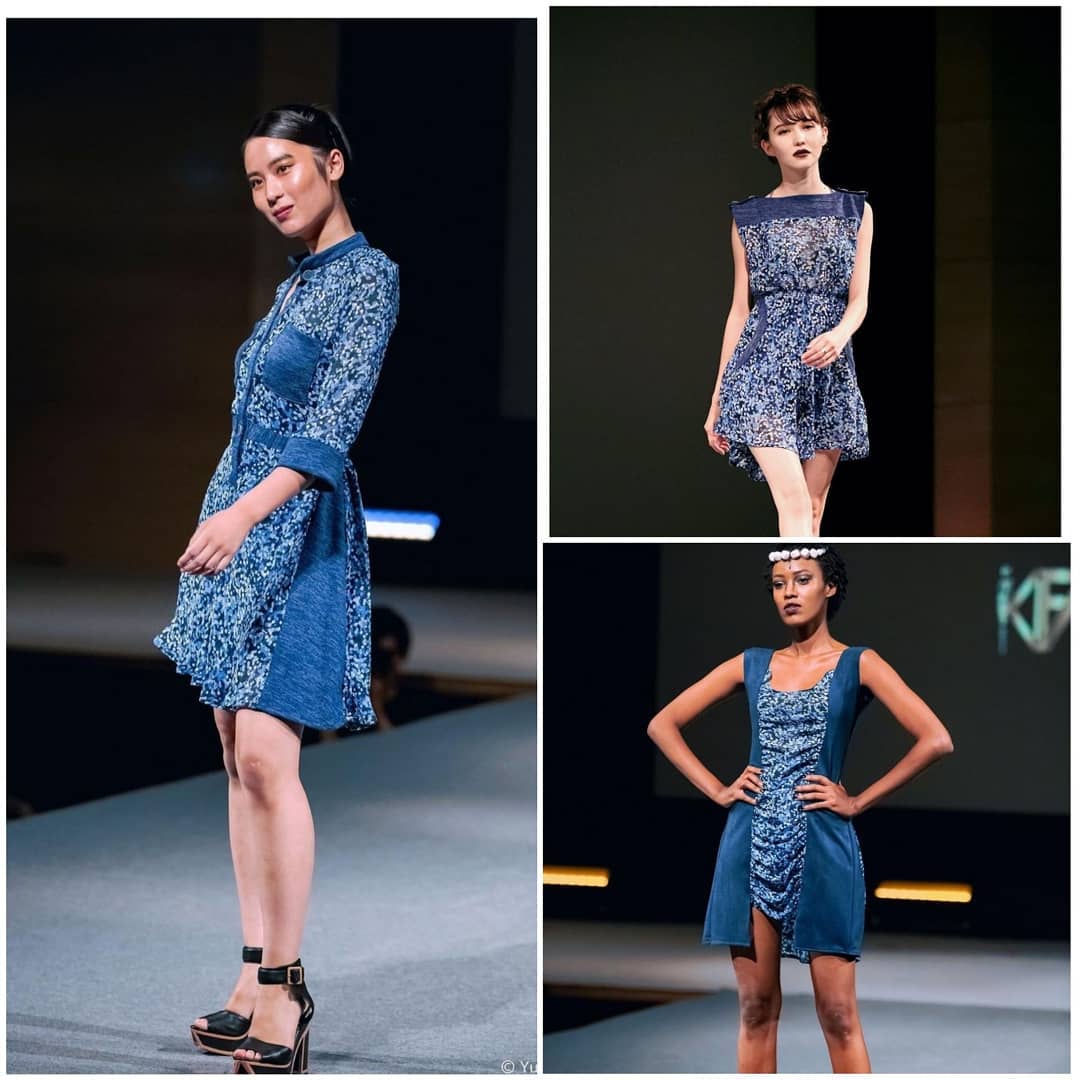
Made by Karssh Collections [PHOTO KNU]
8. Glo Creations was founded in 2008, by Ms. Gloria KAMANZI UWIZERA. The company has its extensive network in the Rwandan market and has gained an in-depth understanding of the handcraft sector. Its mission is to deliver quality products by blending quality and efficiency while maintaining integrity and dedication toward environmental and social responsibilities.
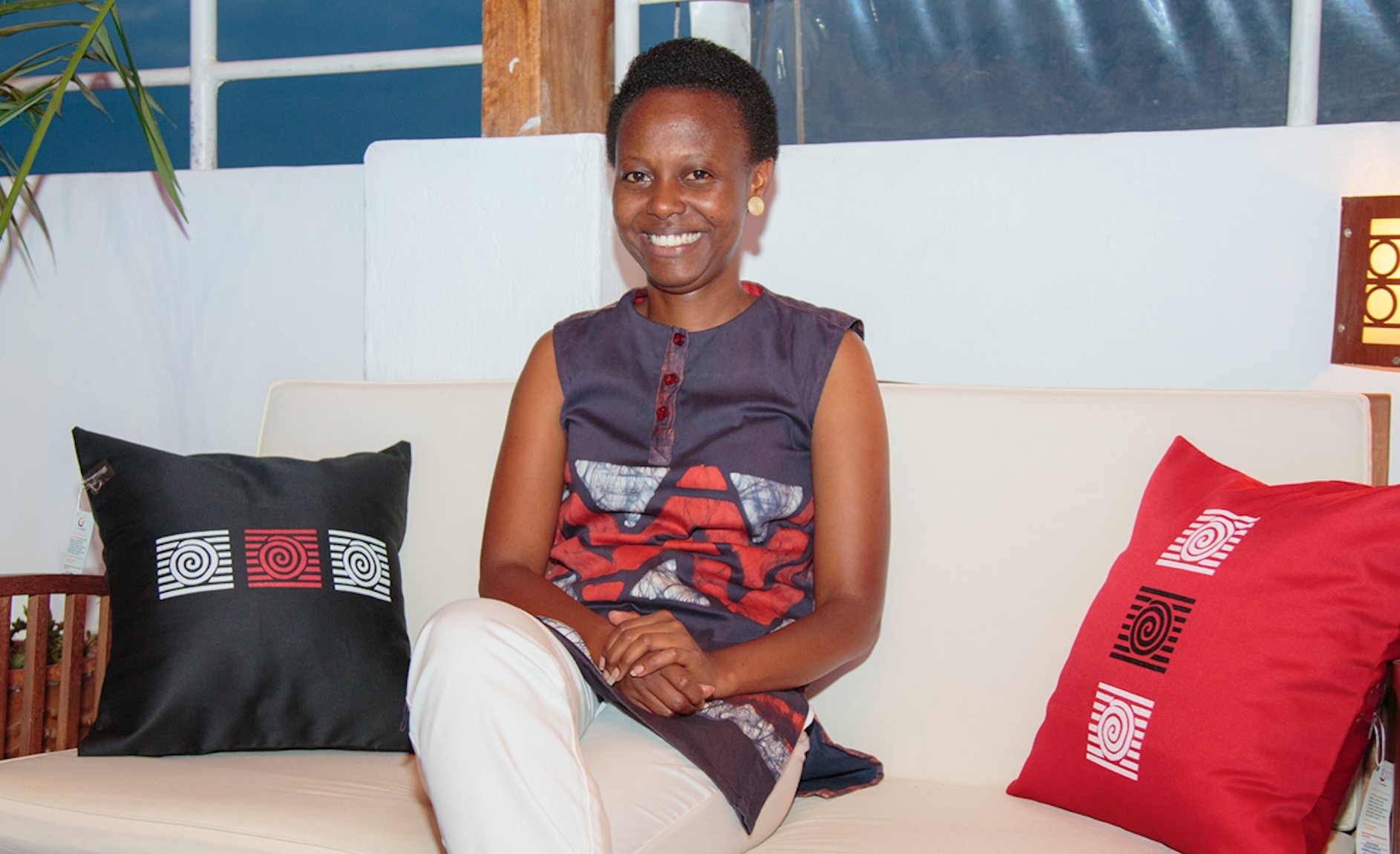
Ms. Gloria KAMANZI UWIZERA Founder and Creative Director at Glo Creations [PHOTO GLO CREATIONS ]
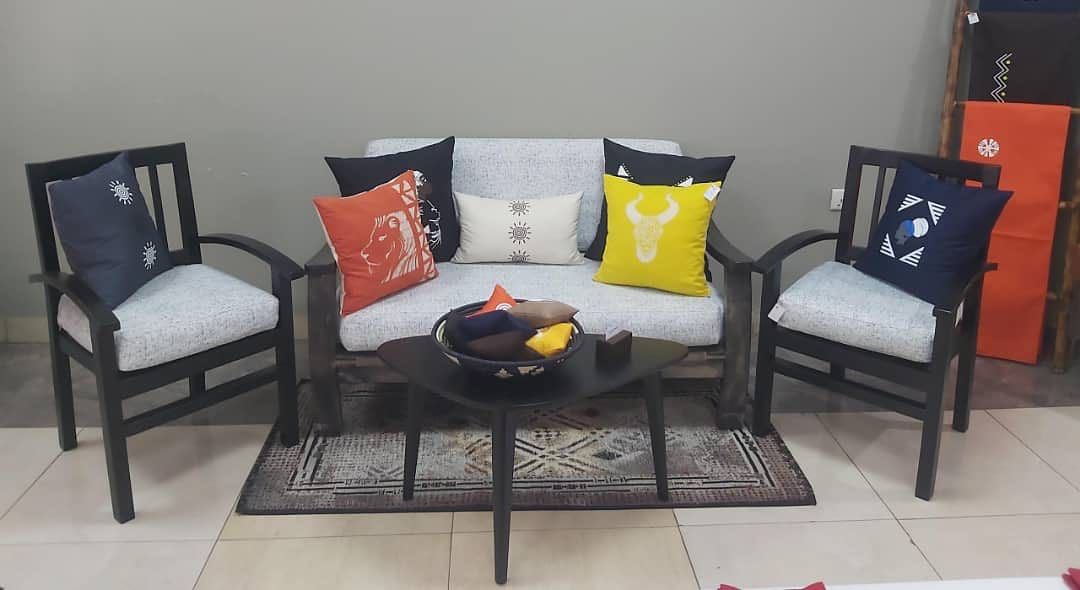
Living room Cushions made and designed by Glo Creations [PHOTO GLO CREATIONS]
9. Uzi Collections is one of the leading and pioneering fashion brands in Rwanda. It was founded in 2015 by Umutoni Rwema Laurène with the aim of providing unique and high-quality Made in Rwanda clothes that were hard to access. Her passion for fashion and her dream to change the country’s apparel industry made the young entrepreneur grow the business from a small brand with one tailor to one of the most-known fashion houses in Rwanda. Uzi Collections is a female-led business that beliefs in empowering young and particularly female tailors.
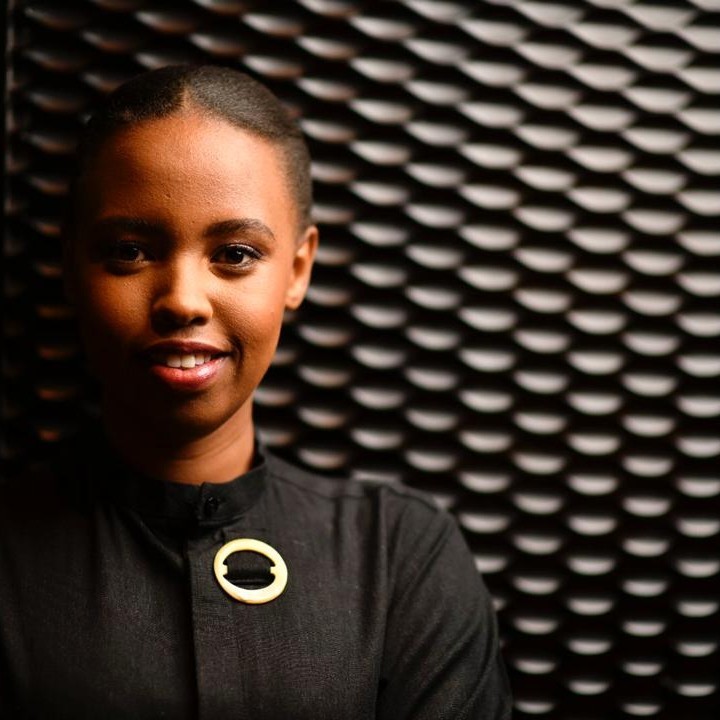
Ms. Laurene Umutoni Rwema CEO and Founder of UZI Collectios[ PHOTO LUR]
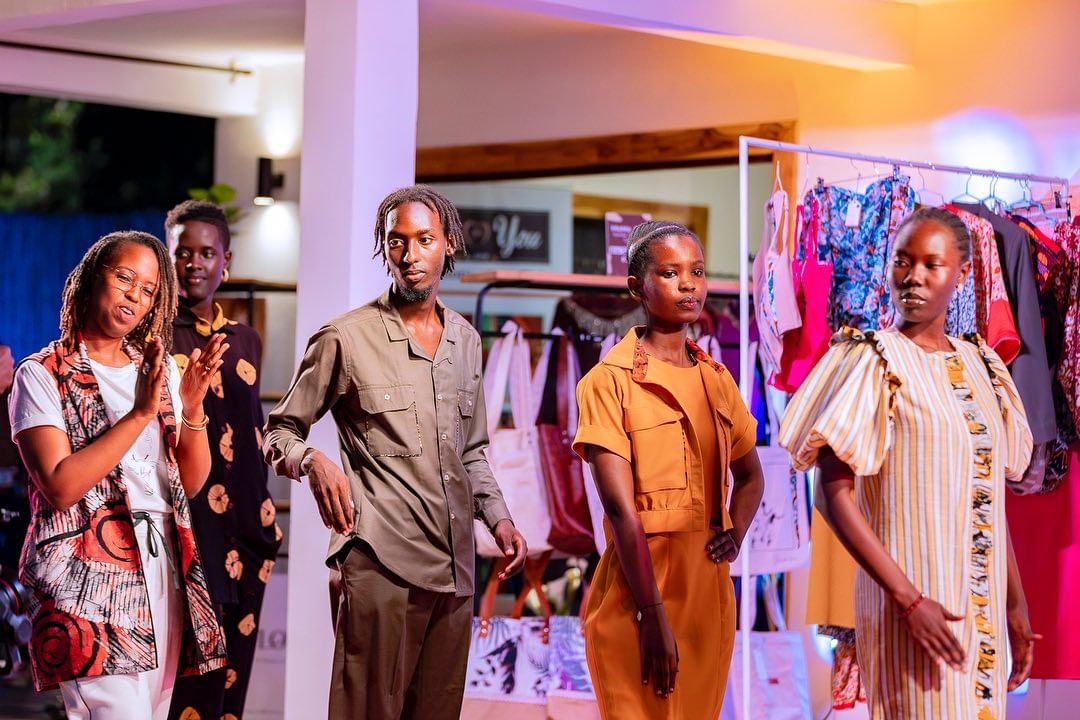
Collection made by Uzi Collections [PHOTO UZI COLLECTIONS]
10. Touch of Rwanda Fashion Designs is a fashion brand based in Rwanda that sells clothes in different materials by sizes, and we have a custom-made for men, women, and kids, plus different accessories such as bags, bathrobes, bed covers, and tablecloths. Touch Of Rwanda Fashion Designs Ltd was founded by Shema Charlotte.
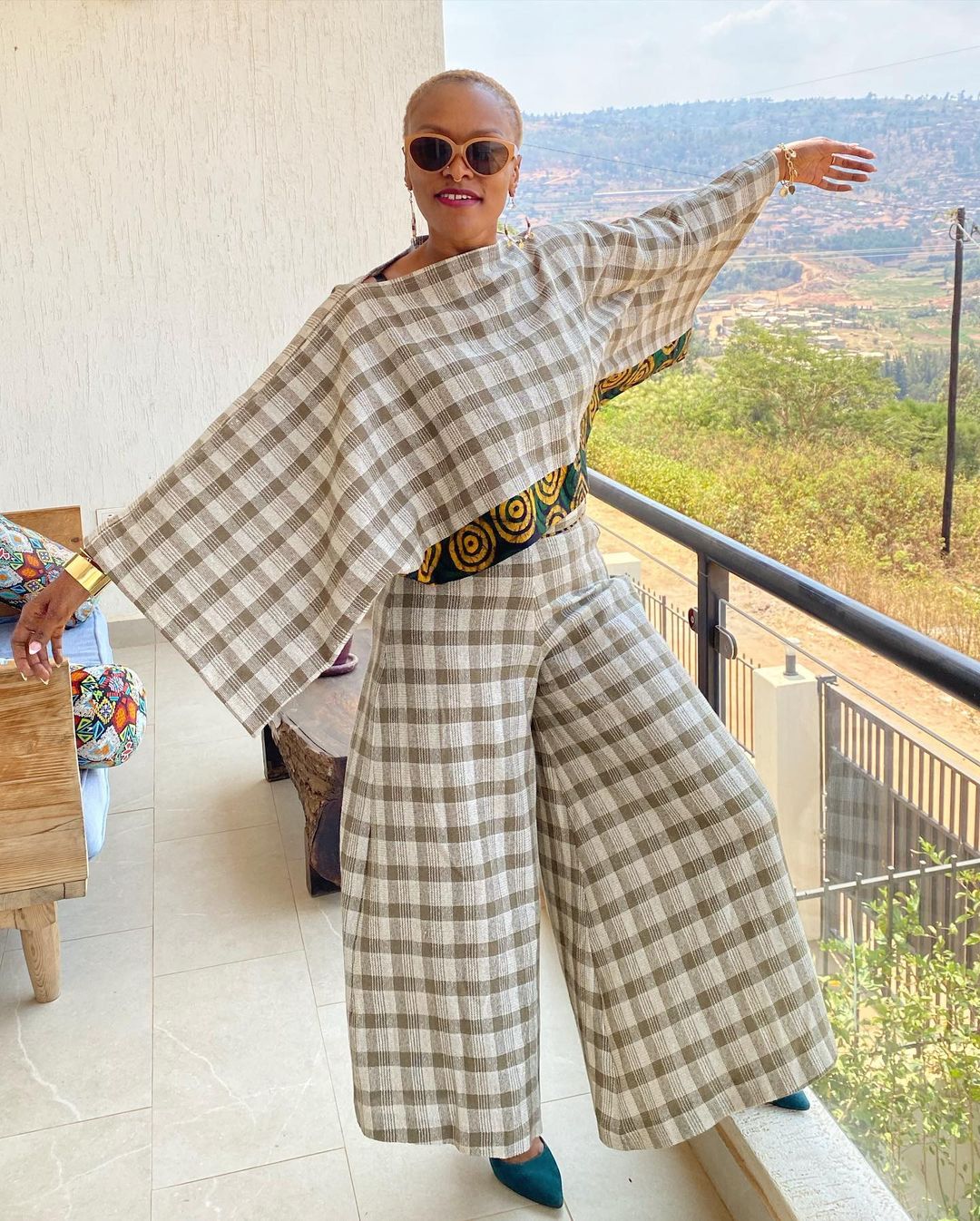
Ms. Shema Charlotte Founder and Creative Director at Touch of Rwanda Fashion Designs [PHOTO SHEMA]
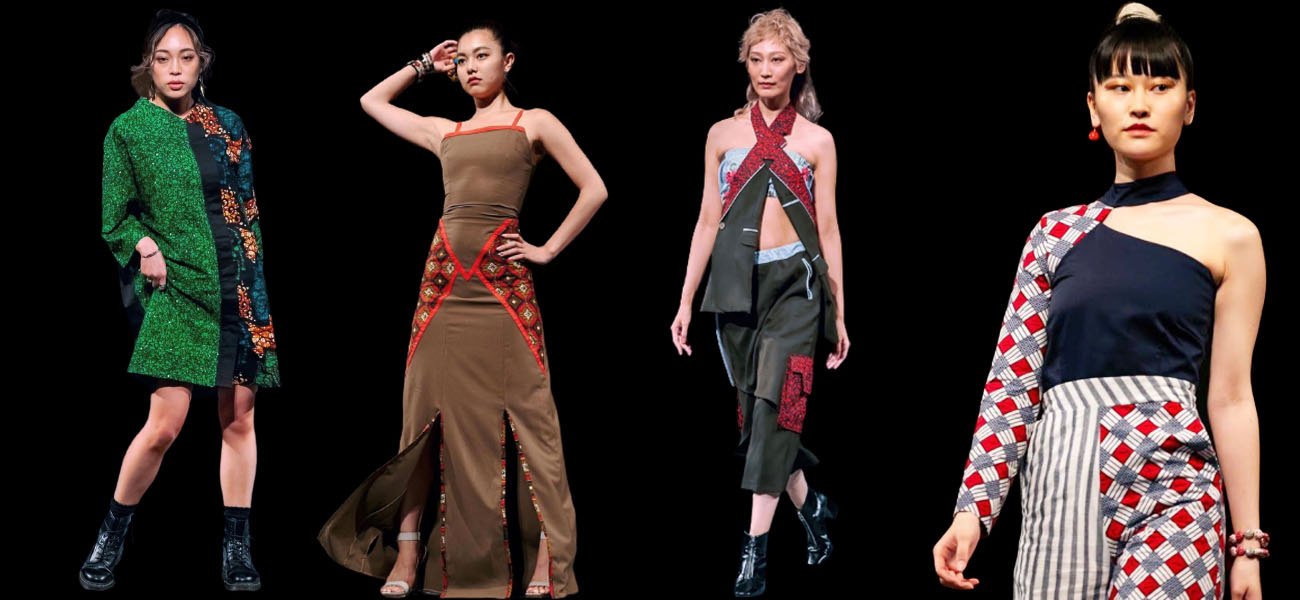
Made by the Touch of Rwanda Fashion Designs [PHOTO SHEMA]
11. The Mille Collines story begins in Kigali in 2008 when the paths of two passionate women crossed: Antoinette, a Rwandan seamstress, and Ines, a Spanish design student. They both shared the same vision; a belief that uniting talents would lead to creating groundbreaking products in Africa. Ines’ best friend Marc joined her in Rwanda and with Antoinette’s mentorship, they created the first apparel collection. In 2009 the brand was co-founded by Marc and Ines, the artisans and design team at the first Kigali Atelier voted for the name ‘Atelier des mille collines’.
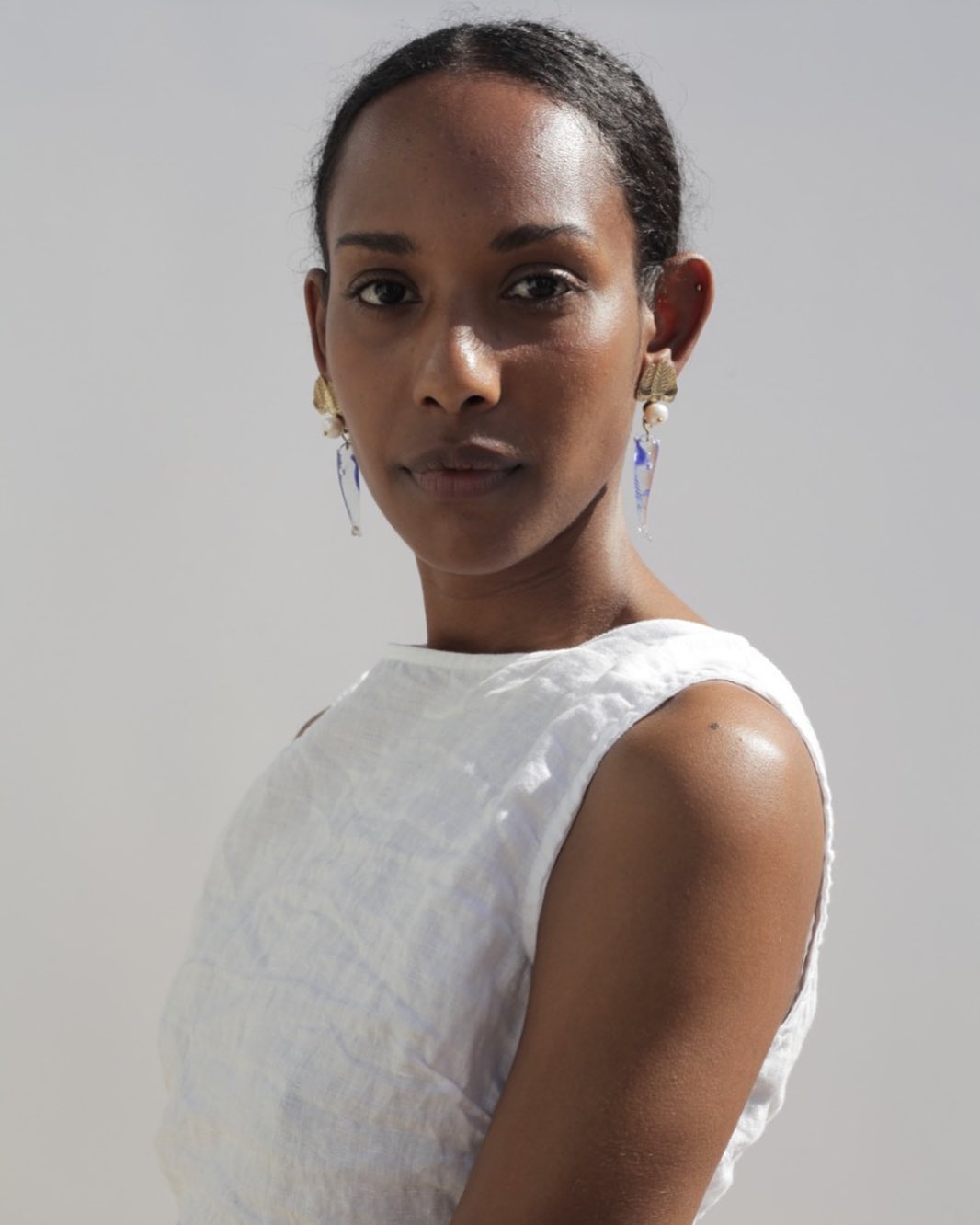
Ms. Maye Srouji CEO of the Mille Collines [PHOTO MS]
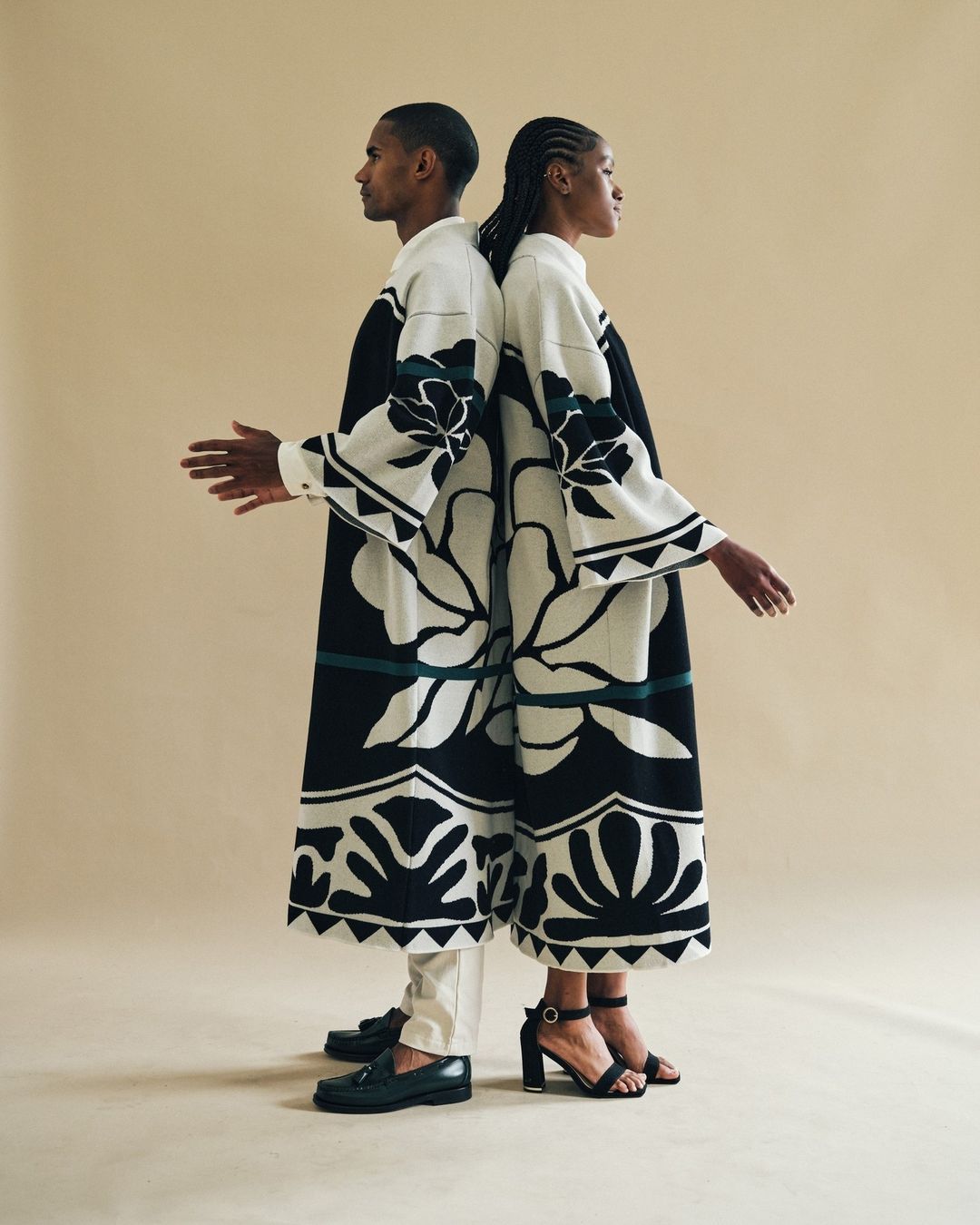
Made by the Mille Collines [PHOTO MC]
12. Dokmai is a newcomer in Rwanda, but the company has its roots in Laos. For 8 years Dokmai produced Fair Trade handmade goods, specializing in hand-woven and naturally dyed silk products following both traditional styles and en vogue fashion. In 2014, Bernadette Umunyana left Southeast Asia and decided to restart a new handicraft business aiming at attracting the attention of the international community for the beauty of Rwanda in promoting exquisite handicraft products inspired by the splendor of the country of a thousand hills.
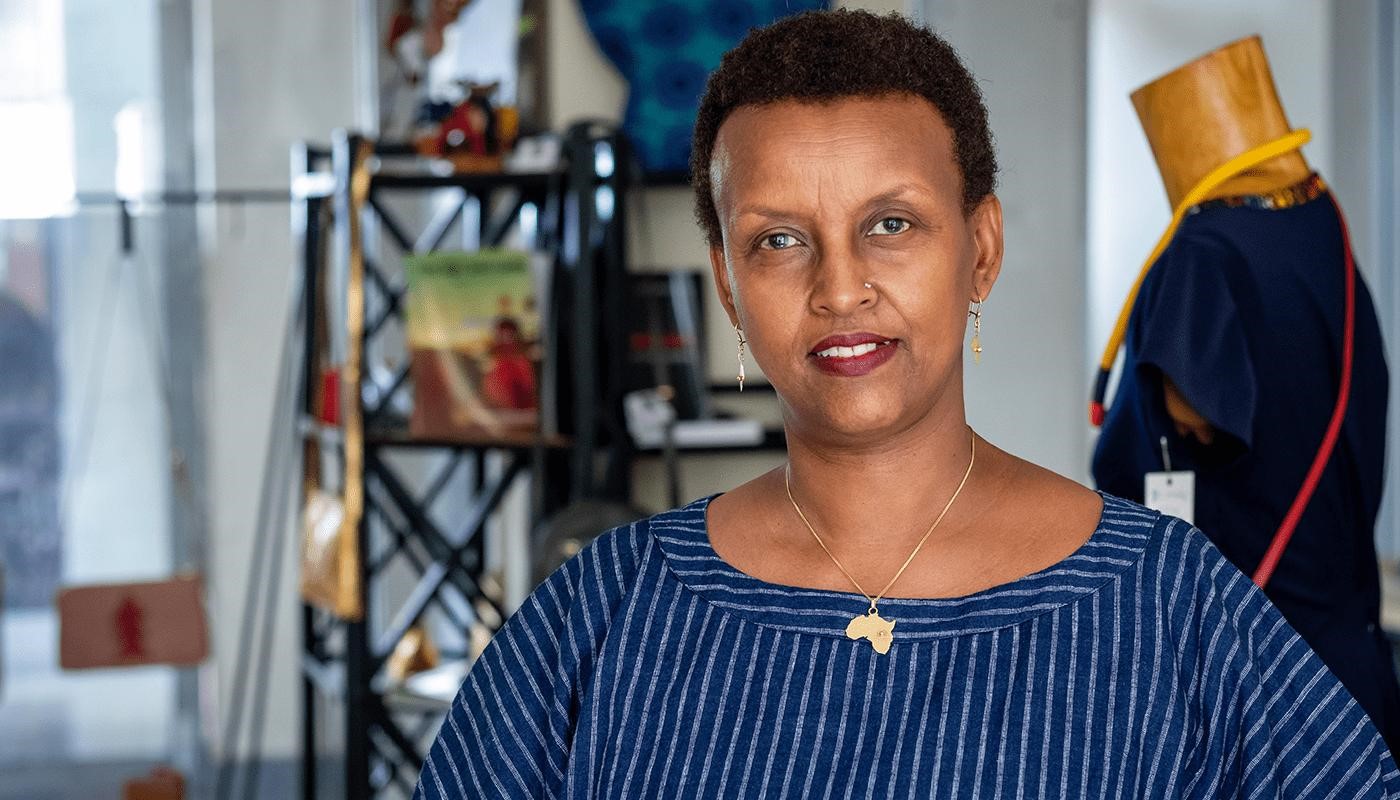
Ms. Bernadette Umunyana CEO and founder of Dokmai [PHOTO DOKMAI]
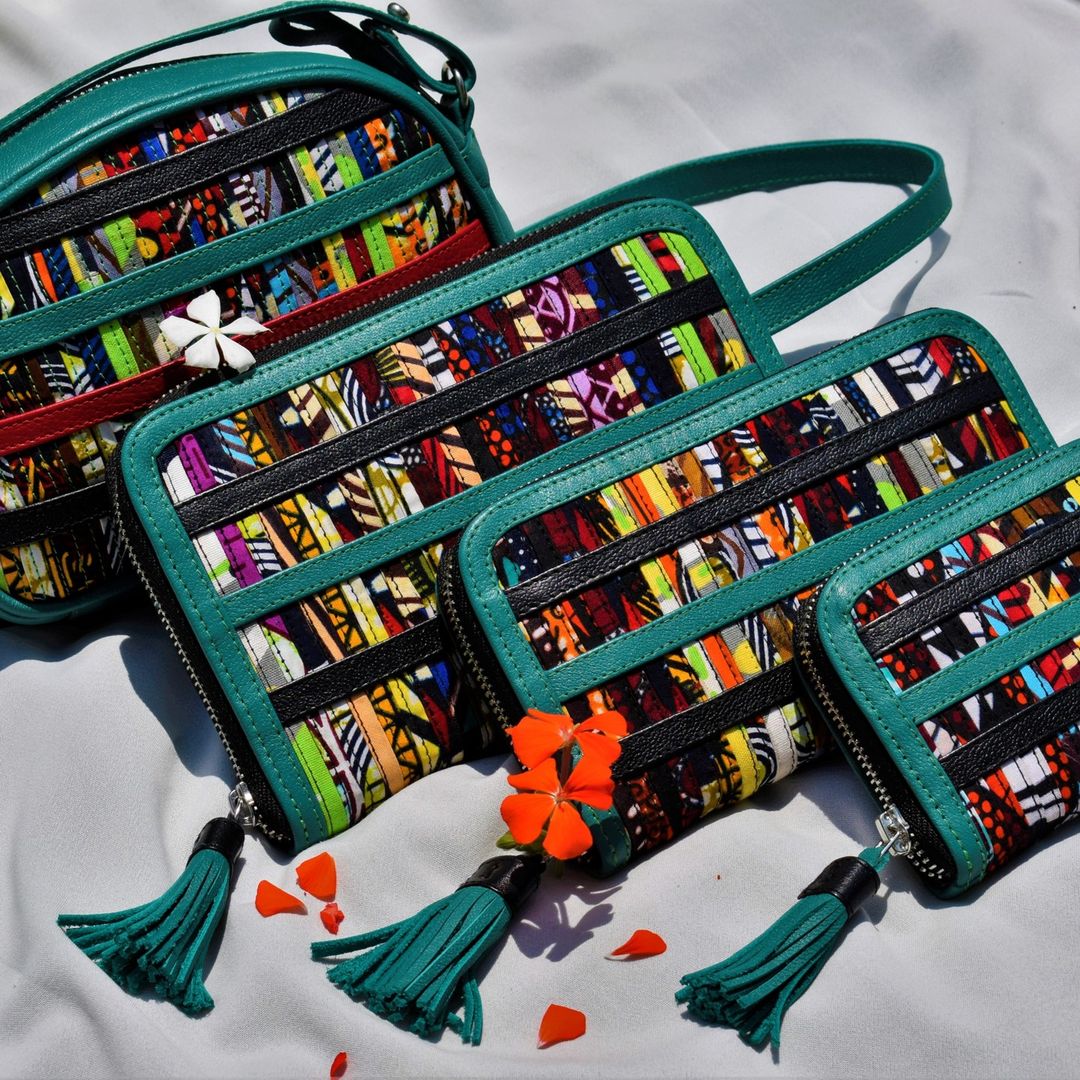
Nice handbags Made by Dokmai [PHOTO DOKMAI]
13. Gahaya Links After the 1994 Rwandan Genocide, thousands of women were left as widows, single mothers, and orphaned teenage girls who were the sole income providers for their families. Sisters Joy Ndunguste and Janet Nkubana recognized the opportunity to use traditional Rwandan weaving as a means of income generation and created Gahaya Links as a training facility and marketplace to economically empower Rwandan women.
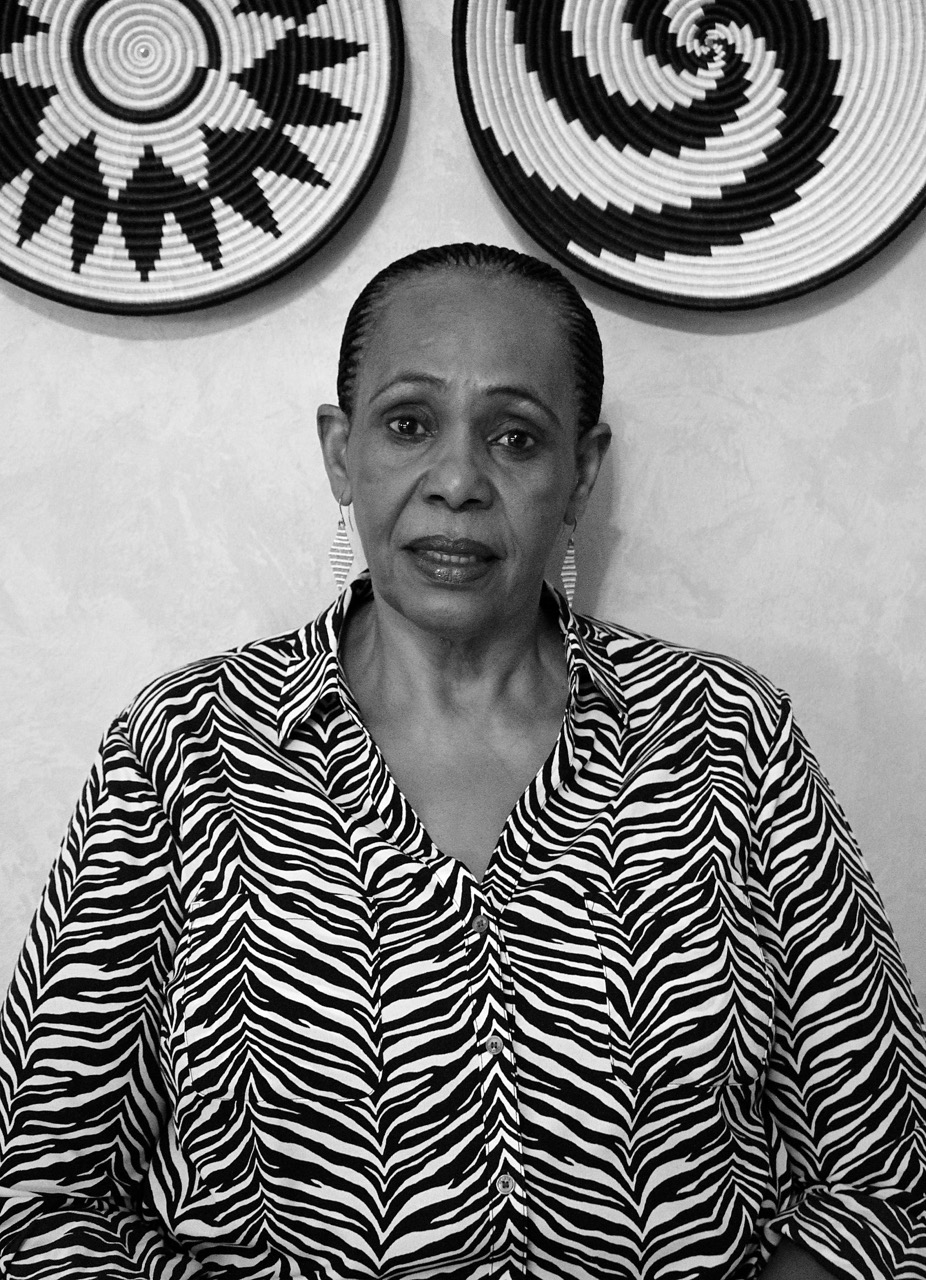
Joy Ndunguste Chief Executive Officer and Founder Gahaya Links [PHOTO GAHAYA LINKS]
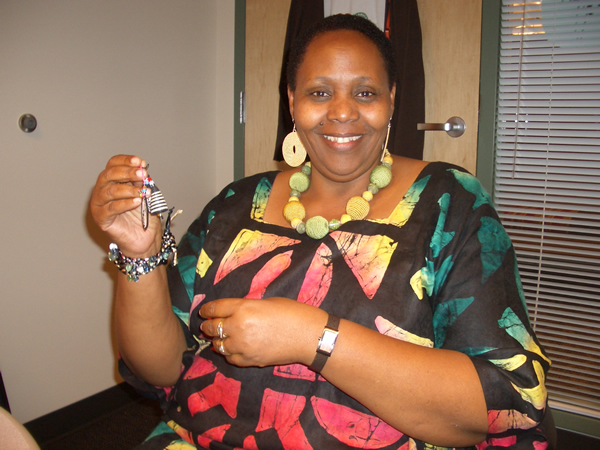
Janet Nkubana Managing Director & Co-Founder of Gahaya Links [PHOTO GAHAYA LINKS]
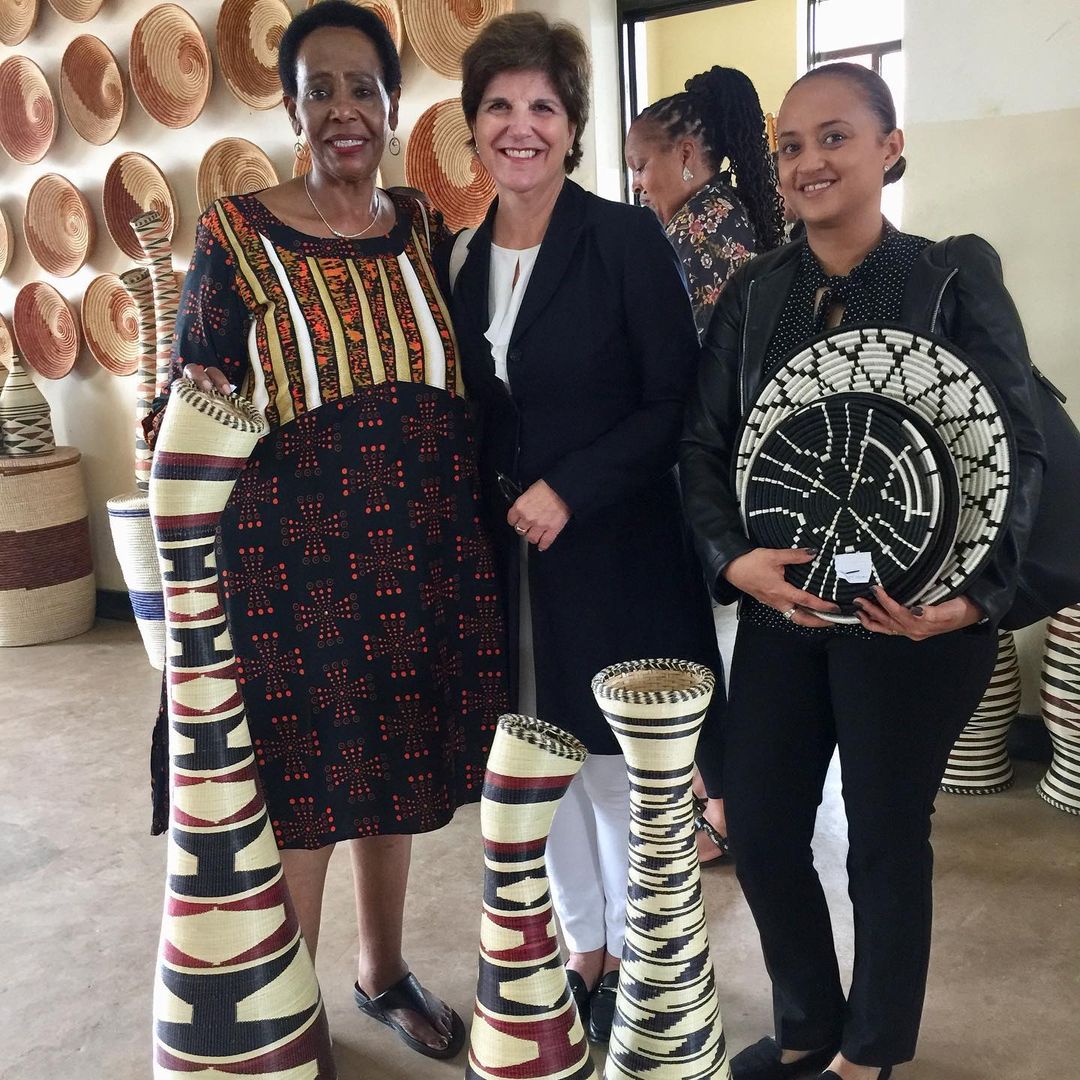
Decorations made by Gahaya Links [GAHAYA LINKS]
14. Azizi Life began in 2008 as an initiative of the Christian nonprofit, Food for the Hungry. Through a business development program, with a number of artisan cooperatives including women. Azizi Life was begun to honor the initiatives and work of the artisans and serve as a bridge to customers around the world.
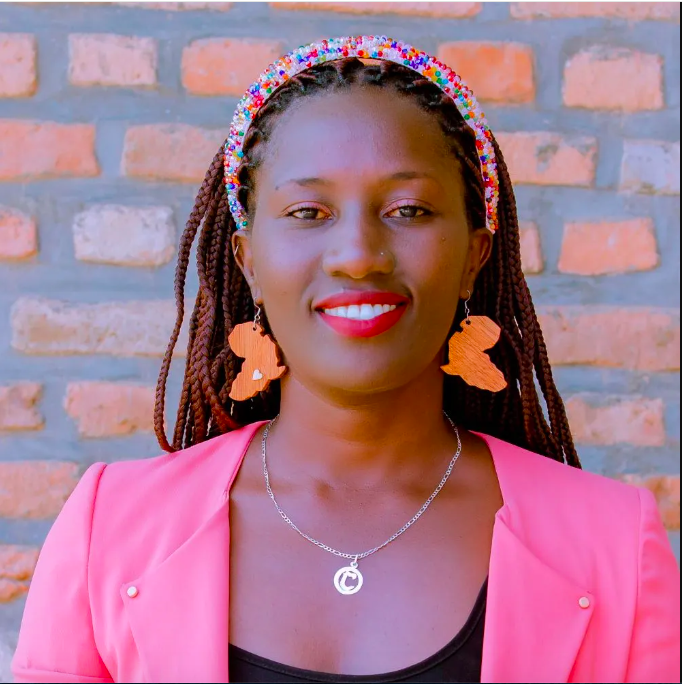
Ms. Jeannine, Chief Executive Officer at Azizi Life Rwanda [PHOTO AZIZI]
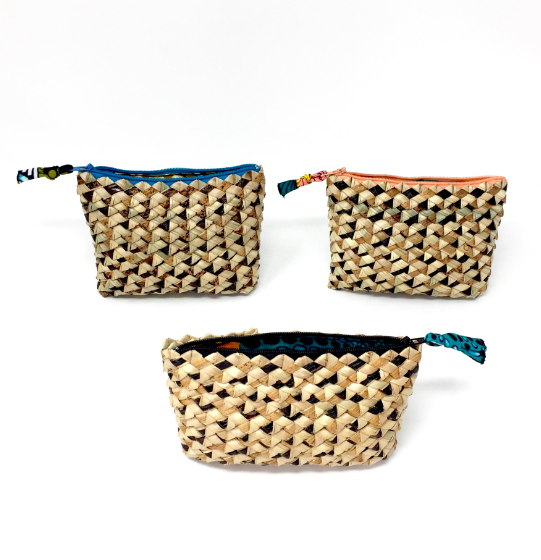
Purses made by Azizi Life Cooperative [PHOTO AZIZI]
16. Additionally, we celebrate Kevine Kagirimpundu and Ysolde SHIMWE founders of UZURI K & Y who have been pivotal in driving innovation and inclusivity in the Rwandan fashion landscape. Uzuri K&Y is renowned for its commitment to quality, sustainability, and empowerment, making strides in promoting Rwandan fashion both locally and globally.
UZURI K&Y is an African-inspired eco-friendly shoe brand that champions sustainability through its innovative use of the 4R technology: recycling, reusing, recovering, and reducing car tires to create eco-friendly footwear. Founded in 2013 by two visionary friends, Ms. Ysolde and Ms. Kevine, the company emerged with a mission to address pressing environmental and unemployment challenges within their community.
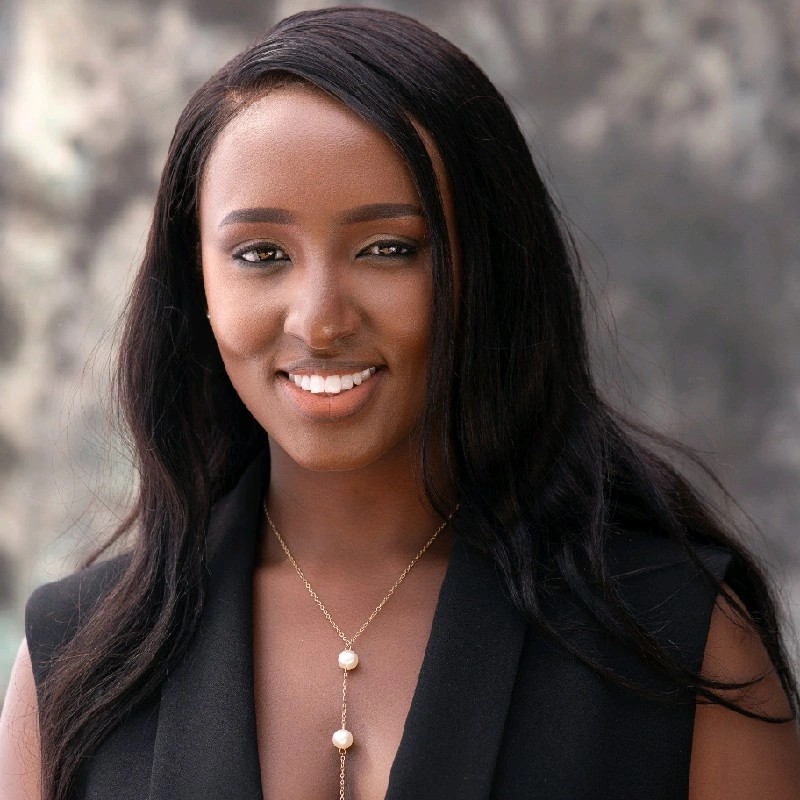
Kevine Kagirimpundu CoFounder & CEO UZURI K&Y [PHOTO KEVINE]
"As we celebrate Women's Month, let us commend the resilience and innovation of Rwandan female entrepreneurs. Their dedication to tradition, sustainability, and craftsmanship not only shapes the fashion industry but also inspires future generations to pursue bold dreams and effect positive change" UZURI K & Y
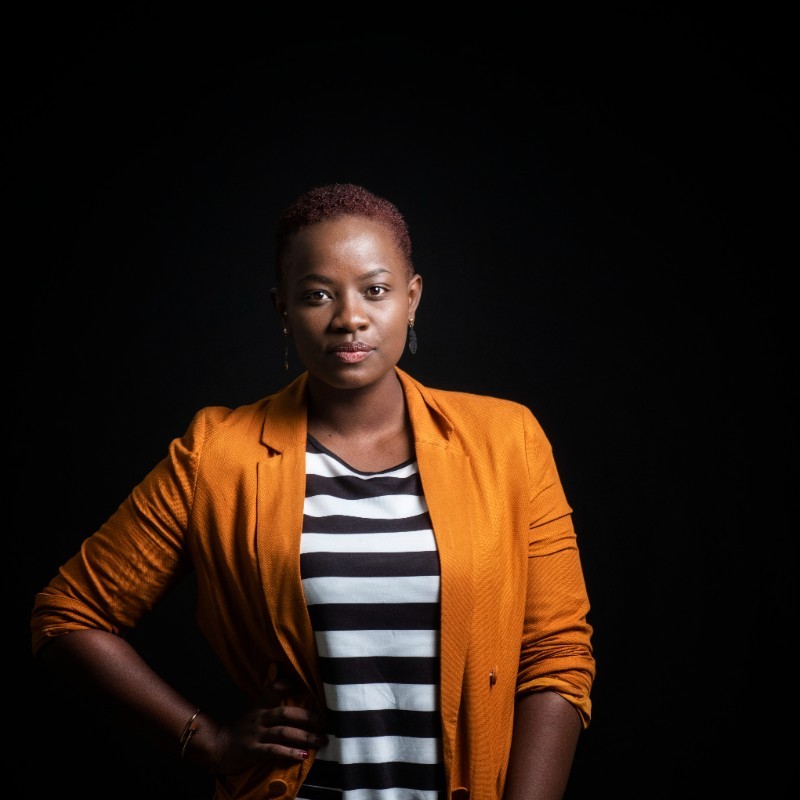
Ysolde Shimwe Co-Founder & Creative Director at UZURI K&Y [PHOTO Ysolde]
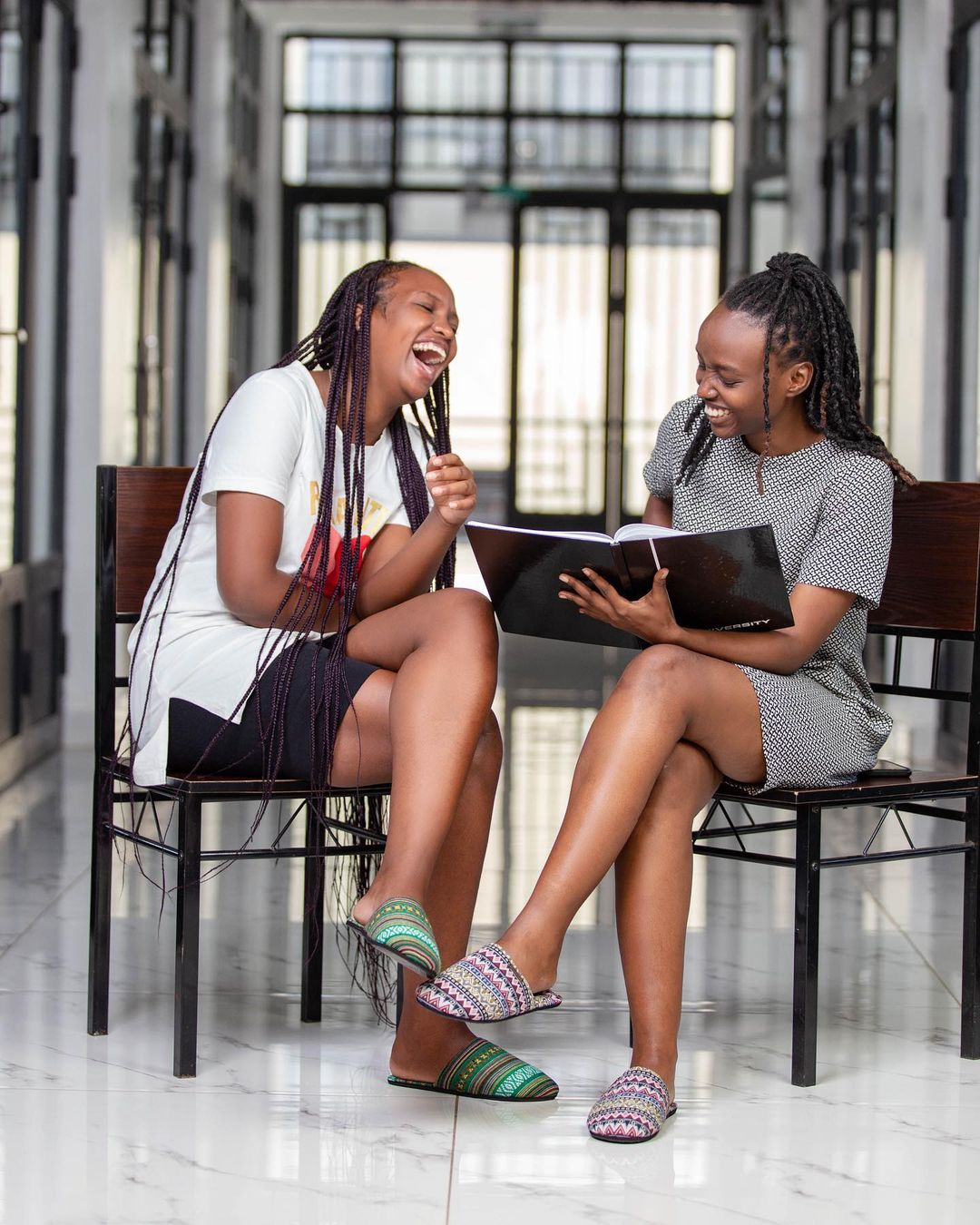
Shoes made by UZURI K & Y [PHOTO UZURI K & Y]
Celebrating Top 16 Female Entrepreneurs: Driving Innovation and Empowerment in Rwanda's Fashion Industry
The fashion industry in Rwanda has seen a significant rise in recent years, and women have played a crucial role in its development. Despite facing various challenges, Rwandan women in the fashion sector have demonstrated remarkable resilience, creativity, and entrepreneurial spirit. This story is developed from the original story published by UZURI K &Y.
The article highlights the remarkable female entrepreneurs shaping Rwanda's fashion industry. It celebrates their contributions to innovation, inclusivity, and empowerment, showcasing their dedication to quality, sustainability, and community upliftment. By recognizing these trailblazing women, the article aims to inspire future generations and elevate the visibility of Rwandan fashion on the global stage.

Ms. UWAMARIYA Solange inside UZURI K & Y shoe factory in Kigali [PHOTO UZURI K &Y]
In the ever-evolving world of fashion, we honor Women's Month by celebrating the outstanding female entrepreneurs shaping Rwanda's vibrant fashion landscape. From clothing to accessories, these visionary leaders are revolutionizing the industry while uplifting communities and driving economic progress.
1. One standout figure is Sonia Mugabo, whose namesake brand has garnered acclaim for its modern aesthetic and sustainable ethos. Inspired by Rwandan culture and craftsmanship, Mugabo's designs pay homage to the nation's rich heritage while embracing contemporary style. For the past 10 years, her eponymous brand has employed local artisans to make high-quality "Made in Rwanda" clothes. Focusing on versatility, detail, and fabric, Sonia Mugabo builds a conscious brand centered on elegant and timeless creations. A pioneer of Rwanda’s fashion industry, she is setting the standard for Rwandan fashion in global and local markets.

Ms. Sonia Mugabo Founder and Creative Director at Sonia Mugabo fashion house [ PHOTO SM]

Made by Sonia Mugabo [PHOTO SM]
2. Girabawe Gloria, the founder of Flove Rwanda, leads a Rwandan-based social enterprise dedicated to producing eco-friendly, reusable handbags. Flove's mission extends beyond fashion, aiming to empower teenage mothers in Rwanda by providing them with sustainable livelihoods. Through their products, Flove seeks to challenge societal norms surrounding teenage pregnancy and instill confidence in young women.

Ms. Girabawe Gloria Founder and Creative Director at Flove Rwanda [PHOTO GG]

Bags made by Flove Rwanda [PHOTO FR]
3. Sarah Legrand, as the CEO of K'tsobe Jewelry, brings a unique touch of elegance to the fashion world with her exquisite pieces. Crafted from a blend of natural and noble materials, Legrand's jewelry is inspired by nature, Rwandan symbols, and global cultures, offering a distinctively beautiful aesthetic.

Ms Sarah Legrand Founder and Creative Director at K'tsobe Jewelry [PHOTO SL]

Jeweies made by K'tsobe Jewelry [PHOTO KJ]
4. Teta Isibo is a self-taught fashion designer and entrepreneur passionate about youth entrepreneurship and mentorship, women empowerment, Africa's development, Business and leadership, Innovation, Rwanda, fashion design, interior design, and all things design. She is the founder and creative director of Inzuki Designs.

Ms. Teta Isibo Founder and Creative Director at Inzuki Designs [ PHOTO TI]

Handmade jewelry made by Inzuki Designs [PHOTO ID]
5. Joselyne Umutoniwase the founder of Rwanda Clothing Ltd which started in 2012 aims to offer well-tailored pieces and customized clothing made in Rwanda by Rwandans. The company started with two tailors and today has forty-five full-time and more than 50 part-time employees from different associations of women especially for the home decor pieces. Rwanda Clothing Home Ltd has two showrooms in Kigali and a production space. The company has a solid foundation and a successful growth curve. The brand is becoming well known not only within Rwanda but also across Africa and the world. It is a global brand.

Ms. Joselyne Umutoniwase Founder and Creative Director at Rwanda Clothing [PHOTO RC]

Made by Rwanda Clothing [PHOTO RC]
6. Haute Baso is an ethical lifestyle brand for the modern individual looking for thoughtful, simple, and functional designs. It offers an experiential shopping experience with blends of premium made-in-Rwanda fashion, food and beverage, and arts. It is centered around the belief that “two heads are better than one” using fashion as a vehicle for positive change towards the empowerment of women and youth who are integral to our value chain while contributing to the preservation of culture in Rwanda.

Ms. Linda Mukangoga (right) and Ms. Candy Basomingera Co-founders of the Haute Basso [PHOTO INTERNET]

Made by Haute Basso [PHOTO HB]
7. Karssh Collections Ltd is a woman-owned made in Rwanda brand founded by Karen N Uwera in 2008.KarSSH is a bespoke and made-to-order brand that produces to create a sync between modernity, Rwandan culture, and its beautiful nature. The brand aims to create Rwandan fashion trends upholding the beautiful uniqueness of Rwandan culture, climate, and nature.

Ms. Karen N Uwera Founder and Creative Director at Karssh Collections [PHOTO KNU]

Made by Karssh Collections [PHOTO KNU]
8. Glo Creations was founded in 2008, by Ms. Gloria KAMANZI UWIZERA. The company has its extensive network in the Rwandan market and has gained an in-depth understanding of the handcraft sector. Its mission is to deliver quality products by blending quality and efficiency while maintaining integrity and dedication toward environmental and social responsibilities.

Ms. Gloria KAMANZI UWIZERA Founder and Creative Director at Glo Creations [PHOTO GLO CREATIONS ]

Living room Cushions made and designed by Glo Creations [PHOTO GLO CREATIONS]
9. Uzi Collections is one of the leading and pioneering fashion brands in Rwanda. It was founded in 2015 by Umutoni Rwema Laurène with the aim of providing unique and high-quality Made in Rwanda clothes that were hard to access. Her passion for fashion and her dream to change the country’s apparel industry made the young entrepreneur grow the business from a small brand with one tailor to one of the most-known fashion houses in Rwanda. Uzi Collections is a female-led business that beliefs in empowering young and particularly female tailors.

Ms. Laurene Umutoni Rwema CEO and Founder of UZI Collectios[ PHOTO LUR]

Collection made by Uzi Collections [PHOTO UZI COLLECTIONS]
10. Touch of Rwanda Fashion Designs is a fashion brand based in Rwanda that sells clothes in different materials by sizes, and we have a custom-made for men, women, and kids, plus different accessories such as bags, bathrobes, bed covers, and tablecloths. Touch Of Rwanda Fashion Designs Ltd was founded by Shema Charlotte.

Ms. Shema Charlotte Founder and Creative Director at Touch of Rwanda Fashion Designs [PHOTO SHEMA]

Made by the Touch of Rwanda Fashion Designs [PHOTO SHEMA]
11. The Mille Collines story begins in Kigali in 2008 when the paths of two passionate women crossed: Antoinette, a Rwandan seamstress, and Ines, a Spanish design student. They both shared the same vision; a belief that uniting talents would lead to creating groundbreaking products in Africa. Ines’ best friend Marc joined her in Rwanda and with Antoinette’s mentorship, they created the first apparel collection. In 2009 the brand was co-founded by Marc and Ines, the artisans and design team at the first Kigali Atelier voted for the name ‘Atelier des mille collines’.

Ms. Maye Srouji CEO of the Mille Collines [PHOTO MS]

Made by the Mille Collines [PHOTO MC]
12. Dokmai is a newcomer in Rwanda, but the company has its roots in Laos. For 8 years Dokmai produced Fair Trade handmade goods, specializing in hand-woven and naturally dyed silk products following both traditional styles and en vogue fashion. In 2014, Bernadette Umunyana left Southeast Asia and decided to restart a new handicraft business aiming at attracting the attention of the international community for the beauty of Rwanda in promoting exquisite handicraft products inspired by the splendor of the country of a thousand hills.

Ms. Bernadette Umunyana CEO and founder of Dokmai [PHOTO DOKMAI]

Nice handbags Made by Dokmai [PHOTO DOKMAI]
13. Gahaya Links After the 1994 Rwandan Genocide, thousands of women were left as widows, single mothers, and orphaned teenage girls who were the sole income providers for their families. Sisters Joy Ndunguste and Janet Nkubana recognized the opportunity to use traditional Rwandan weaving as a means of income generation and created Gahaya Links as a training facility and marketplace to economically empower Rwandan women.

Joy Ndunguste Chief Executive Officer and Founder Gahaya Links [PHOTO GAHAYA LINKS]

Janet Nkubana Managing Director & Co-Founder of Gahaya Links [PHOTO GAHAYA LINKS]

Decorations made by Gahaya Links [GAHAYA LINKS]
14. Azizi Life began in 2008 as an initiative of the Christian nonprofit, Food for the Hungry. Through a business development program, with a number of artisan cooperatives including women. Azizi Life was begun to honor the initiatives and work of the artisans and serve as a bridge to customers around the world.

Ms. Jeannine, Chief Executive Officer at Azizi Life Rwanda [PHOTO AZIZI]

Purses made by Azizi Life Cooperative [PHOTO AZIZI]
16. Additionally, we celebrate Kevine Kagirimpundu and Ysolde SHIMWE, founders of UZURI K & Y who have been pivotal in driving innovation and inclusivity in the Rwandan fashion landscape. Uzuri K&Y is renowned for its commitment to quality, sustainability, and empowerment, making strides in promoting Rwandan fashion both locally and globally.
UZURI K&Y is an African-inspired eco-friendly shoe brand that champions sustainability through its innovative use of the 4R technology: recycling, reusing, recovering, and reducing car tires to create eco-friendly footwear. Founded in 2013 by two visionary friends, Ms. Ysolde and Ms. Kevine, the company emerged with a mission to address pressing environmental and unemployment challenges within their community.

Kevine Kagirimpundu CoFounder & CEO UZURI K&Y [PHOTO KEVINE]
"As we celebrate Women's Month, let us commend the resilience and innovation of Rwandan female entrepreneurs. Their dedication to tradition, sustainability, and craftsmanship not only shapes the fashion industry but also inspires future generations to pursue bold dreams and effect positive change" UZURI K & Y

Ysolde Shimwe Co-Founder & Creative Director at UZURI K&Y [PHOTO Ysolde]

Shoes made by UZURI K & Y [PHOTO UZURI K & Y]
The Future of Ethiopian Fashion is Bright: Meet 10 Upcoming Fashion Designers in the Creative DNA
[Their Instagram accounts]
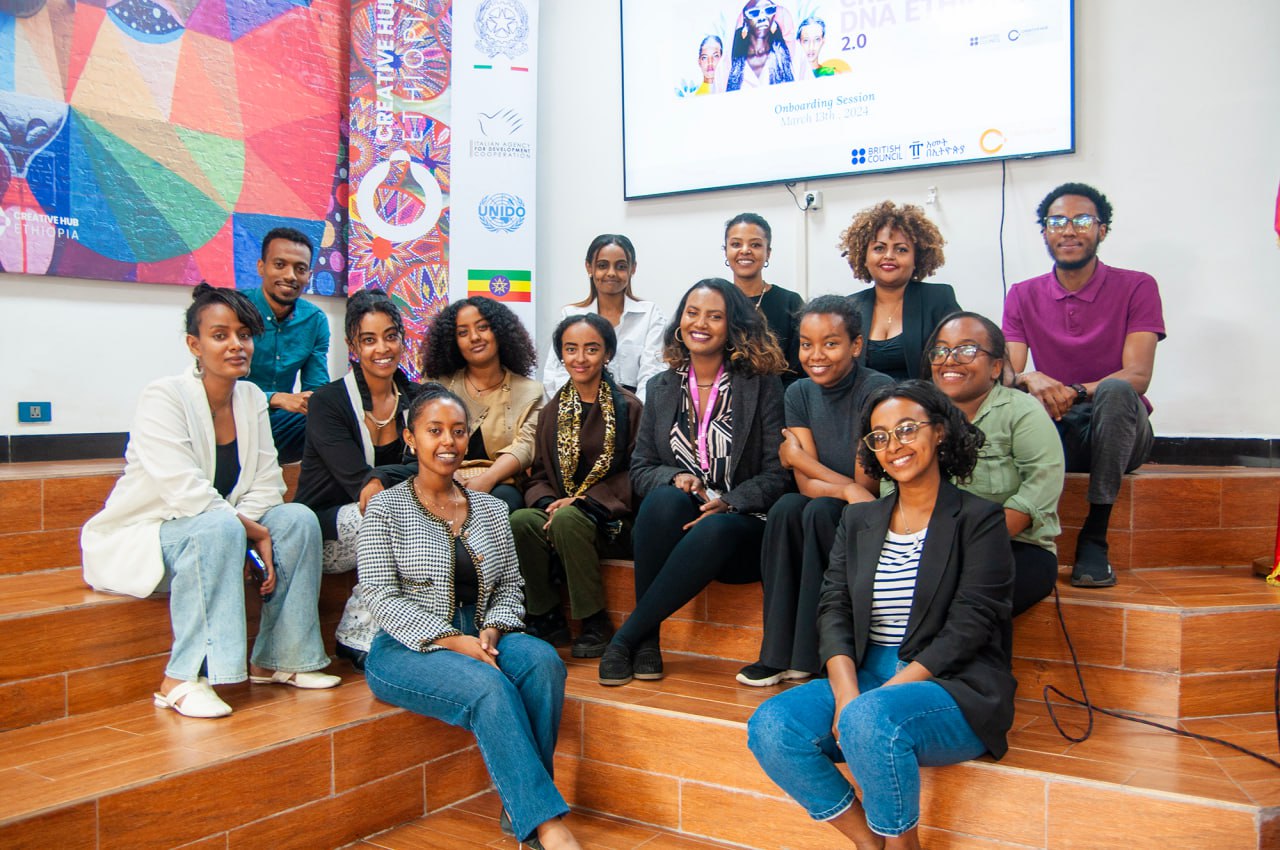
These are rising stars will receive mentorship, business training, and industry connections to propel them forward [PHOTO CHE]
Creative DNA Ethiopia is back for a second round, with a stellar new cohort of designers ready to take center stage. This year, the British Council's initiative is empowering early-stage designers to craft timeless, everyday wear. The selected designers include:
1. REBORN LTD
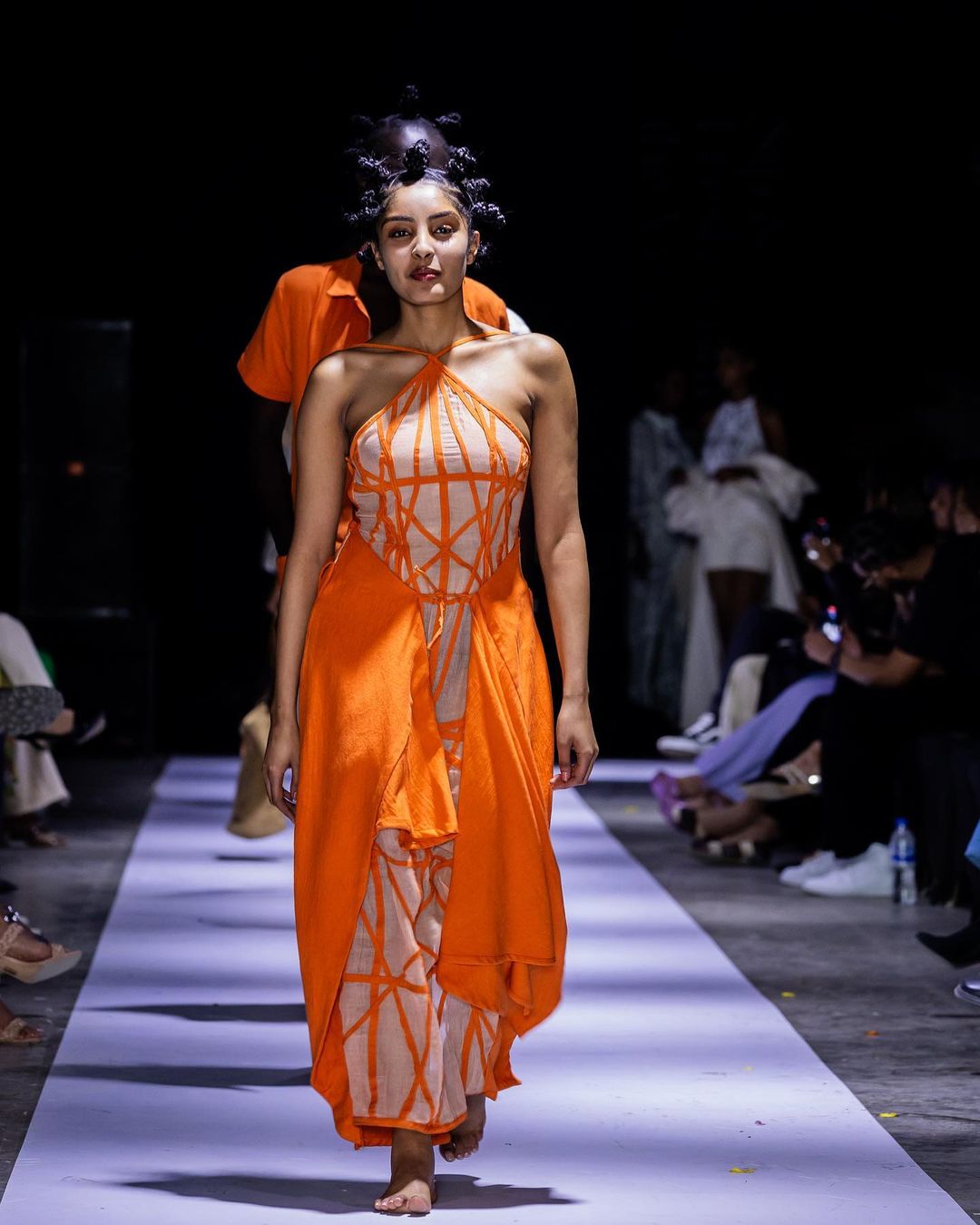
Made by Reborn LTD [PHOTO REBORN IG]
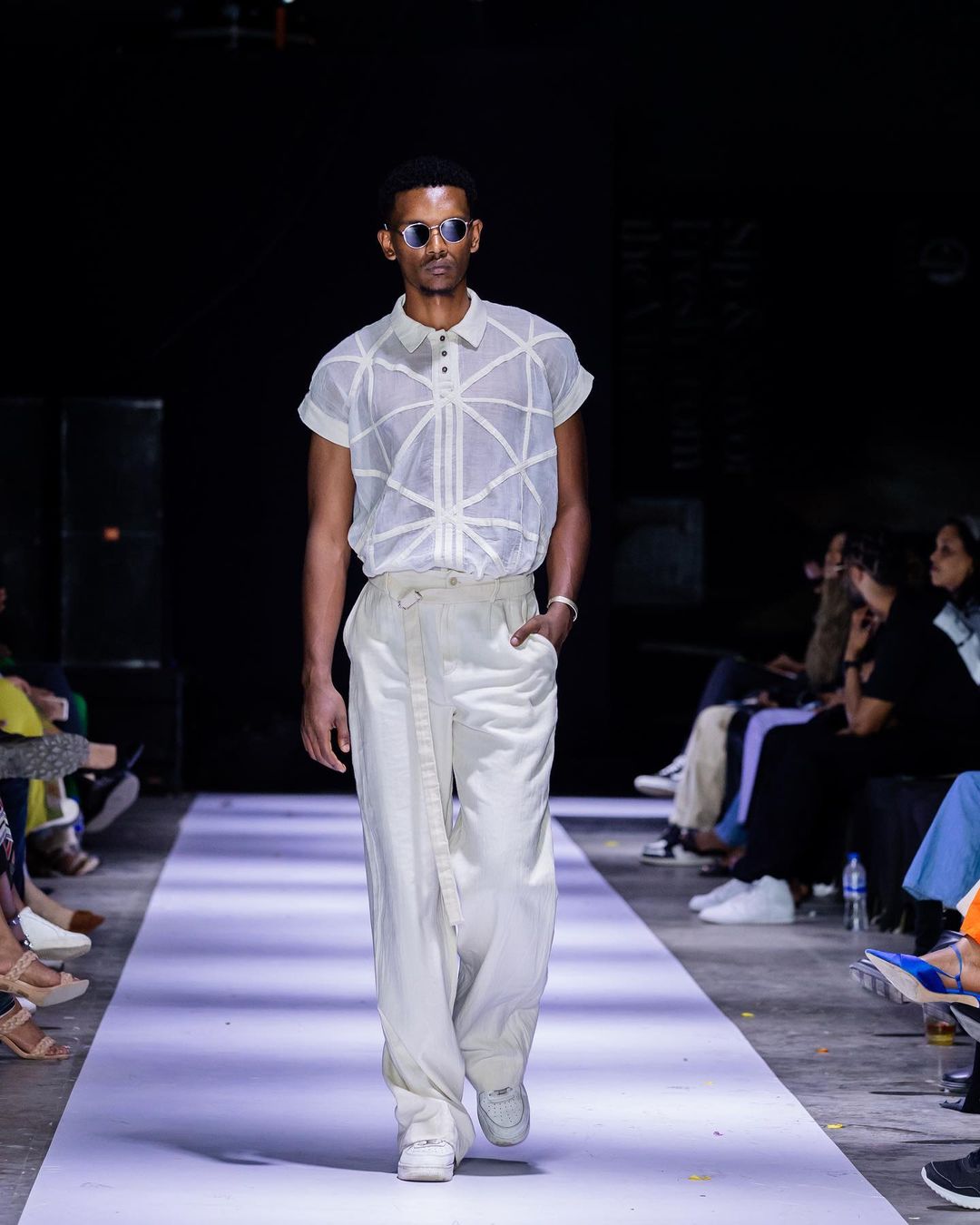
Made by Reborn LTD [PHOTO REBORN IG]
Instagram AC of the Reborn LTD
2. DolMel
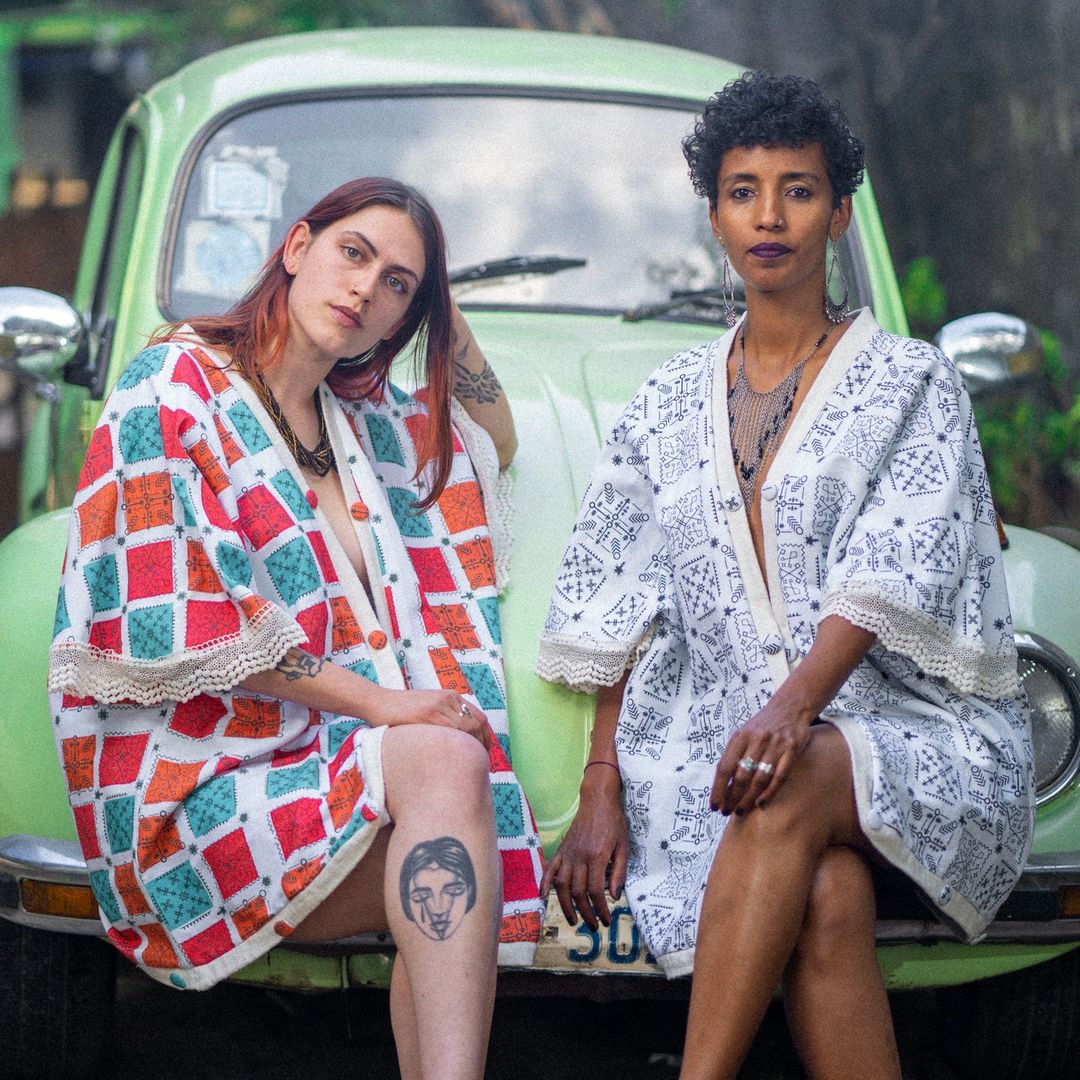
Made by DolMel [PHOTO DOLMEL]
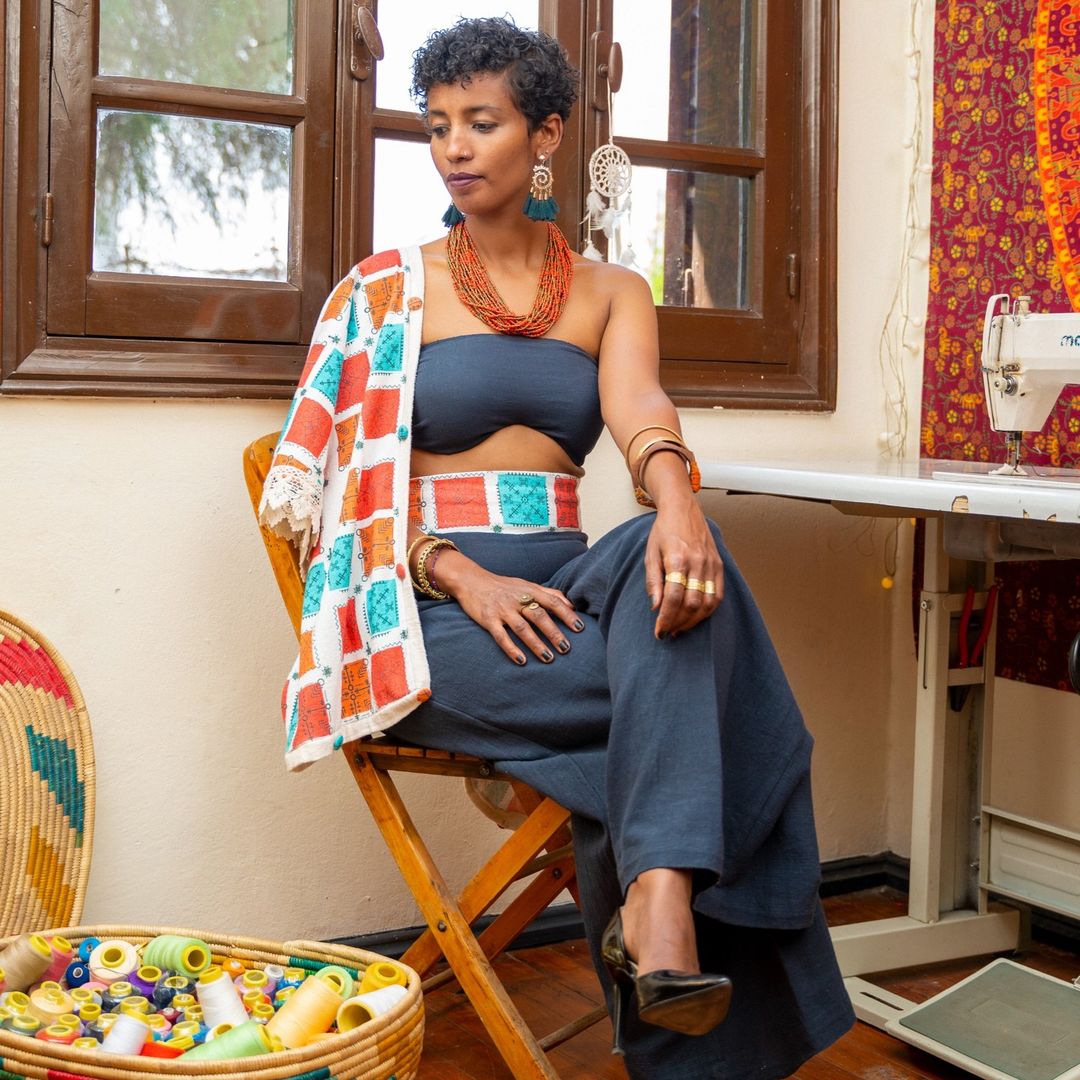
Made by DolMel [PHOTO DOLMEL]
ALSO READ: ETHIOPIA FASHION INDUSTRY IN PROMOTING LOCAL FASHION DESIGNERS THROUGH THE CREATIVE DNA PROGRAM 2024
3. DAGMAWIT TESFAYE YIGREM
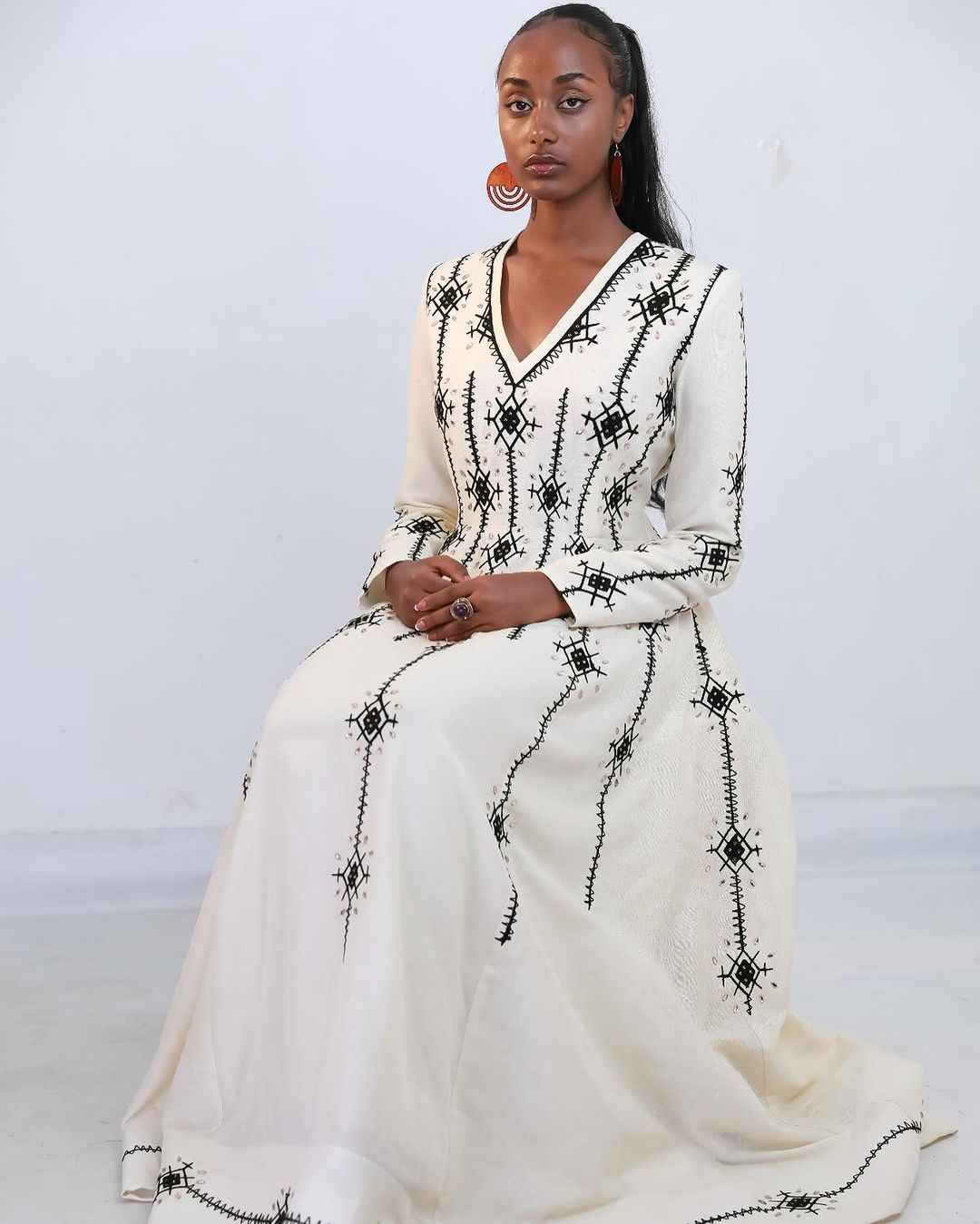
Made by Dagmawit Tesfaye Yigrem [PHOTO DTY]
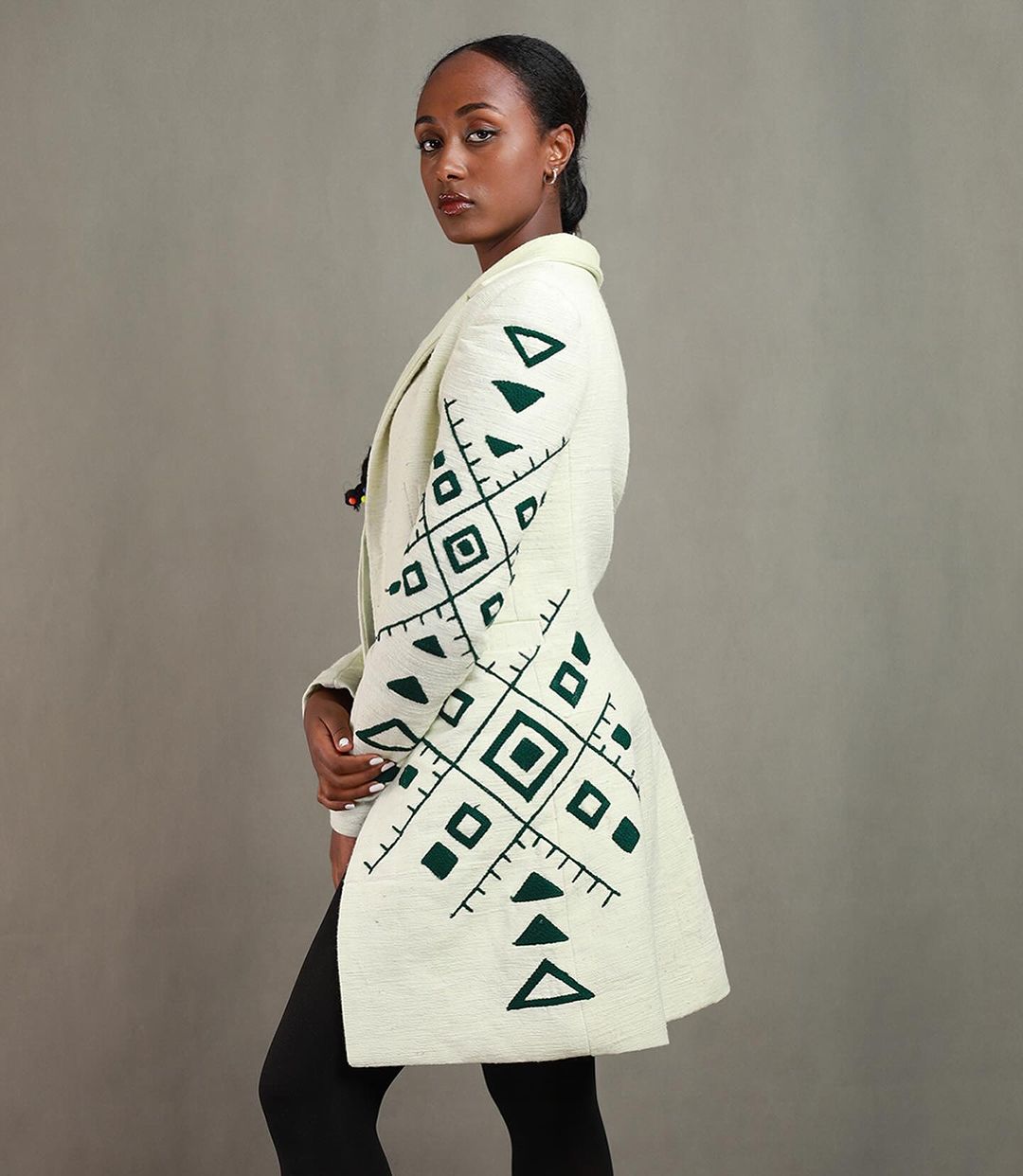
Made by Dagmawit Tesfaye Yigrem [PHOTO DTY]
Instagram AC of Dagmawit Tesfaye Yigrem
4. SERALESTIN
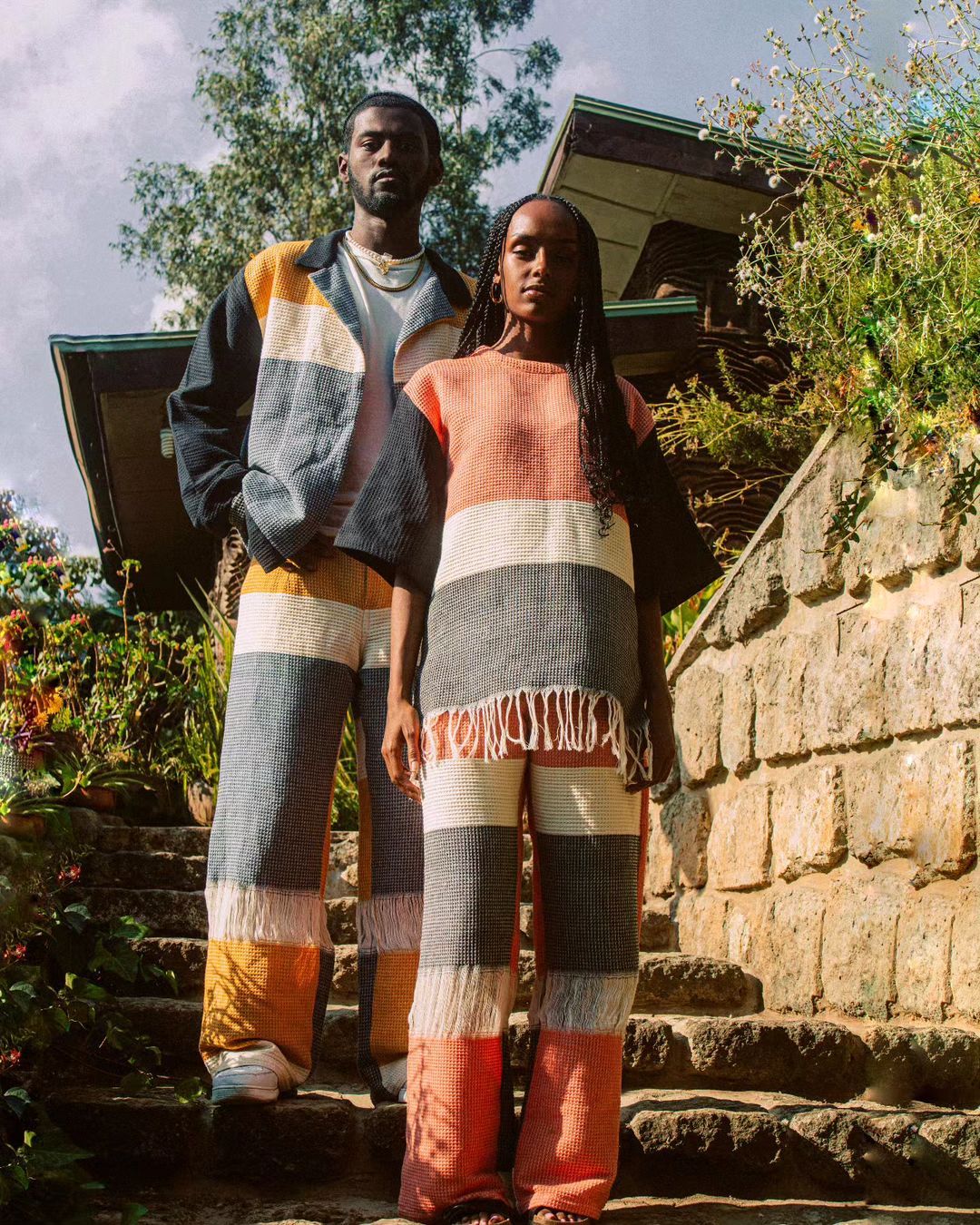
Made by Seralesti [PHOTO SERALESTI]
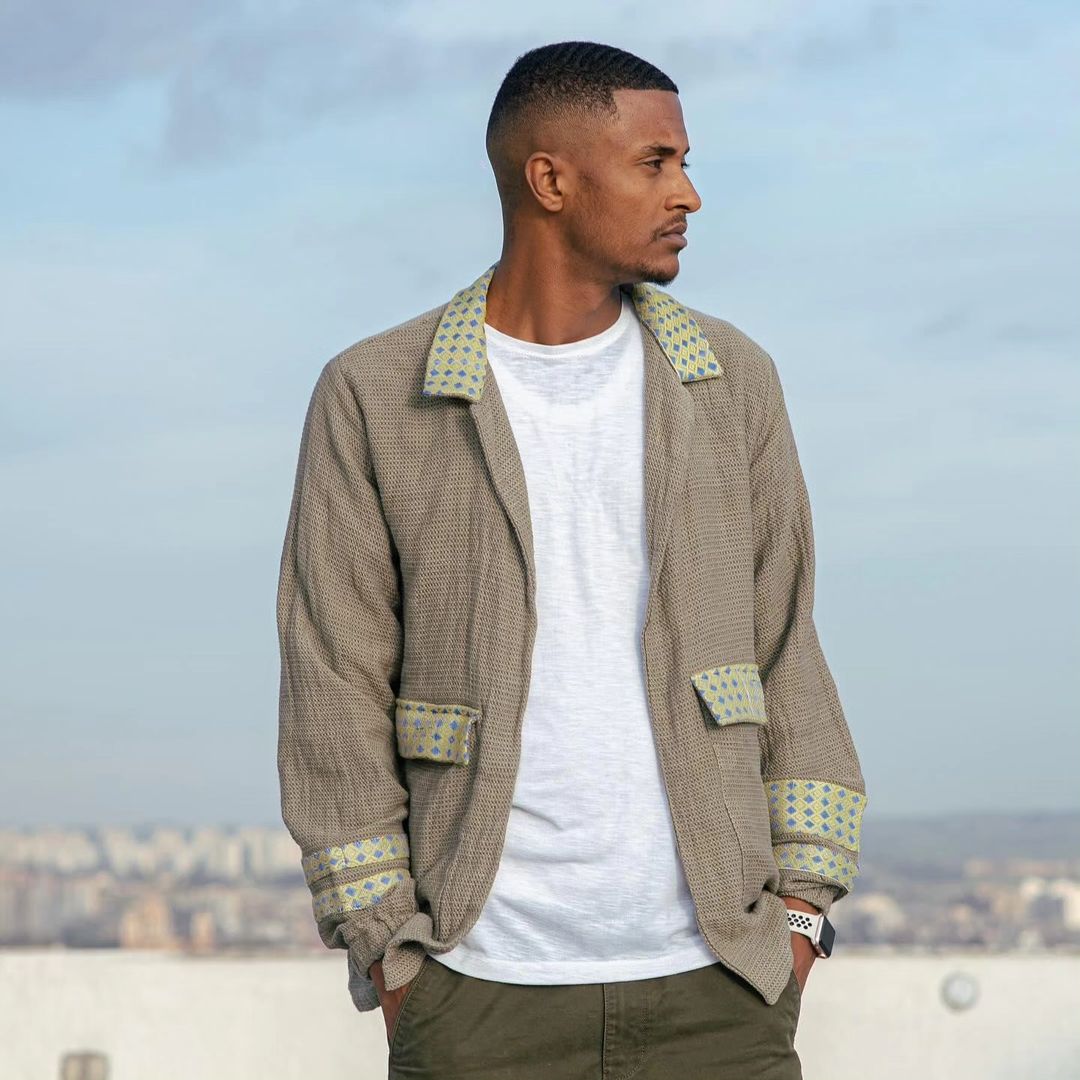
Made by Seralesti [PHOTO SERALESTI]
5. SHADEZ WEAR
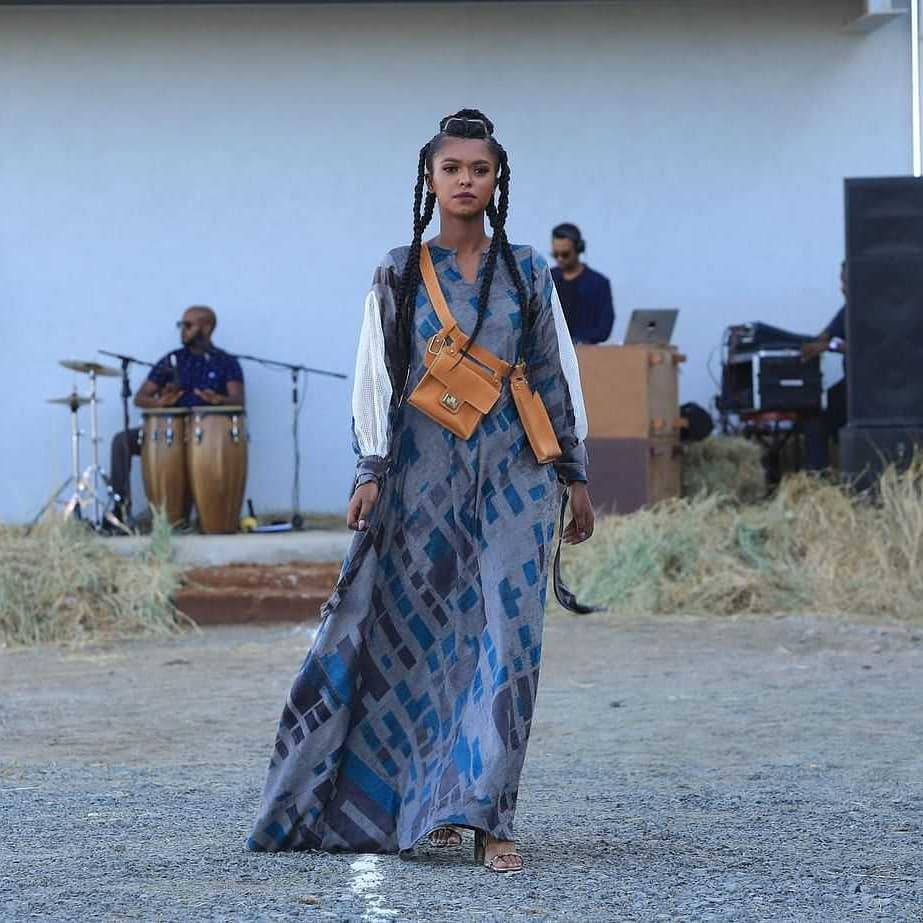
Made by Shadez Wear [PHOTO SW]
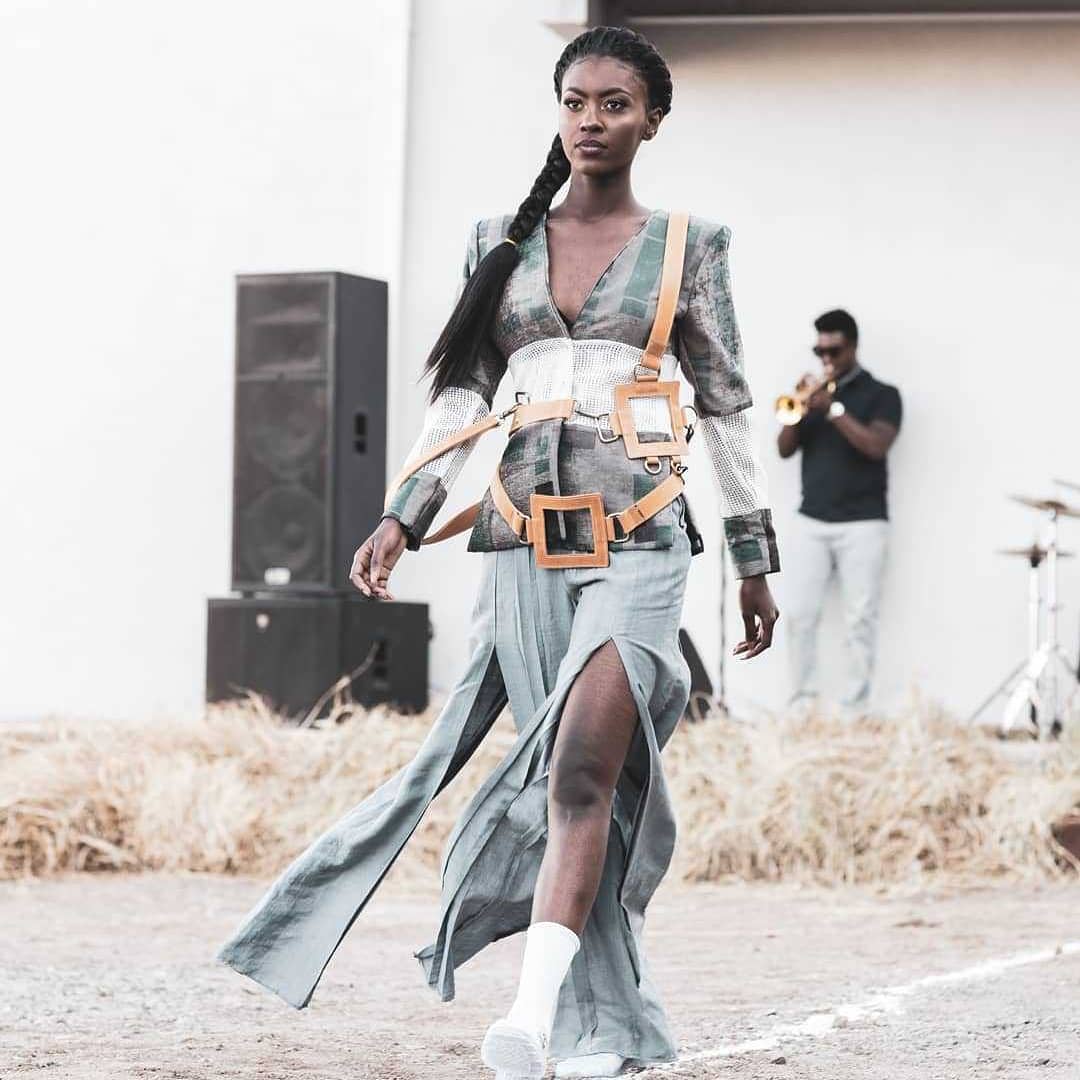
Made by Shadez Wear [PHOTO SW]
Instagram AC of the Shadez Wear
6. MESMER CLOTHING
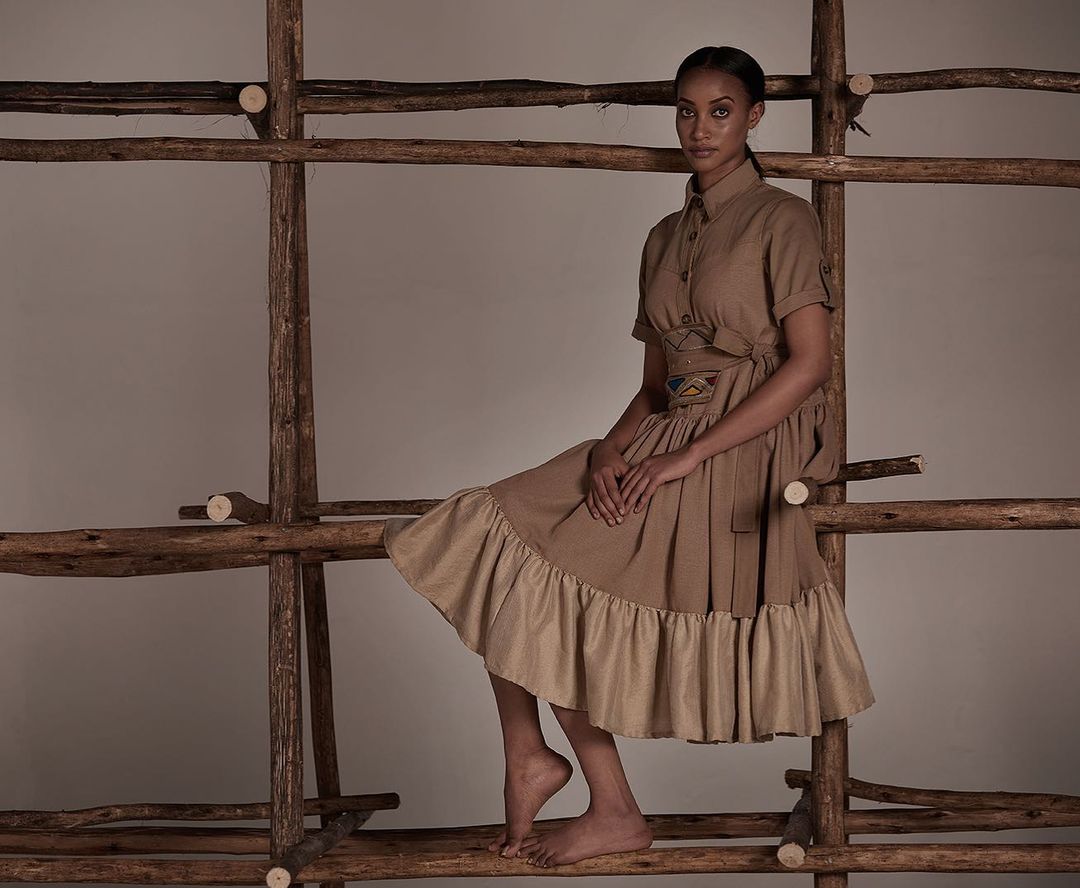
Made by Mesmer Clothing [PHOTO MESMER]
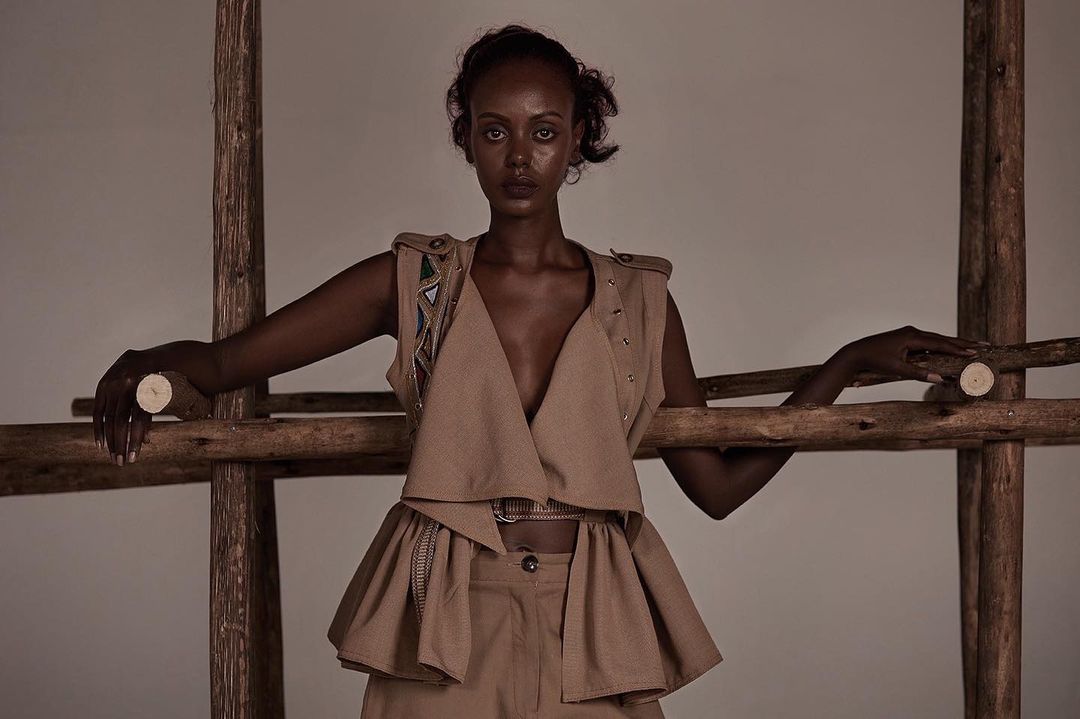
Made by Mesmer Clothing [PHOTO MESMER]
Instagram AC of the Mesmer Clothing
7. MEAZA CLOTHING
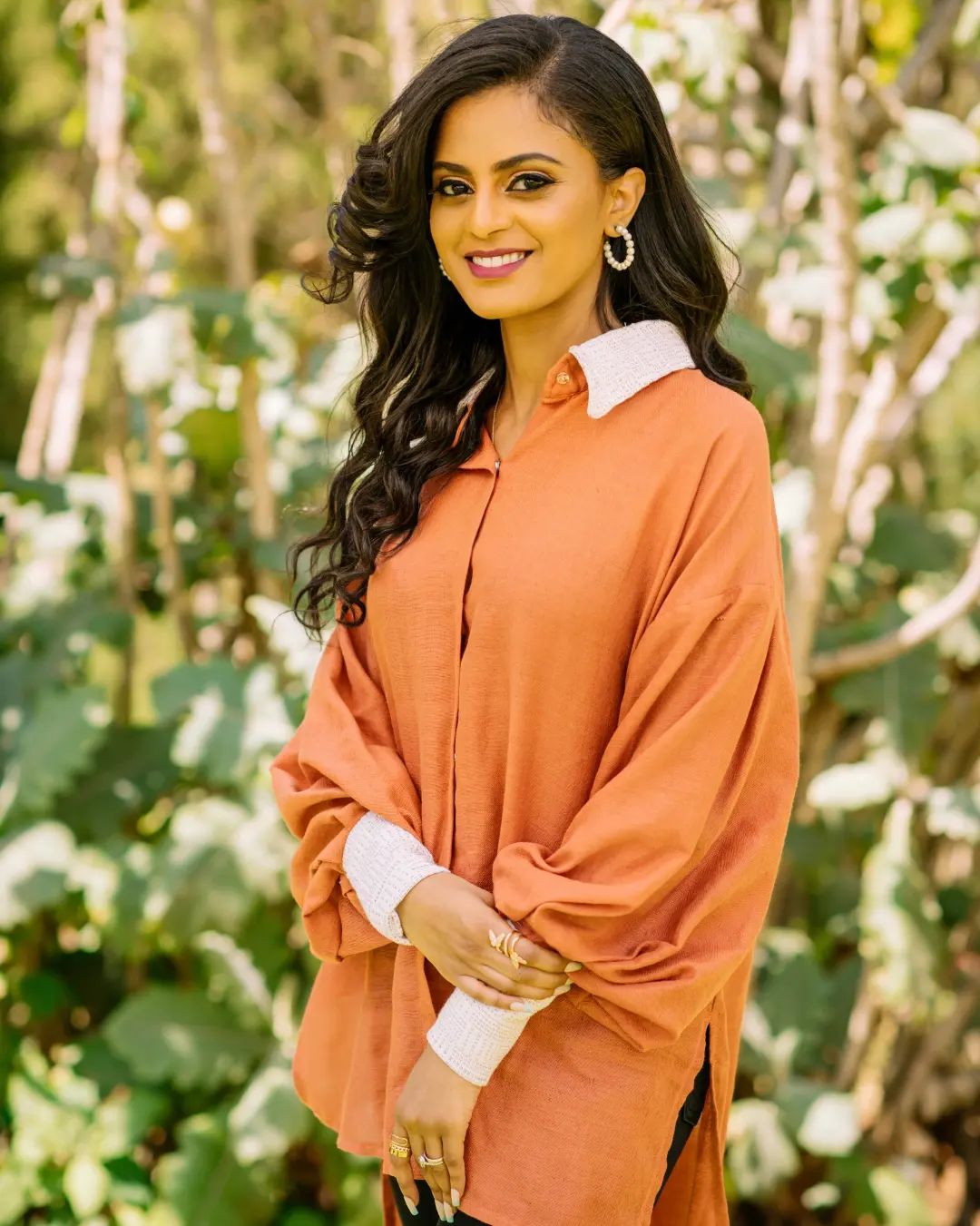
Made by Meaza Clothing [PHOTO MEAZA]
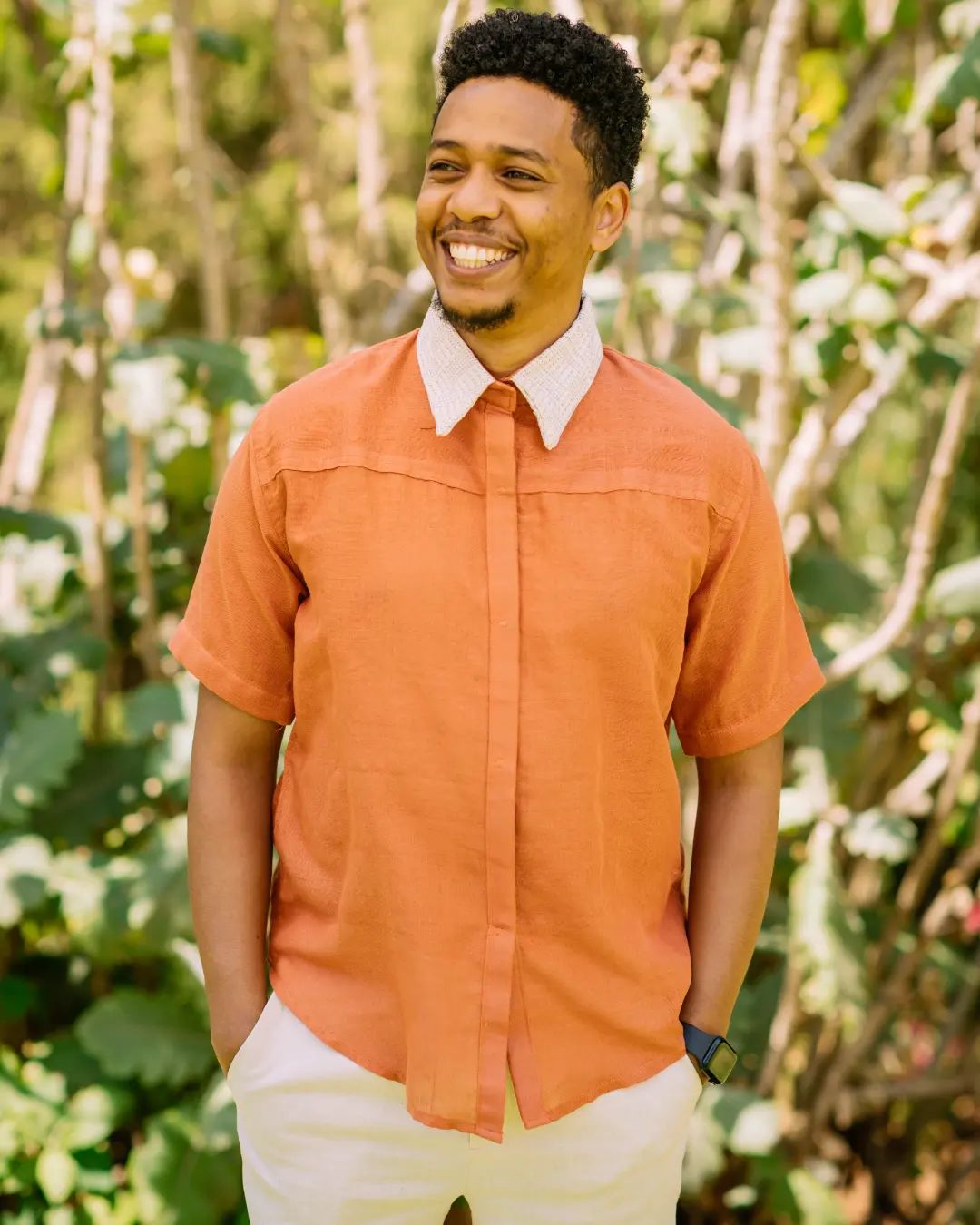
Made by Meaza Clothing [PHOTO MEAZA]
Instagram AC of the Meaza Clothing
8. NIKISAT
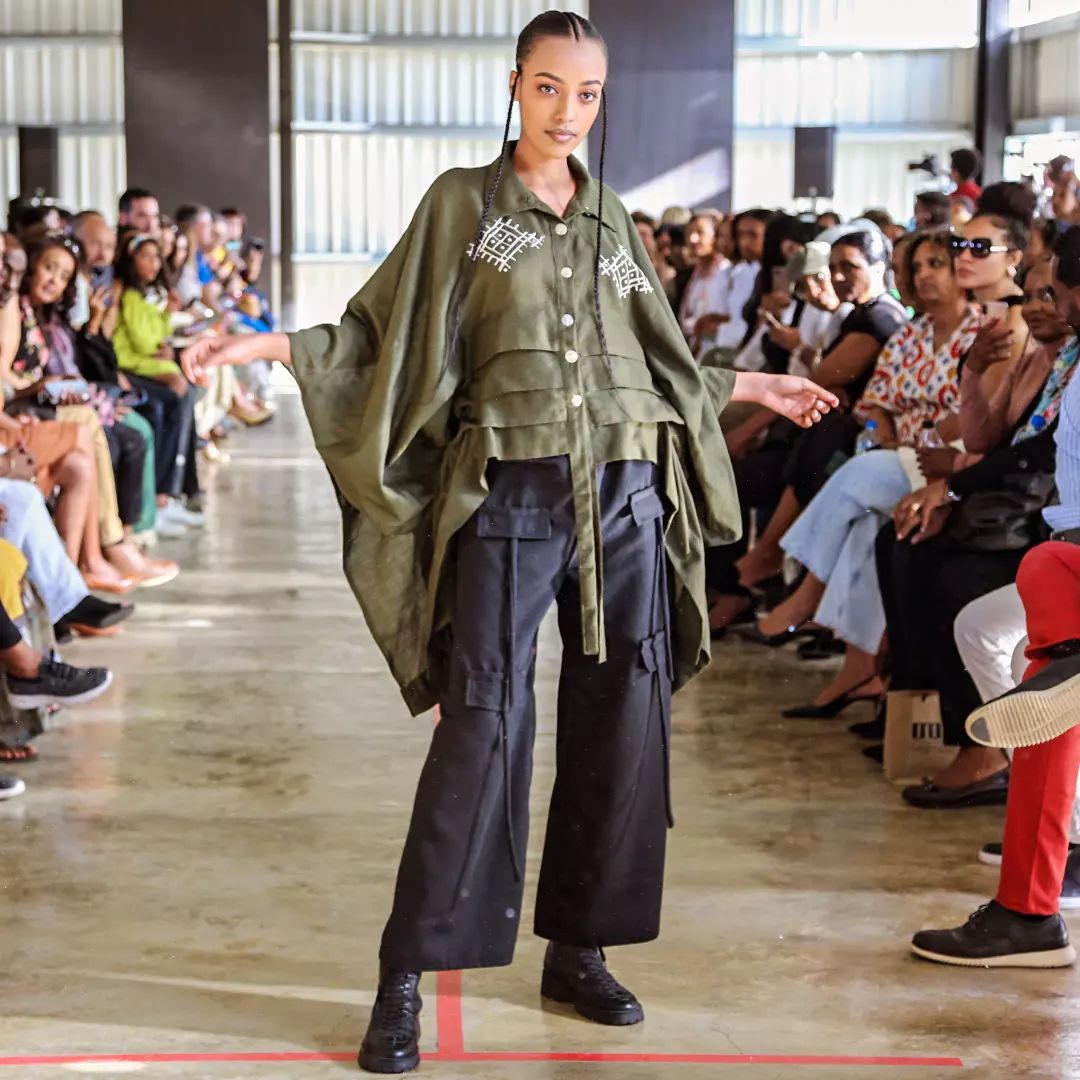
Made by Nikisat [PHOTO NIKISAT]

Made by Nikisat [PHOTO NIKISAT]
9. DEMI
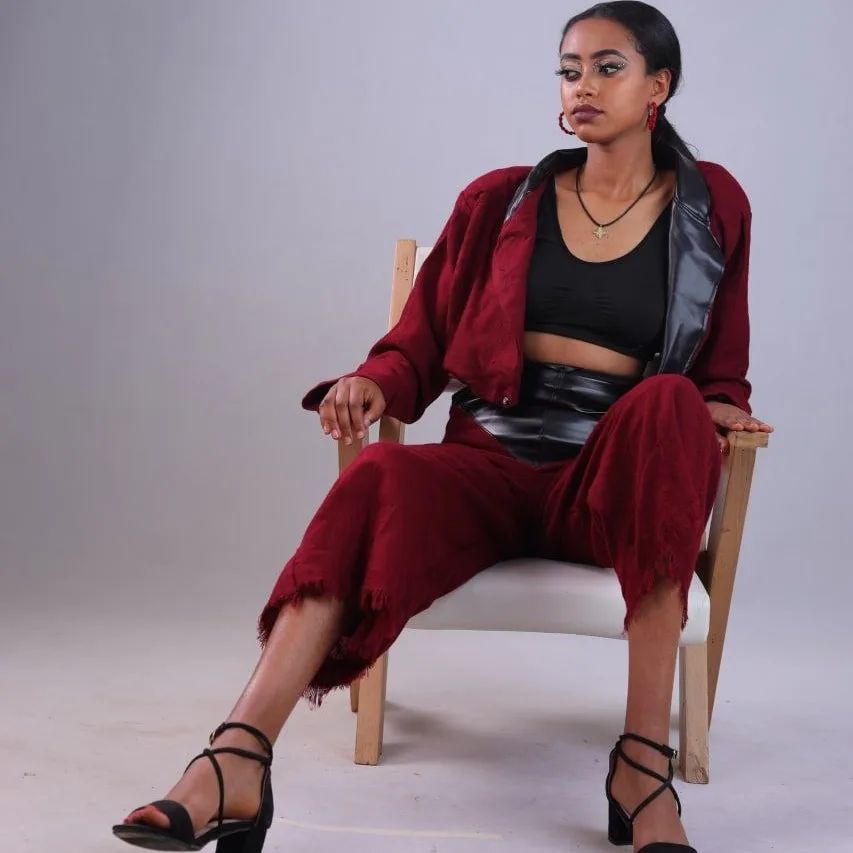
Made by Demi [PHOTO DEMI]
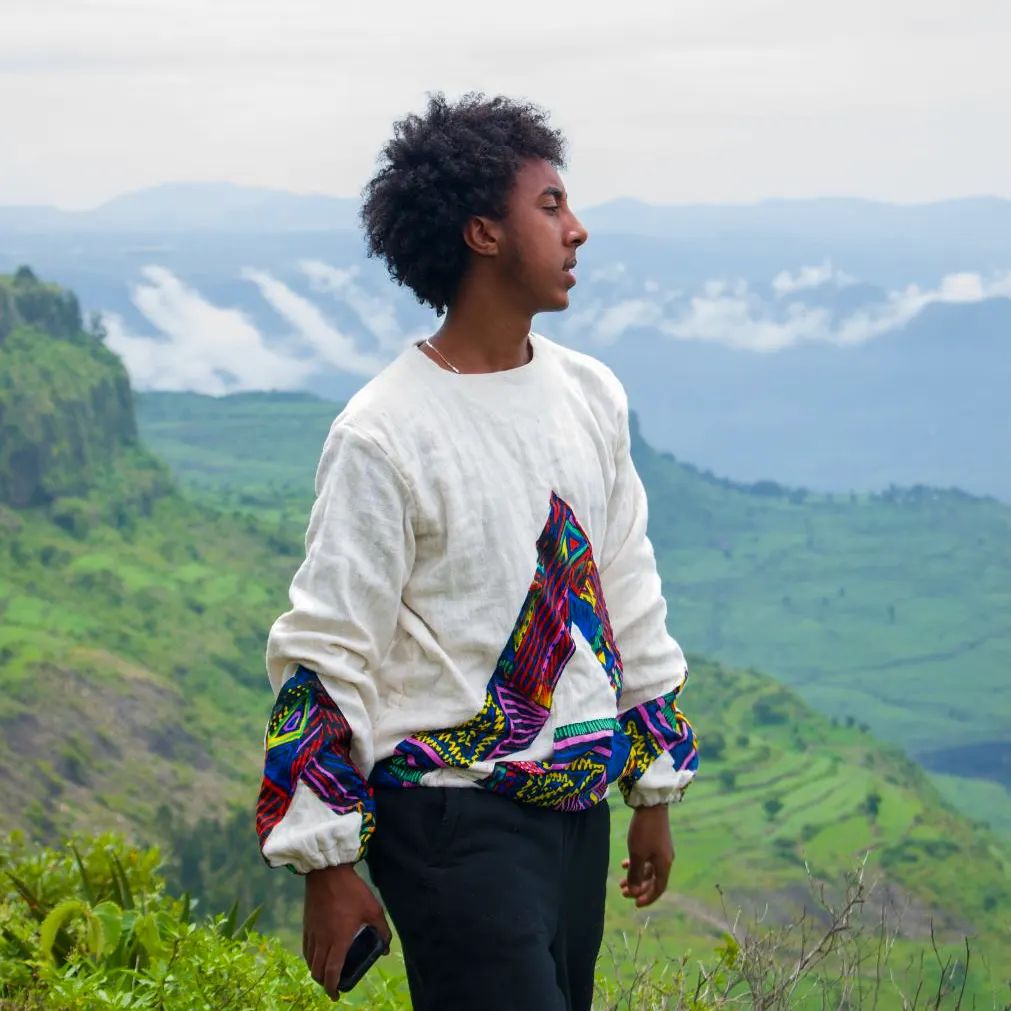
Made by Demi [PHOTO DEMI]
10. NEDF DESIGN
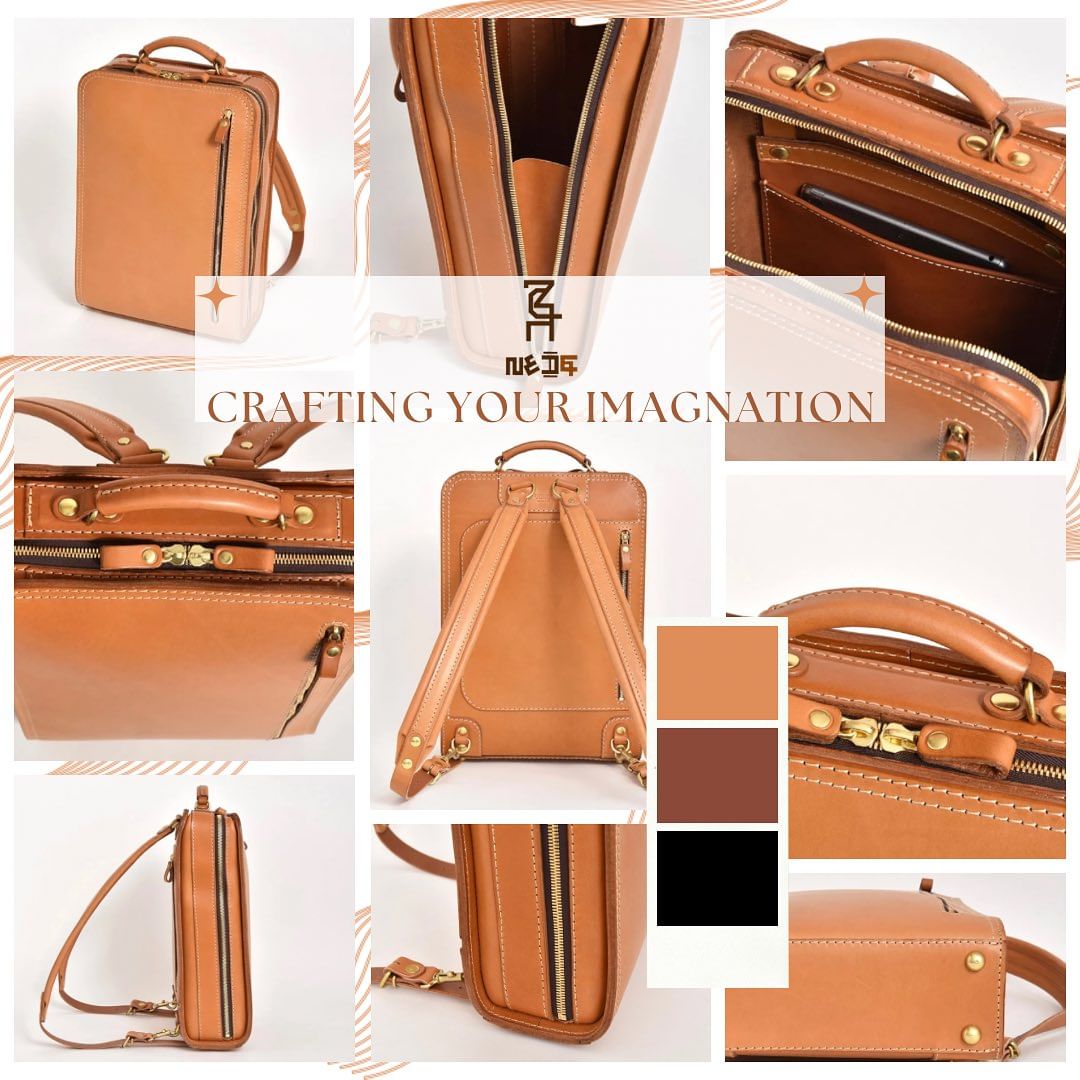
Made by DEDF Design [PHOTO DEDF]
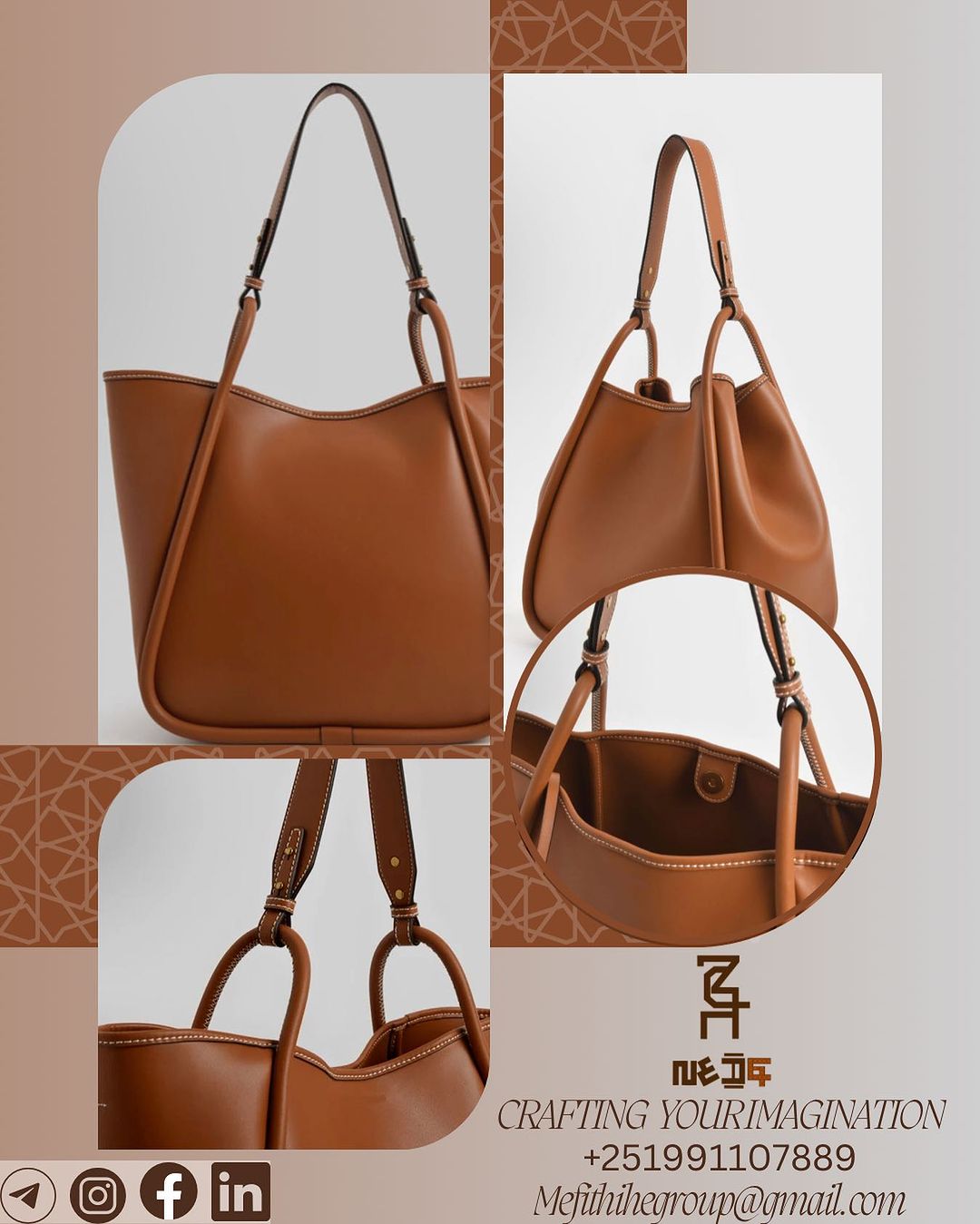
Made by NEDF Design [PHOTO DEDF]
This story is part of a collaboration between Ensia and Egab exploring environmental efforts by communities facing potentially more urgent concerns such as war and poverty. Egab is a media startup that helps young local journalists from across the Middle East and Africa get published in regional and international media outlets, with a focus on solutions journalism. You can read the other stories in the series here and here.
To the sweeping majority of roughly 4.7 million people living in Monofeya, one of Egypt’s poorest provinces, “sustainable fashion” is a term that likely means very little. But it’s here, where 26% of the population lives below the poverty line, that a single business upcycled around 940 tons (850 metric tons) of fabric in five years.
“We, as entrepreneurs, were interested in creative manufacturing and environmental solutions after noticing the amount of textile waste,” says Amgad Moustafa, co-founder of Green Fashion, the brand that has brought together some 200 women to breathe new life into piles of fabrics and textiles that would otherwise get incinerated or dumped in landfills. The business, which began in 2018, uses surplus fabrics and textile waste from 50 textile factories for its raw materials.
Each year, Egypt’s sprawling garment industry — which accounts for 4% of the country’s GDP — produces around 234,000 tons (212,000 metric tons) of textile waste, according to a UN study.
And the environmental impact of the global fashion industry is massive.
It takes 10,000 liters (2,600 gallons) of water to grow the cotton for a single pair of jeans, enough to hydrate one person for 10 years, according to the UN. And according to recent reports by McKinsey, the industry produces 3–10% of total greenhouse gasses, its solvents and dyes make up a quarter of industrial water pollution, and in recent years it has accounted for 20–35% of microplastic flows into the ocean. The UN has called fast fashion “an environmental emergency.”
Things changed with the advent of mass production and fast fashion. But today, as the economy struggles, repurposing and reusing again are on the rise.
In recent years, an ailing economy in Egypt, the Arab world’s most populous country, drove consumers to search for cheaper alternatives to internationally branded ready-made clothes. This spurred an appetite for recycled and upcycled garments, which in turn is reducing fabric waste, creating job opportunities, and unleashing creativity as individuals and entities find ways to repurpose fabrics and used clothing.
Silver Lining
According to sustainable fashion advocates, reusing or repurposing clothes is not new to Egyptians. “Sustainability as an idea existed in all Egyptian social levels,” says Esraa Aburehab, a sustainability and environmental development consultant. “I mean, who didn’t wear their older relatives’ clothes, while other specific pieces were circulated among family members?”
"Things changed with the advent of mass production and fast fashion. But today, as the economy struggles, repurposing and reusing again are on the rise"
Waves of currency depreciations since 2016, compounded by economic disruptions due to the war in Ukraine, have led Egypt’s inflation rates to skyrocket. In June 2023 rates hit a record high of 36.8%. In April of that same year, the Egyptian pound was ranked among the worst performing currencies in the world.
The impact of this economic downturn has rippled across all classes. Millions have been pushed into poverty, and clothing is among many goods and services that has been impacted.
“We used to travel to Cairo several times a year just to visit the malls and buy new clothes,” says Rahma Youssef, a teacher from the coastal city of Suez, 140 kilometers (87 miles) northeast of the capital. “Then, the prices soared. What used to get us two or three pieces now barely covers one item,” she adds, explaining that she and her sister now rely on thrifting, buying custom-made clothing (which is often cheaper than name brand items), and repairing and restyling old clothes.
According to Basma Tawakol, founder of the online thrifting store Dayra, the need for cheaper clothing opened the door for sustainable fashion. “With the devaluations, people searched for alternatives to the deliberate price hikes,” Tawakol says. “I thought my customers would be from the middle and lower classes, but I also got some returning upper-class customers.”
Since its launch in 2020, Dayra has been releasing an upcycled collection of about 12 pieces every few months, by mixing and matching the different fabrics and old garments.
Watch the full interview on Green fashion
Meanwhile, Green Fashion mass produces upcycled garments, relying on defective rolls of fabrics that cost no more than 25% of the intact ones, as well as unwanted second-hand clothes to produce their pieces. “We once produced a thousand pieces from fabric waste and defective bolts,” says Moustafa. “We usually produce one new piece out of every four preowned clothes.”
Acquiring Skills and Knowledge
Green Fashion not only upcycles fabrics, it also builds skills. The business trains new tailors for six months — two months on sewing and another two months on recycling. After completing training, tailors work under supervision before being allowed to work on their own, Moustafa explains.
Green Fashion hires only women. As a result, it “helps the local community, achieving a social impact alongside its environmental goals, by empowering women who otherwise had no or little income, training them, and offering them a decent job,” Moustafa says.
“We’ll spread the concept of sustainability, one person at a time.” —Amgad Moustafa
Sohair Asfour, a mother of four, was a full-time homemaker until 2018, when her husband lost his job, leaving the family in need of income.
“At Green Fashion, I learned embroidery and sewing, and currently I’m helping our trainers teach the newcomers,” says Asfour. “My work helped me lead a better life and changed my mindset toward old items.”
Youssre Abdelkader, co-founder of From Waste to Good Taste, a sustainable design initiative, says their workshops, which began in 2021 to teach repair and upcycling methods, such as patchwork, draw students of different ages. “At first, most of our workshop attendees were students and fresh graduates. By time, the age group started to expand, and people in their 40s and 50s are joining in now,” she says.
Green Fashion recently began training in two other impoverished Egyptian governorates, Gharbia and Aswan. “We aim to hire another 300 women in these new production units, and to upcycle 1,000 metric tons (1,100 tons) of waste by the end of 2024,” Moustafa says. Additionally, Green Fashion plans to launch a fabric donation vehicle in Egypt’s rural areas and universities.
“We’ll spread the concept of sustainability, one person at a time,” Moustafa says.
Story by Toka Omar Qassem
Ethiopia Fashion Industry in Promoting Local Fashion Designers Through the Creative DNA Program 2024
Ethiopia Fashion Industry in Promoting Local Fashion Designers Through the Creative DNA Program 2024
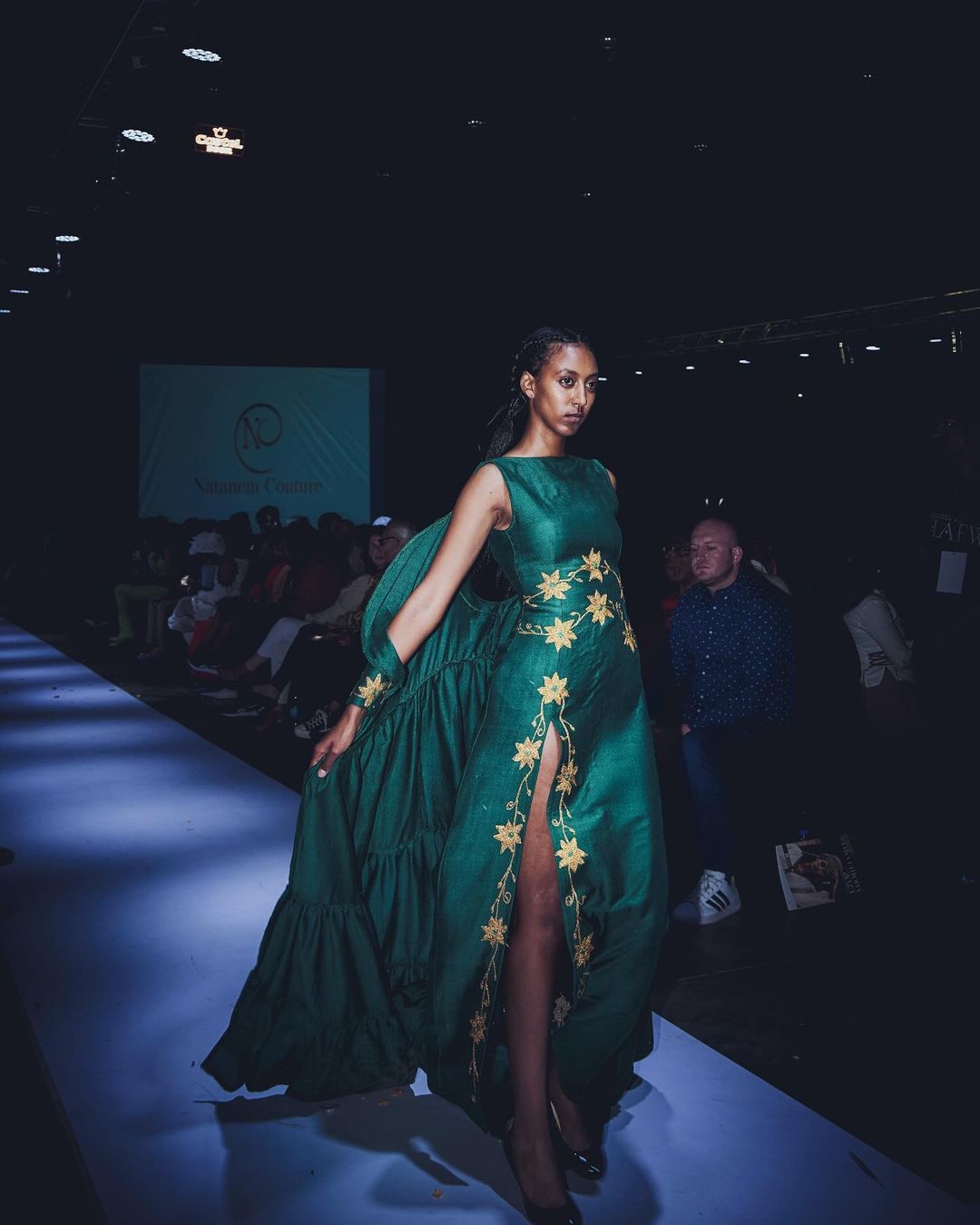 Made in Ethiopia by Natanem Couture Showcasing at Hub of Africa Fashion Week 2024 (HAFW) [PHOTO NC]
Made in Ethiopia by Natanem Couture Showcasing at Hub of Africa Fashion Week 2024 (HAFW) [PHOTO NC]
The fashion and textile industry in Ethiopia is growing faster and it is among top the leading fashion hubs on the continent. In 2024, the revenue in the Apparel market in Ethiopia amounts to US$2.86bn and it is projected that the market will experience an annual growth rate of 4.19% (CAGR 2024-2028). The largest segment in this market is Women's Apparel, which is estimated to have a market volume of US$1.19bn in 2024. Ethiopia's apparel market is rapidly growing, with an increasing number of international brands investing in the country's textile industry. It is estimated that 99% of sales in the Apparel market in Ethiopia will be generated by Non-Luxury by 2024
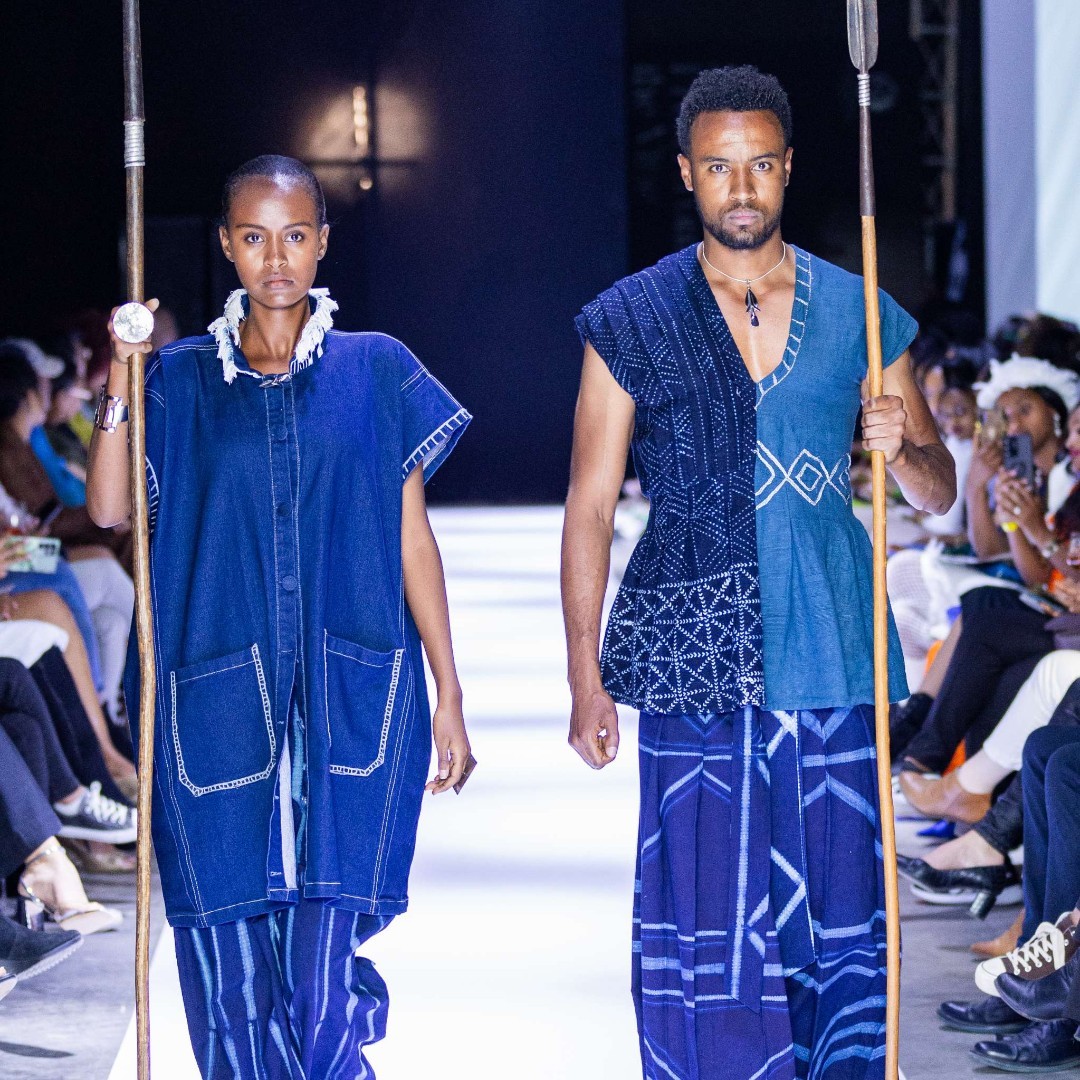
Made in Ethiopia by AFROPIAN showcasing at Hub of Africa Fashion Week 2024 (HAFW) [PHOTO NC]
The secret behind this growth in the fashion sector is the government's initiatives to support heavily local fashion designers in partnership with other partners as well as investors in the textile industry and farmers. Among the top partners are Creative Hub Ethiopia and the British Council through its program Creative DNA. The Creative DNA Ethiopia is part of the SSA Arts Creative Economy Programme, which supports the creation of new art and fosters partnerships between the creative sectors of the UK and East Africa. The Programme is committed to promoting innovation, creativity, equality, diversity, and inclusion.
The Creative Hub Ethiopia supports creative innovators, designers, and SMEs in various fields by deepening their understanding of global design and industrial concepts, providing state-of-the-art working tools and resources, and enhancing the link between young innovators, and industrial and governmental entities.
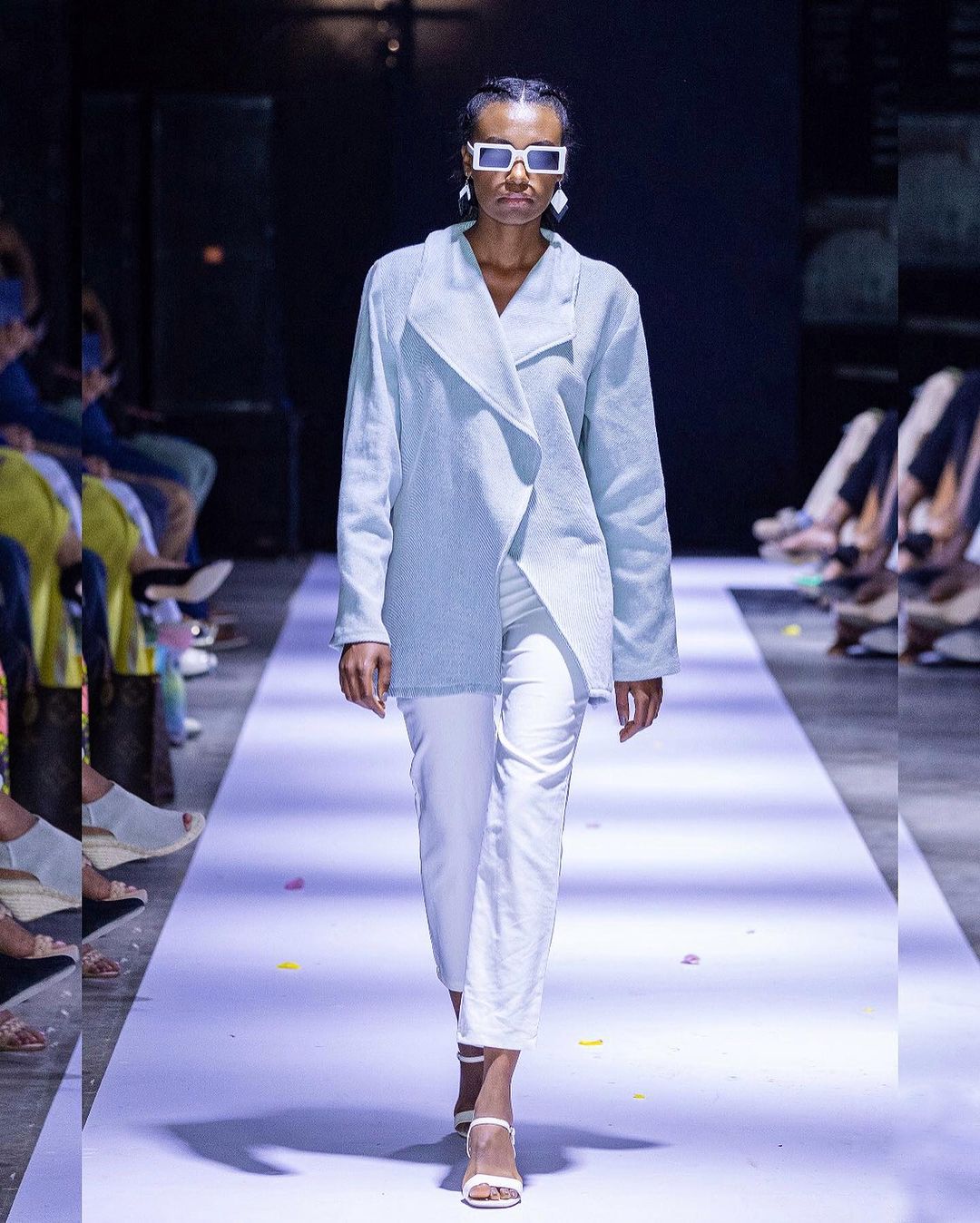
Made in Ethiopia Tibebu Collection showcasing at Hub of Africa Fashion Week 2024 (HAFW) [PHOTO NC]
Ten Ethiopian-based, early-stage fashion and accessory enterprises, have been selected to be part of the Creative DNA Ethiopia Programme. The program provides them to acquire a deeper insight into the UK fashion industry, establish valuable connections, and introduce both themselves and their creative endeavours to a global audience. The reative DNA Ethiopia, an innovative fashion incubation programme dedicated to nurturing early-stage fashion designers in Ethiopia, is thrilled to announce the launch of its second cohort. Building on the success of its inaugural program, Creative DNA: Ethiopia continues to foster creativity, entrepreneurship, and sustainable growth within the Ethiopian fashion industry.
ALSO READ: THE CREATIVE DNA PROGRAMME AT NAIROBI DESIGN WEEK 2024: A SPECTACULAR 20 LOCAL FASHION DESIGNERS
This initiative of the British Council aims to provide invaluable support and resources to emerging fashion talents, empowering them to realize their creative visions and establish thriving fashion businesses. Through a comprehensive six-week incubation program, participants will receive tailored mentorship, business training, networking opportunities, and access to market insights, equipping them with the necessary tools to succeed in the competitive fashion landscape.
The selection process for the second cohort of Creative DNA: Ethiopia was highly competitive, with numerous talented designers vying for a coveted spot in the program. After a rigorous evaluation process, The CDNA team is proud to announce the acceptance of ten promising fashion entrepreneurs into the program.
“Through Creative DNA: Ethiopia, the British Council aims at not just incubating designers; we’re incubating a vision for a vibrant and diverse fashion landscape. As we launch the second cohort, we reinforce our dedication to fostering innovation and entrepreneurship in Ethiopian fashion. Through collaborative efforts, we aim to propel emerging designers towards global recognition, contributing to the cultural and economic fabric of Ethiopia.” Bezawit Damtew, British Council Arts Programme Director.
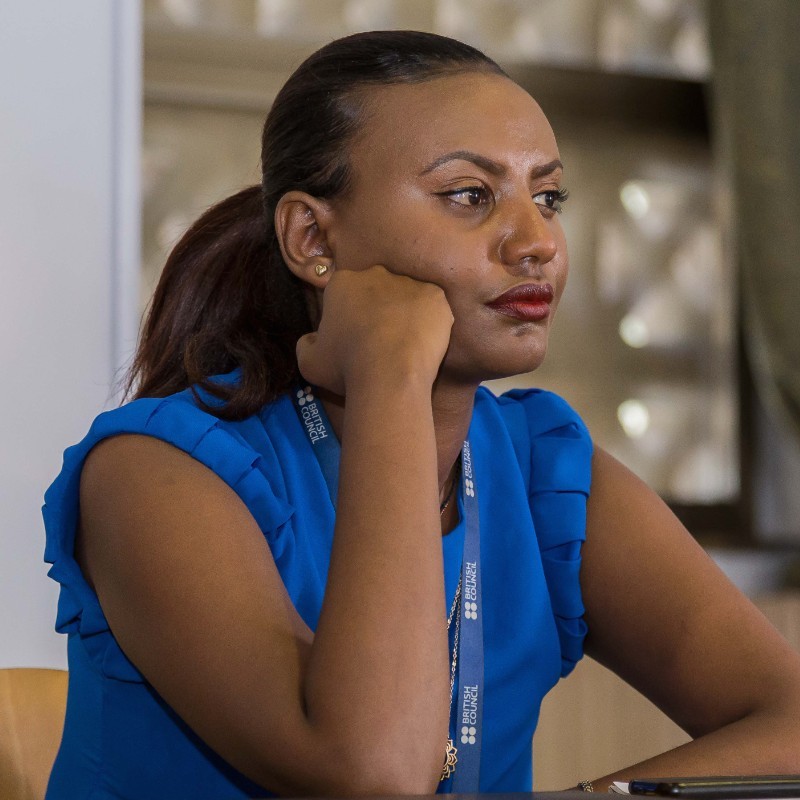 Bezawit Damtew, British Council Arts Programme Director.
Bezawit Damtew, British Council Arts Programme Director.
“Creative DNA: Ethiopia’s evolution underscores our commitment to nurturing the diverse tapestry of Ethiopian fashion. This year, we’re shifting gears to prioritize early-stage designers crafting timeless, day-to-day wear. Our focus on mass production-oriented designers highlights the vibrant spectrum of design aesthetics while paving the way for a new era of accessible, everyday fashion innovation.” Solome Daniel, Creative DNA: Ethiopia Project Manager.
The second cohort of Creative DNA: Ethiopia is poised to make a significant impact on the Ethiopian fashion scene, driving innovation, sustainability, and economic growth within the industry. CDNA is committed to supporting the success and development of these talented designers, further solidifying Ethiopia’s position as a hub of creativity and talent in the global fashion arena.
Designers Joining Creative DNA Ethiopia 2.0 Program
 Selected fashion designers to participate in the Creative DNA Ethiopia program 2024 [PHOTO BC]
Selected fashion designers to participate in the Creative DNA Ethiopia program 2024 [PHOTO BC]
Reborn: is a fashion brand that breathes hope and exudes strength. We poured hours of meticulous love and care into every stitch, ensuring that each garment carried an intangible magic that could uplift the spirit and inspire greatness. We embark on a journey to celebrate the rich cultural tapestry of Ethiopia and Africa, weaving these timeless stories into our masterpieces.
DolMel: is an Ethiopian fashion brand bringing a millennia-old tradition of hand-weaving into the 21st century. One of the focus areas of our startup business is the cultural heritage aspect it takes from the historic ‘Shemena’ hand-weaving industry. DolMel developed a solution to dramatically impact the textile industry in Ethiopia by using high-tech digital reactive printing on our hand-woven fabric to produce rolls of various kinds of seamless patterns to create innovative products that are the first of their kind in the country.
DAGMAWIT: Our brand is a celebration of self-love and individuality. With a vision to inspire confidence and empowerment, our designs weave together elements of culture, uniqueness, and the transformative power of self-appreciation. Each garment serves as a reminder of the wearer’s inherent beauty and worth, fostering a deep emotional connection with every piece. Committed to inclusivity and authenticity, we aim to leave a lasting impact on the fashion industry by redefining beauty standards and spreading the message of self-love worldwide.
SÉRALESTI: Is a casual wear brand that celebrates the weaving techniques of Ethiopia. We dream of seeing Séralesti adorning individuals worldwide, each piece not just an outfit, but a conversation starter, sparking curiosity about Ethiopian artistry and heritage.
Shadez Wear: is an Ethiopian based streetwear and accessories brand that launched three years ago. It caters to both female and male customers, focusing on functional, futuristic(tech wear aesthetic/post modern)designs that incorporate color and pattern therapy, as well as artistic, expressive, and innovative styles. Dedicated to sustainable fashion, quality finishing and innovative product handling. With a commitment to ethical sourcing, innovative design, and cultural exchange. We strive to tell a story with wearable art. Since our launch, we have been working in a team with the launch of ashara and africa mosaique magazine launch for 2021.
MESMER: is working towards the integration of Ethiopian as well as African cultural designs and tribal patterns in fusion with innovative modern fashion. The goal for the future is to set up a process of exhibitions, fashion shows, and entrepreneurial workshops for the rich cultural Diversity in Africa.
MEAZA Clothing: MEAZA is a sustainable fashion and lifestyle brand established in 2019 with a great vision to become an embodiment of made in Africa to the world by intending to bring a contemporary African touch in everyday wear using locally sourced handwoven fabric.
Nikisat: meaning ‘Tattoo’ in Amharic is a casual wear brand based in Addis Ababa Ethiopia established in January 2022. We produce different clothing made from hand woven Ethiopian fabrics made by skilled local artisans. Founded by Eyerusalem Alemayehu who was born and raised in Addis Ababa Ethiopia. started from a childhood dream and a passion for art and fashion.
Demi Design: Demii creates exceptional and innovative designs that celebrate Ethiopian artistry, empower local weavers and artisans, and promote the use of Ethiopian handwoven fabric materials. We are committed to preserving the rich cultural heritage of Ethiopia by incorporating traditional weaving techniques into our designs, and by providing sustainable livelihoods for local communities. Through our work, we aim to showcase the beauty of Ethiopian handwoven fabrics to the world, while supporting the artisans who keep this ancient craft alive.
NEDፍ Design: Our slogan, “Crafting imagination!” encapsulates the core philosophy of NEDፍ design. We believe that everyone has a unique story to tell, and our leather sketches provide a canvas for self-expression. Whether it’s a hand-drawn illustration, a personalized monogram, or an intricate pattern, our customers can bring their ideas to life with our high-quality leather products.
Competition and Creativity: Rwandan Fashion Brands that Have Garnered International Acclaim
In Rwanda, where once only foreign labels were recognized, local fashion giants, predominantly driven by the youth, today dominate the market, a sign of a growing industry by far.
We bring you the top 10 most valuable fashion brands, in no particular order, that have garnered international acclaim on different occasions.
House of Tayo
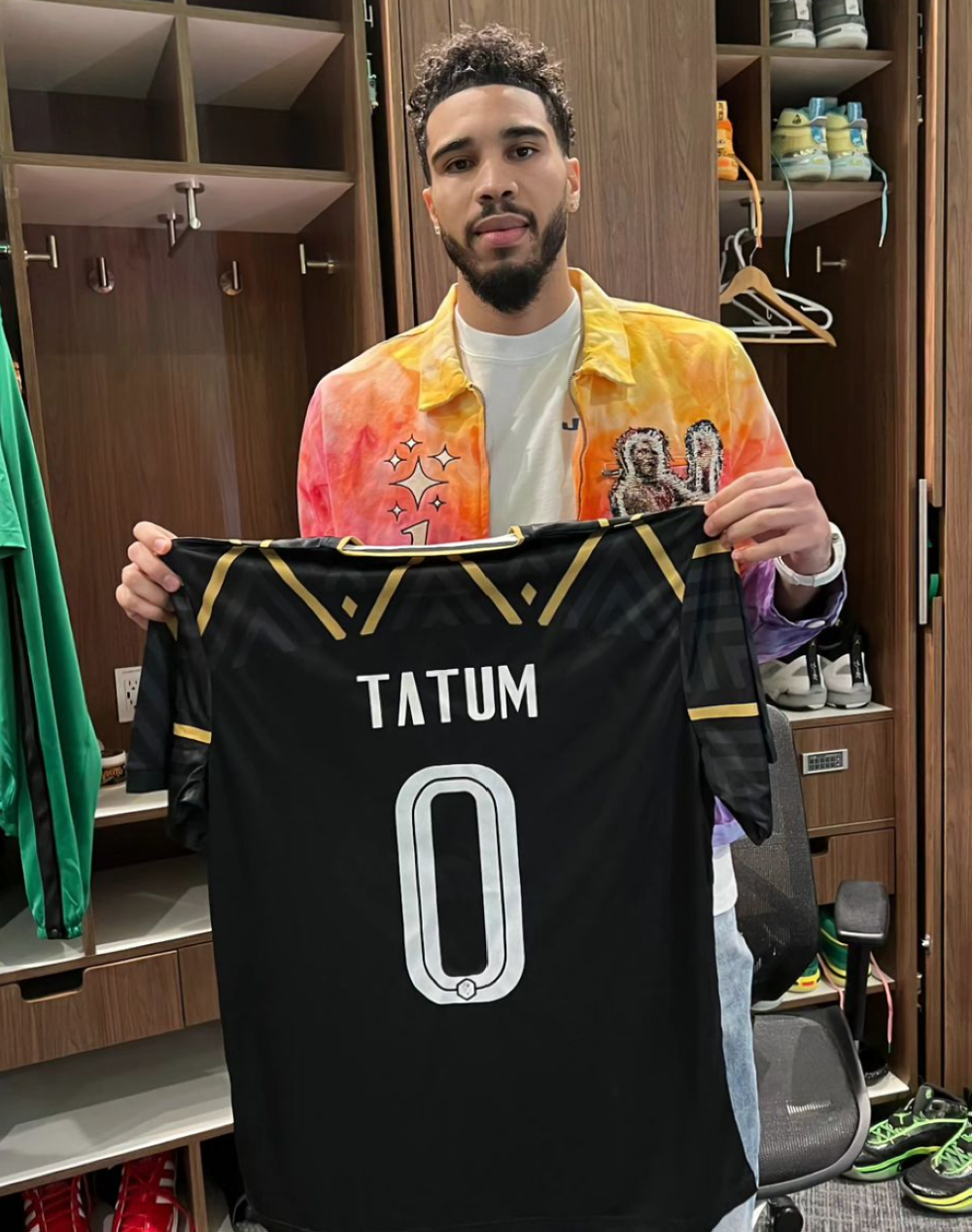
Matthew Rugamba, widely known as ‘Tayo’, is the mastermind behind ‘House of Tayo’, a men's wear label and accessory line. This brand stands as a symbol of African sophistication, showcasing style and flair through locally crafted clothing and accessories.
Established with the vision of highlighting African elegance and flavor, House of Tayo merges contemporary design with locally-made attire and accessories. In particular, their latest product, ‘Ijezi’, has gained popularity among sports fashion lovers and celebrities both in and outside Rwanda.
Since its establishment in 2011, House of Tayo has emerged as a top fashion house in Rwanda, dressing global celebrities such as FIFA President Gianni Infantino, performers Mr Eazi, Adekunle Gold, Ruger, Poizon Ivy, Sarkodie, Davido, Burna Boy, Peter Junior Nyong’o, and athletes Jayson Tatum, Joakim Noah, Amadou Gallo Fall, among others.
Moshions
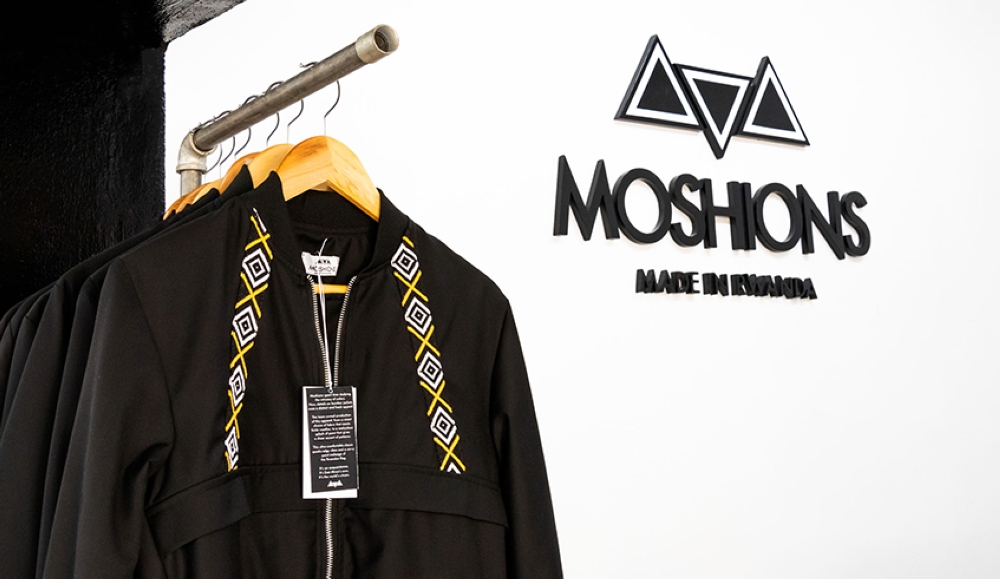
Moshions is a culturally inspired brand founded by Moses Twahirwa in 2015. The award-winning brand blends ancient motifs with contemporary designs to celebrate Rwanda’s eclectic culture.
Their collections such as ‘Kwanda’, ‘Imandwa’, and others express a fusion of traditional and contemporary aesthetics. Moshions combines organic fabrics, natural dyes, and high-end couture to create timeless fashion pieces.
The brand has been worn by various celebrities including Didier Drogba, Sauti Sol, Sonia Rolland, Jidenna, Saul Williams, Lous and the Yakuza, Nomzamo Mbatha, Sarkodie, Ilhan Omar, and more.
Sonia Mugabo (SM) collections

Sonia Mugabo (SM) collections are named after Sonia Mugabo, the founder and fashion designer of the brand.
Established in 2013, the eponymous fashion label gained recognition when Mugabo was featured as a ‘Fashion Designer’ by The Guardian and later listed in Forbes Africa’s 30-under-30 entrepreneurs for her promising work in 2017.
Mugabo, a self-taught designer, emphasizes local sourcing, including materials, employees, and models from her native Rwanda. Her designs embody effortless style, appealing to women seeking fashionable yet comfortable attire. As a pioneer in Rwanda’s fashion industry, Mugabo sets the standard for both local and global markets.
Notably, she dressed Melinda Gates during the Commonwealth Heads of State meeting in June 2022, showcasing her brand’s growing influence.
Tanga Designs
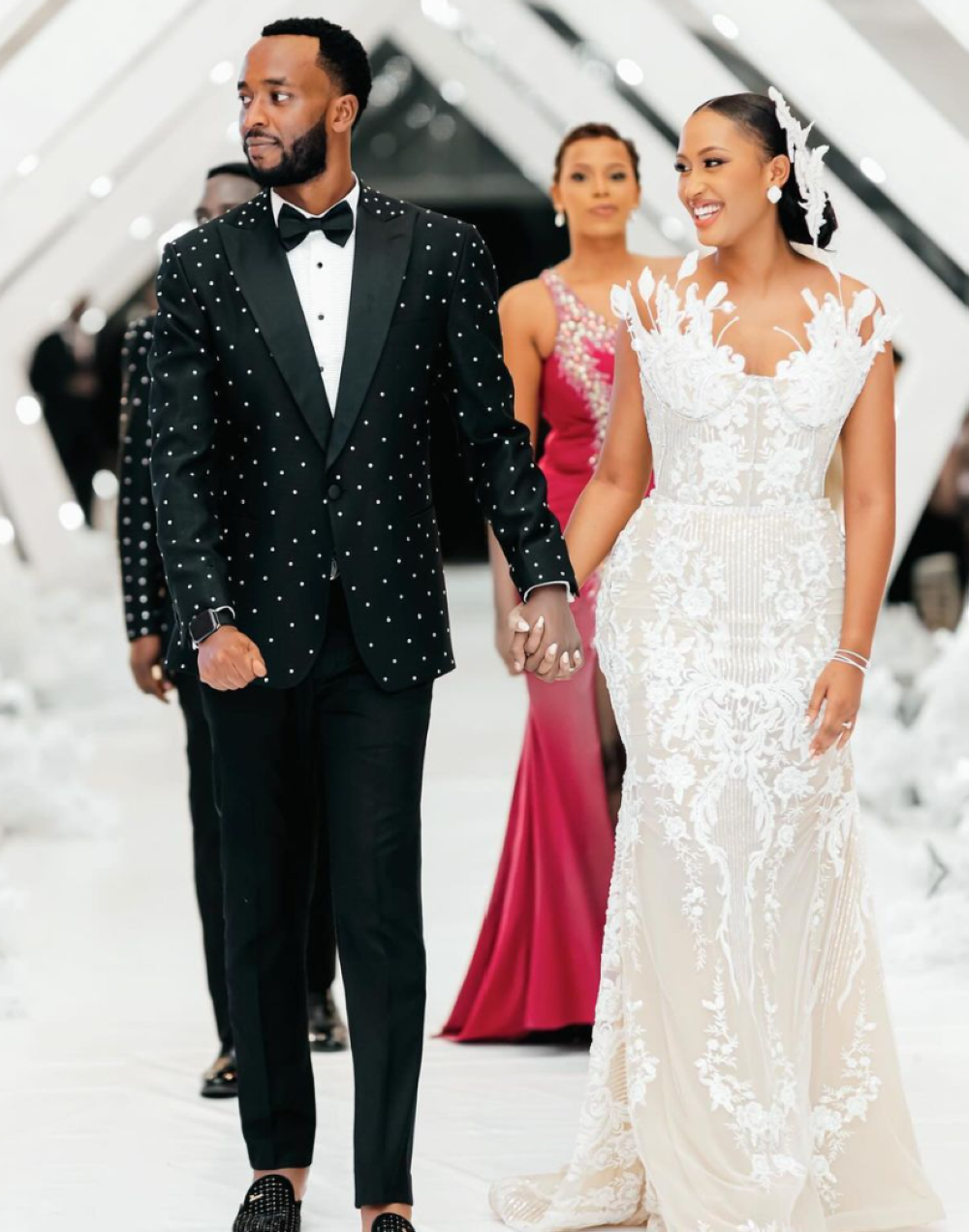
Tanga Designs, founded by Olivier Niyitanga, derives its name from the suffix of his own name, ‘Tanga’. It’s a prominent fashion house in Rwanda, renowned for its eccentric yet remarkable collections.
Niyitanga has dressed local celebrities such as Miss Jolly Mutesi, Meghan Nimwiza, Divine Muheto, as well as international figures like Sauti Sol, Elani, Mr. Eazi, and Davido.
Inspired by fashion icons like Alexander Wang, Vera Wang, Versace, and Armani, Tanga Designs focuses on elegance, art, class, and creativity. The brand uniquely blends modern and traditional designs to create visually striking looks appealing to trendy men and women who appreciate style.
ALSO READ: What to Expect in 2024: Fashion Industry and Made In Rwanda
UZI Collections
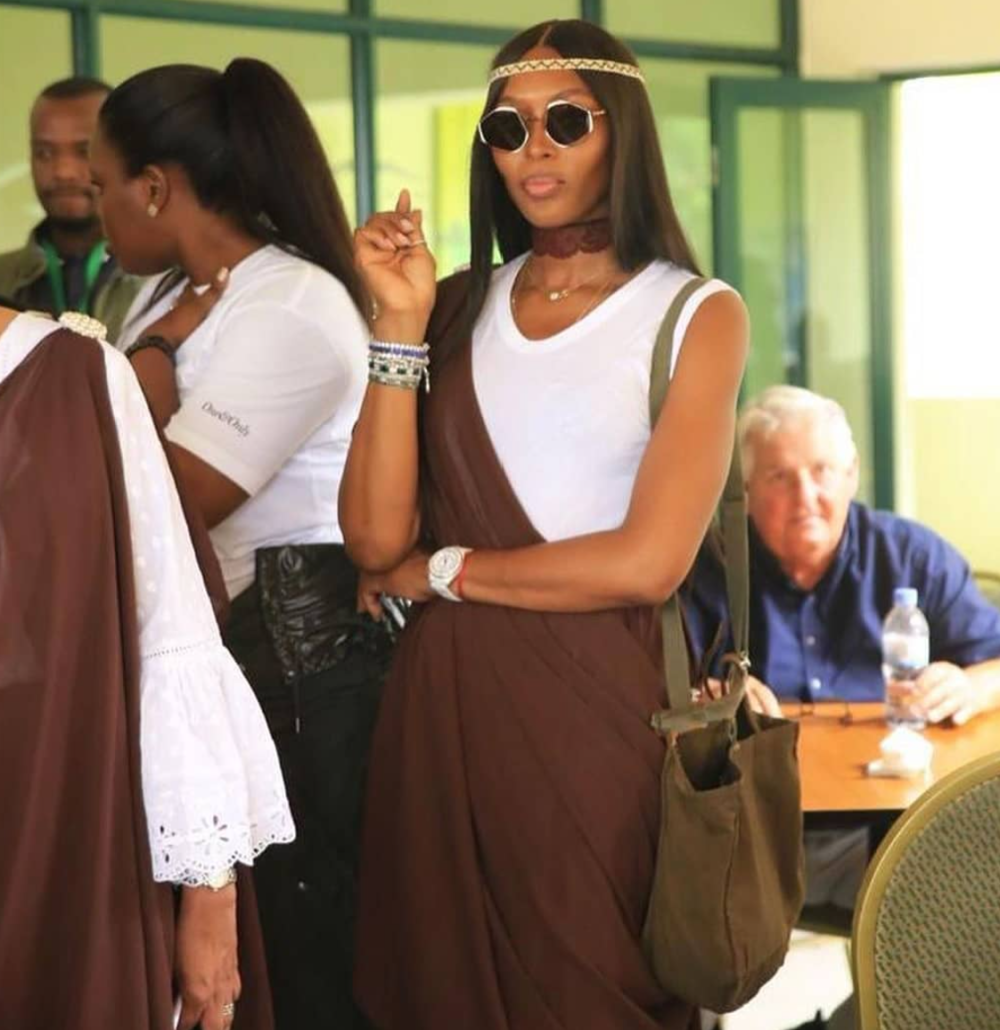
It was established in July 2015 by Rwandans Nathalie Remera and Rwema Umutoni, born from their profound passion for fashion.
The brand has notably adorned various personalities including Team Troy, Louis Van Gaal, Princess Basma Bint Ali, Naomi Campbell, Ne-Yo, Gael Faye, Ugandan comedian Anne Kansiime, and more for diverse occasions.
With a primary goal of crafting an impactful brand that empowers young individuals and contributes to Rwanda’s economic growth through the fashion sector, UZI Collections remains dedicated to its mission.
Izubaa Collection
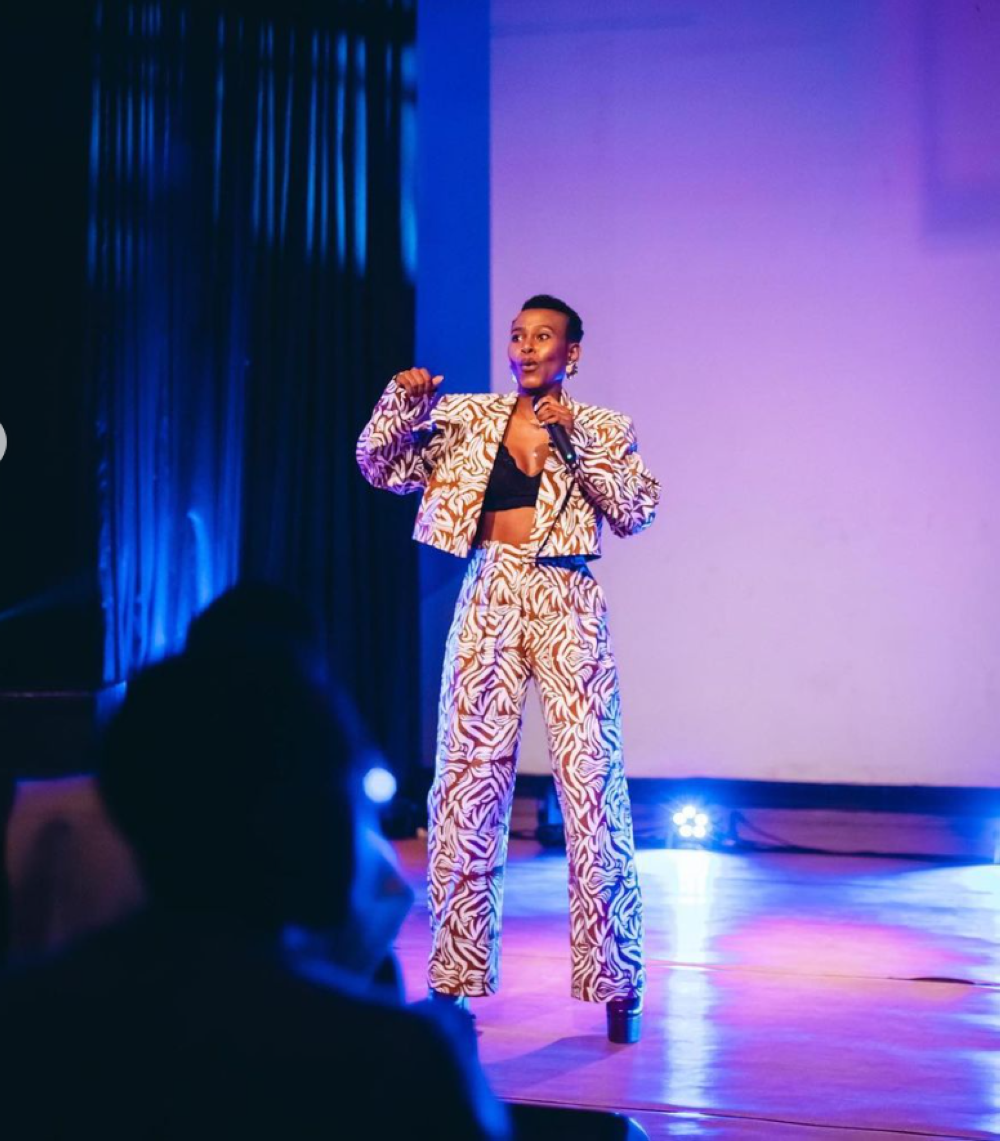
The Izubaa Collection, founded by Elodie Monique Vestine Fromenteau, draws inspiration from the late 80’s and 90’s. Their clothes blend French fabrics with African prints, featuring oversized and gender-neutral designs.
Mixing classic French tailoring with African fabrics like Kitenge and Kente, Izubaa promotes diversity, inclusivity, and self-identity.
Izubaa made notable appearances, including opening Kigali Fashion Week during the Commonwealth Heads of Government Meeting (CHOGM 2022) and dressing performers from Mashirika at the YouthConnekt Summit 2022.
Am!ke
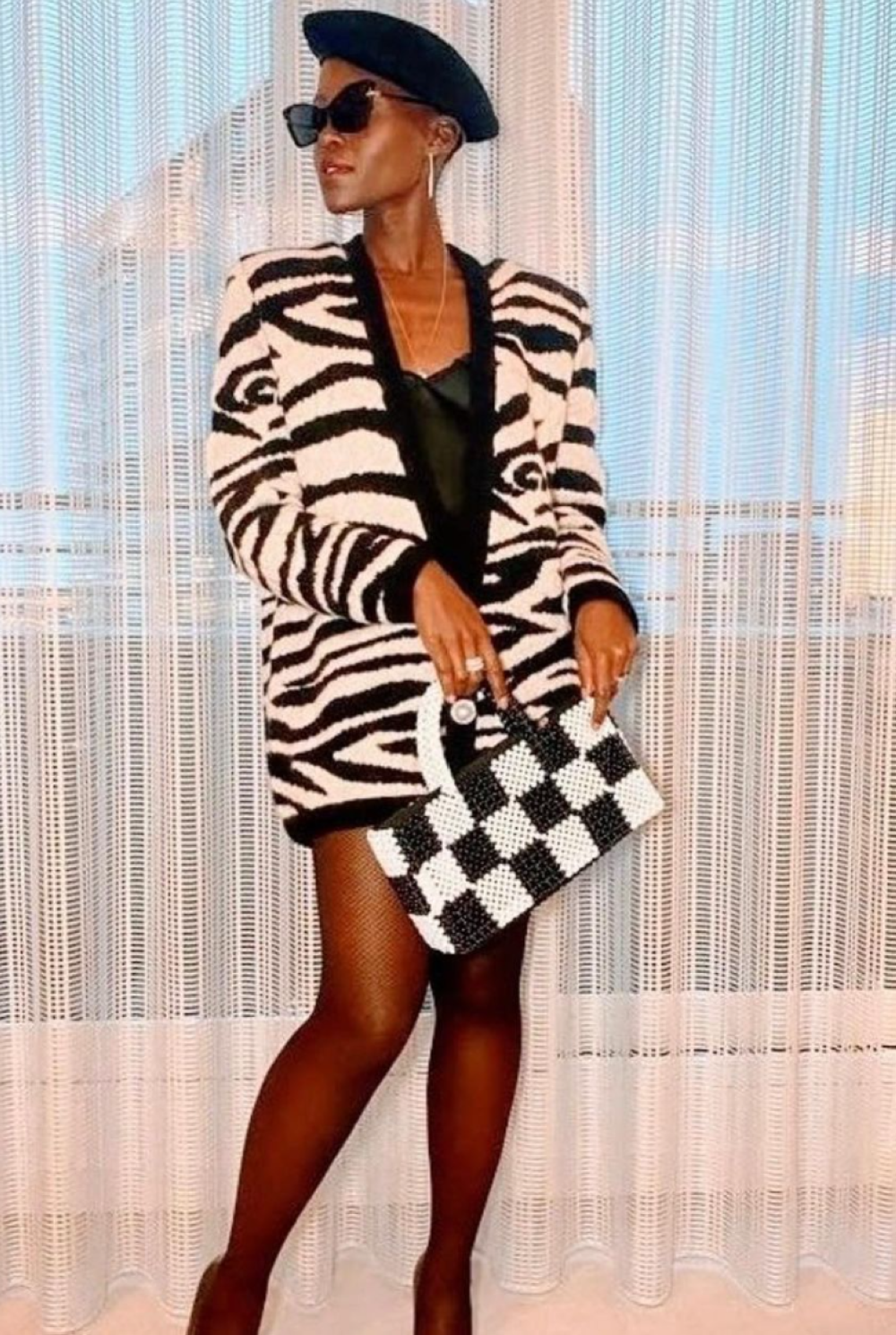
The Rwandan brand, Amike Studio, is owned by Aline Amike, a model, actress, poet, and designer-bead smith to create distinctive fashion pieces.
Specializing in unique beaded headpieces and accessories, her work has been featured in various collaborations, including Elodie Fromenteau’s IZUBAA collection showcased in Ghana and Rwandan artist Kaya Byinshi’s music videos.
Recently, Hollywood star Lupita Nyong’o garnered attention wearing a handcrafted bag from Amike Studio during the Berlin International Film Festival. Celebrities like B-Threy, Angell Mutoni, and Kaya Byinshi have also endorsed the brand.
Haute Baso
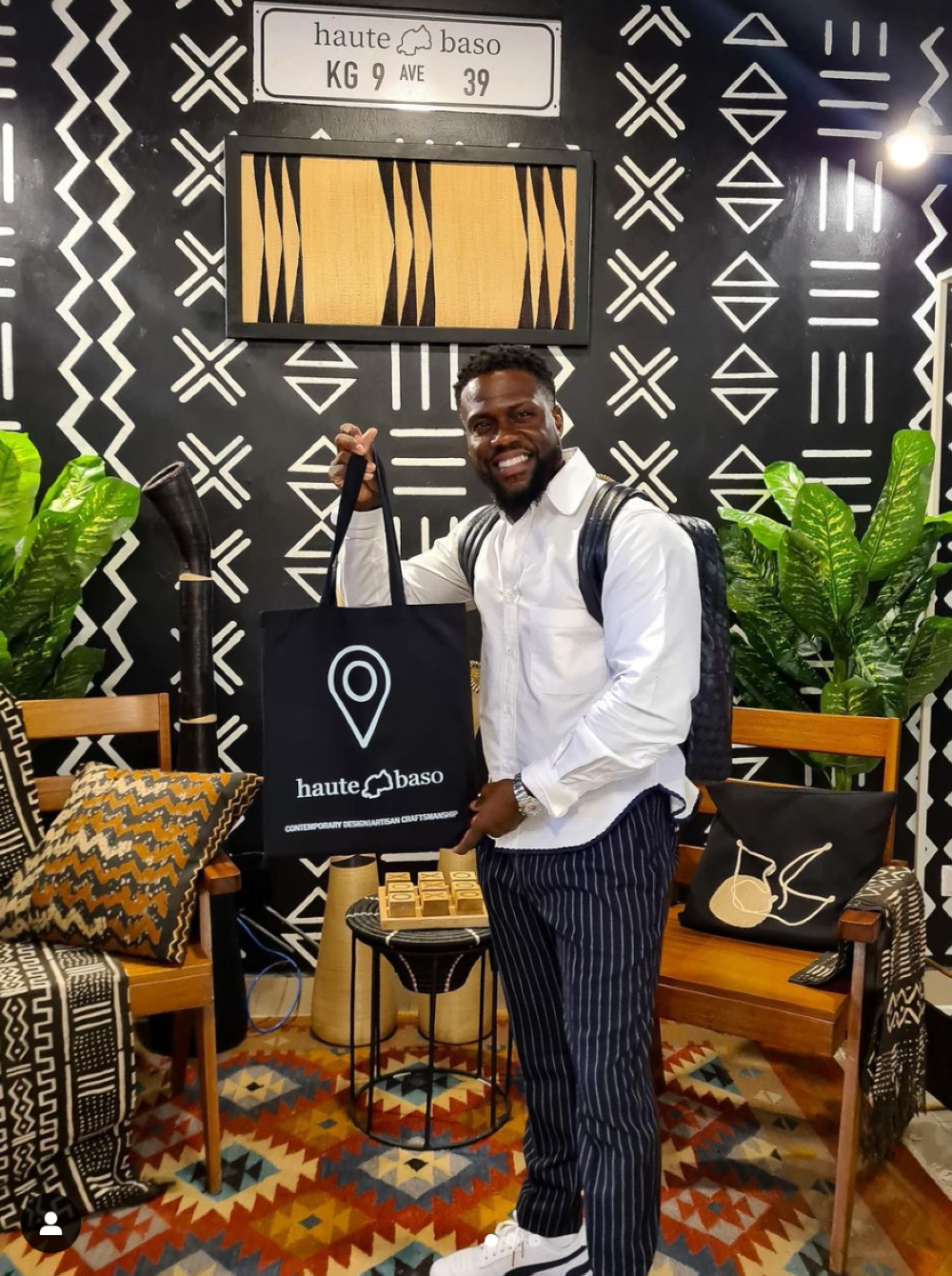
Haute Baso is an ethical fashion brand known for its thoughtful, simple, and functional designs.
The brand’s essence revolves around the idea that collaboration leads to positive change, particularly in empowering women and youth within their value chain while preserving Rwandan culture.
Notably, Haute Baso has dressed prominent figures such as Lais Ribeiro, wife of Hakim Noah, Kevin Hart, Arancha Gonzalez Laya, former Minister of Foreign Affairs, European Union, and Cooperation of Spain, Ellen DeGeneres, and her partner Portia de Rossi to mention but a few.
Additionally, the brand has showcased its collections at events like the Mercedes Benz Fashion Week in Johannesburg, South Africa, organized by African Fashion International (AFI) in previous years.
Matheo brand
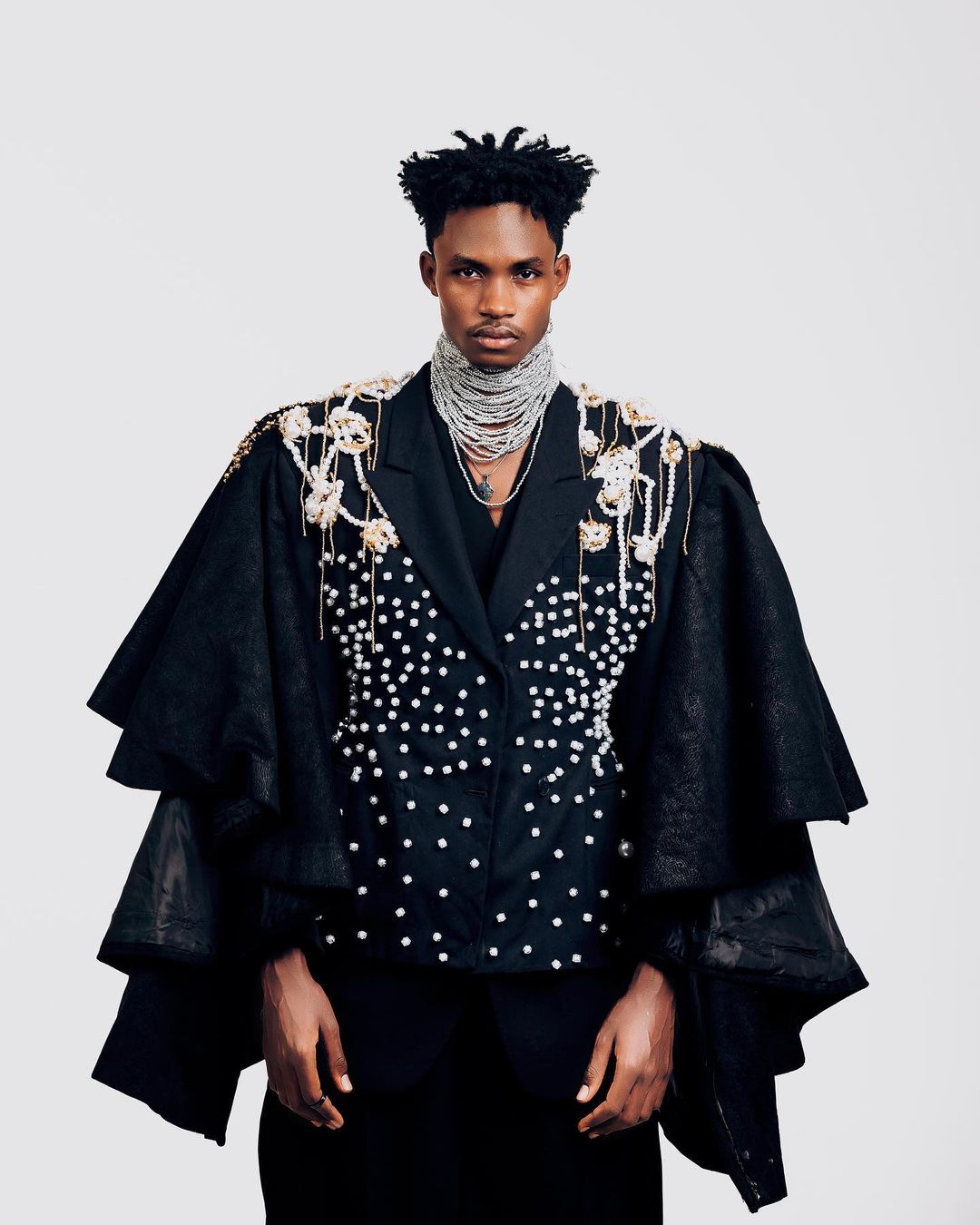 Made by Matheo clothing brand
Made by Matheo clothing brand
In 2019, Maurice Niyigena founded an emerging fashion brand called ‘Matheo Brand’.
Despite the challenges faced by upcoming designers, Matheo has managed to capture the attention and emotions of fashion enthusiasts in Kigali and beyond.
The brand has garnered positive feedback and support, with both local and international runway models, such as Irina Breslavets-Druzhinina and Reinhardt Kenneth, adorning and collaborating with Matheo during prestigious events like New York Fashion Week and others.
Inzuki Design
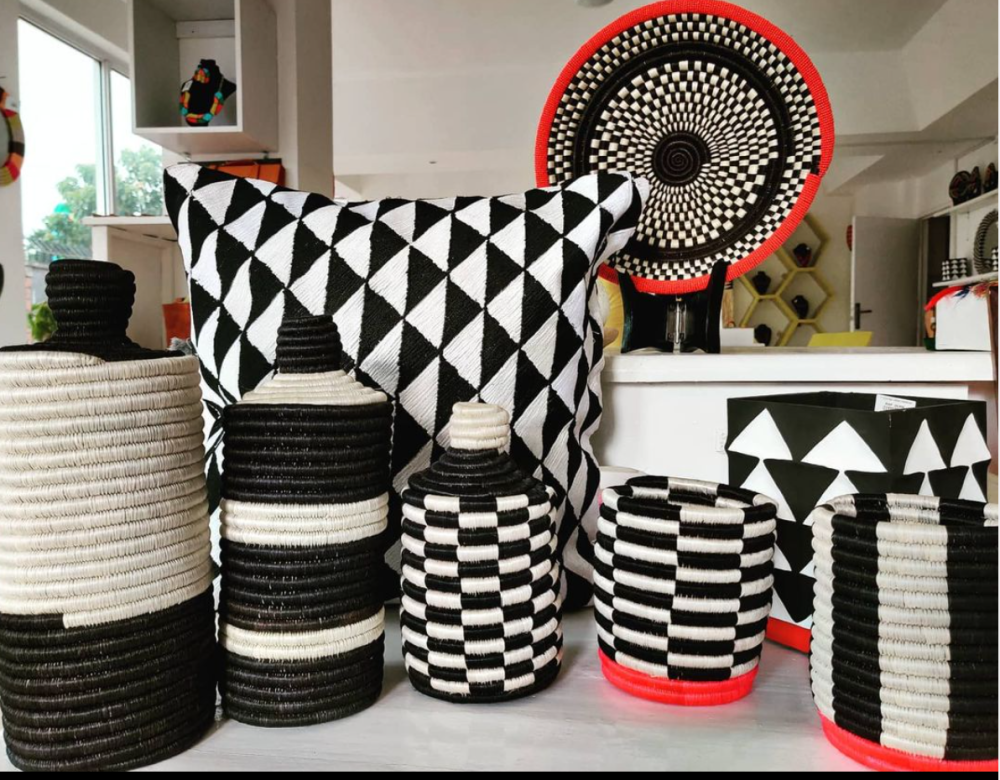
Inzuki is a Rwandan brand founded by Teta Isibo in 2012, specializing in handmade jewelry, accessories, and interior decor crafted from local materials.
Their products, which blend traditional craftsmanship with contemporary style, aim to transcend Rwandan design traditions and cater to modern preferences.
With a focus on Rwanda-made, Africa-inspired, and globally-loved creations, Inzuki has gained traction in international markets and has expanded its reach to Africa, Europe, Asia, and North America through distributors and an online store.
In particular, Inzuki’s bold and colorful trinkets are already sold at a handful of retailers in the United States including the gift store at the Field Museum, in Chicago.
Beyond mere clothing and accessories, fashion is a multi-billion-dollar industry driven by some of the most iconic and valuable brands locally and globally.
Other local fashion houses are ‘Kabash’ by Catherine Bashabe, ‘Inkanda Fashion House’ by Muhire Patrick, Rwanda Clothing, ‘KarSSH Collections’ by Karen Uwera, Bold Bonza by Sissi Ngamije, ‘Kezem Rwanda’ by Emmanuel Keza, ‘Amizero’ by Cedric Amizero, ‘Uzuri K & Y’, ‘Maison Munezero’, ‘Inco fashion’, ‘Gro Creation’, ‘lito Ris Designs’ and many more.
In Rwanda, where once only foreign labels were recognized, local fashion giants, predominantly driven by the youth, today dominate the market, a sign of a growing industry by far.
We bring you the top 10 most valuable fashion brands, in no particular order, that have garnered international acclaim on different occasions.
House of Tayo

Matthew Rugamba, widely known as ‘Tayo’, is the mastermind behind ‘House of Tayo’, a men's wear label and accessory line. This brand stands as a symbol of African sophistication, showcasing style and flair through locally crafted clothing and accessories.
Established with the vision of highlighting African elegance and flavor, House of Tayo merges contemporary design with locally-made attire and accessories. In particular, their latest product, ‘Ijezi’, has gained popularity among sports fashion lovers and celebrities both in and outside Rwanda.
Since its establishment in 2011, House of Tayo has emerged as a top fashion house in Rwanda, dressing global celebrities such as FIFA President Gianni Infantino, performers Mr Eazi, Adekunle Gold, Ruger, Poizon Ivy, Sarkodie, Davido, Burna Boy, Peter Junior Nyong’o, and athletes Jayson Tatum, Joakim Noah, Amadou Gallo Fall, among others.
Moshions

Moshions is a culturally inspired brand founded by Moses Twahirwa in 2015. The award-winning brand blends ancient motifs with contemporary designs to celebrate Rwanda’s eclectic culture.
Their collections such as ‘Kwanda’, ‘Imandwa’ and others express a fusion of traditional and contemporary aesthetics. Moshions combines organic fabrics, natural dyes, and high-end couture to create timeless fashion pieces.
The brand has been worn by various celebrities including Didier Drogba, Sauti Sol, Sonia Rolland, Jidenna, Saul Williams, Lous and the Yakuza, Nomzamo Mbatha, Sarkodie, Ilhan Omar, and more.
Sonia Mugabo (SM) collections

Sonia Mugabo (SM) collections are named after Sonia Mugabo, the founder and fashion designer of the brand.
Established in 2013, the eponymous fashion label gained recognition when Mugabo was featured as a ‘Fashion Designer’ by The Guardian and later listed in Forbes Africa’s 30-under-30 entrepreneurs for her promising work in 2017.
Mugabo, a self-taught designer, emphasizes local sourcing, including materials, employees, and models from her native Rwanda. Her designs embody effortless style, appealing to women seeking fashionable yet comfortable attire. As a pioneer in Rwanda’s fashion industry, Mugabo sets the standard for both local and global markets.
Notably, she dressed Melinda Gates during the Commonwealth Heads of State meeting in June 2022, showcasing her brand’s growing influence.
Tanga Designs

Tanga Designs, founded by Olivier Niyitanga, derives its name from the suffix of his own name, ‘Tanga’. It’s a prominent fashion house in Rwanda, renowned for its eccentric yet remarkable collections.
Niyitanga has dressed local celebrities such as Miss Jolly Mutesi, Meghan Nimwiza, Divine Muheto, as well as international figures like Sauti Sol, Elani, Mr. Eazi, and Davido.
Inspired by fashion icons like Alexander Wang, Vera Wang, Versace, and Armani, Tanga Designs focuses on elegance, art, class, and creativity. The brand uniquely blends modern and traditional designs to create visually striking looks appealing to trendy men and women who appreciate style.
ALSO READ: Stylists weigh in on fashion side of Kigali Triennial Festival
UZI Collections

It was established in July 2015 by Rwandans Nathalie Remera and Rwema Umutoni, born from their profound passion for fashion.
The brand has notably adorned various personalities including Team Troy, Louis Van Gaal, Princess Basma Bint Ali, Naomi Campbell, Ne-Yo, Gael Faye, Ugandan comedian Anne Kansiime, and more for diverse occasions.
With a primary goal of crafting an impactful brand that empowers young individuals and contributes to Rwanda’s economic growth through the fashion sector, UZI Collections remains dedicated to its mission.
Izubaa Collection

The Izubaa Collection, founded by Elodie Monique Vestine Fromenteau, draws inspiration from the late 80’s and 90’s. Their clothes blend French fabrics with African prints, featuring oversized and gender-neutral designs.
Mixing classic French tailoring with African fabrics like Kitenge and Kente, Izubaa promotes diversity, inclusivity, and self-identity.
Izubaa made notable appearances, including opening Kigali Fashion Week during the Commonwealth Heads of Government Meeting (CHOGM 2022) and dressing performers from Mashirika at the YouthConnekt Summit 2022.
Am!ke

The Rwandan brand, Amike Studio, is owned by Aline Amike, a model, actress, poet, and designer-bead smith to create distinctive fashion pieces.
Specializing in unique beaded headpieces and accessories, her work has been featured in various collaborations, including Elodie Fromenteau’s IZUBAA collection showcased in Ghana and Rwandan artist Kaya Byinshi’s music videos.
Recently, Hollywood star Lupita Nyong’o garnered attention wearing a handcrafted bag from Amike Studio during the Berlin International Film Festival. Celebrities like B-Threy, Angell Mutoni, and Kaya Byinshi have also endorsed the brand.
ALSO READ: Gorilla Fashion Week blends styles at maiden edition
Haute Baso

Haute Baso, is an ethical fashion brand known for its thoughtful, simple, and functional designs.
The brand’s essence revolves around the idea that collaboration leads to positive change, particularly in empowering women and youth within their value chain while preserving Rwandan culture.
Notably, Haute Baso has dressed prominent figures such as Lais Ribeiro, wife of Hakim Noah, Kevin Hart, Arancha Gonzalez Laya, former Minister of Foreign Affairs, European Union, and Cooperation of Spain, Ellen DeGeneres, and her partner Portia de Rossi to mention but a few.
Additionally, the brand has showcased its collections at events like the Mercedes Benz Fashion Week in Johannesburg, South Africa, organized by African Fashion International (AFI) in previous years.
Matheo brand
In 2019, Maurice Niyigena founded an emerging fashion brand called ‘Matheo Brand’.
Despite the challenges faced by upcoming designers, Matheo has managed to capture the attention and emotions of fashion enthusiasts in Kigali and beyond.
The brand has garnered positive feedback and support, with both local and international runway models, such as Irina Breslavets-Druzhinina and Reinhardt Kenneth, adorning and collaborating with Matheo during prestigious events like New York Fashion Week and others.
Inzuki Design

Inzuki is a Rwandan brand founded by Teta Isibo in 2012, specializing in handmade jewelry, accessories, and interior decor crafted from local materials.
Their products, which blend traditional craftsmanship with contemporary style, aim to transcend Rwandan design traditions and cater to modern preferences.
With a focus on Rwanda-made, Africa-inspired, and globally-loved creations, Inzuki has gained traction in international markets and has expanded its reach to Africa, Europe, Asia, and North America through distributors and an online store.
In particular, Inzuki’s bold and colorful trinkets are already sold at a handful of retailers in the United States including the gift store at the Field Museum, in Chicago.
Beyond mere clothing and accessories, fashion is a multi-billion-dollar industry driven by some of the most iconic and valuable brands locally and globally.
Other local fashion houses are ‘Kabash’ by Catherine Bashabe, ‘Inkanda Fashion House’ by Muhire Patrick, Rwanda Clothing, ‘KarSSH Collections’ by Karen Uwera, Bold Bonza by Sissi Ngamije, ‘Kezem Rwanda’ by Emmanuel Keza, ‘Amizero’ by Cedric Amizero, ‘Uzuri K & Y’, ‘Maison Munezero’, ‘Inco fashion’, ‘Gro Creation’, ‘lito Ris Designs’ and many more.
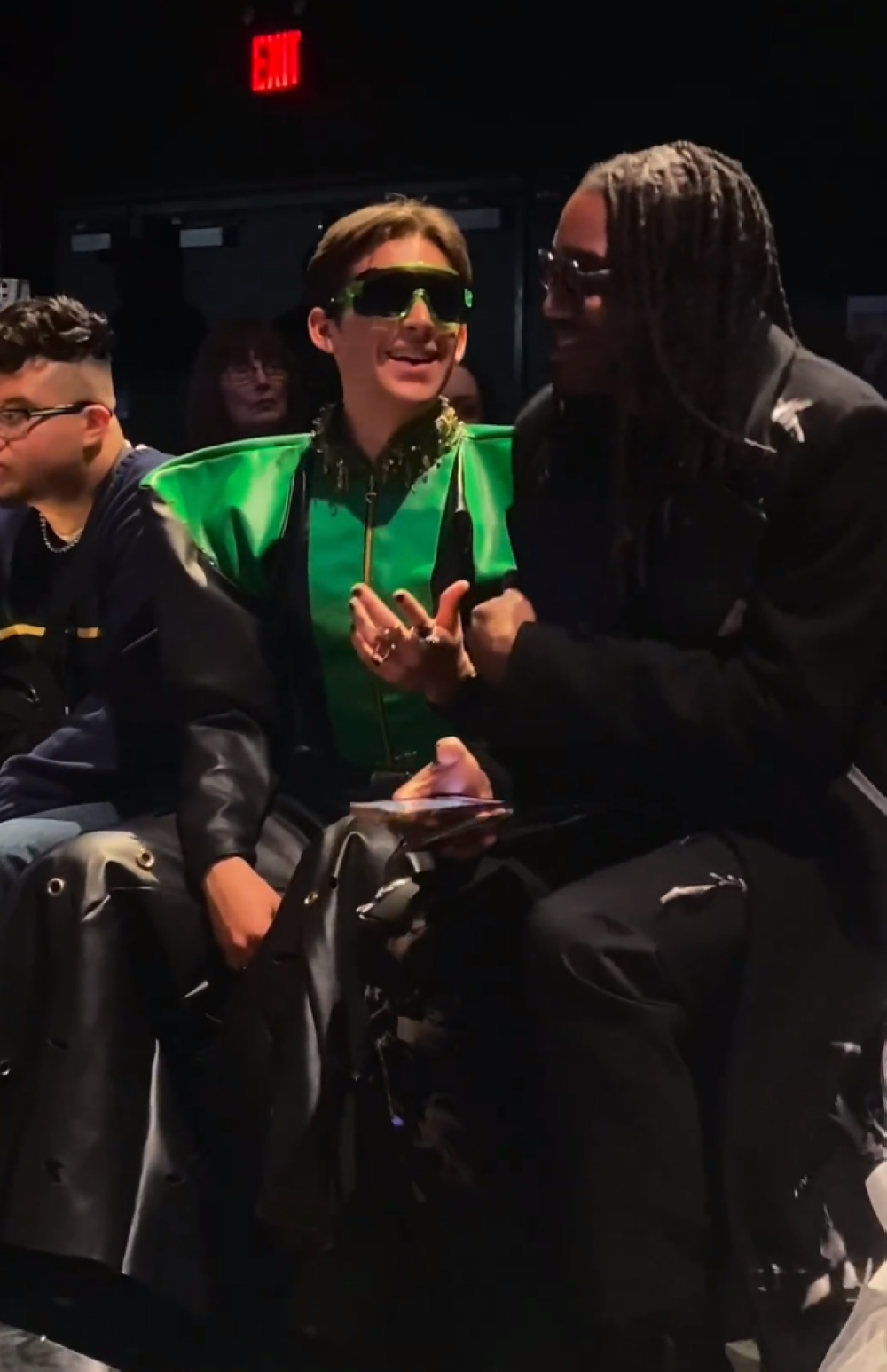
In the heart of Nakaseke district in Uganda, where traditions often dictated a different path for young girls, one remarkable individual emerged from adversity to redefine her destiny. Meet Hannah Karema, a woman whose journey from the shadows of cultural norms to the global stage of Miss World stands as a testament to resilience, determination, and the power of education.
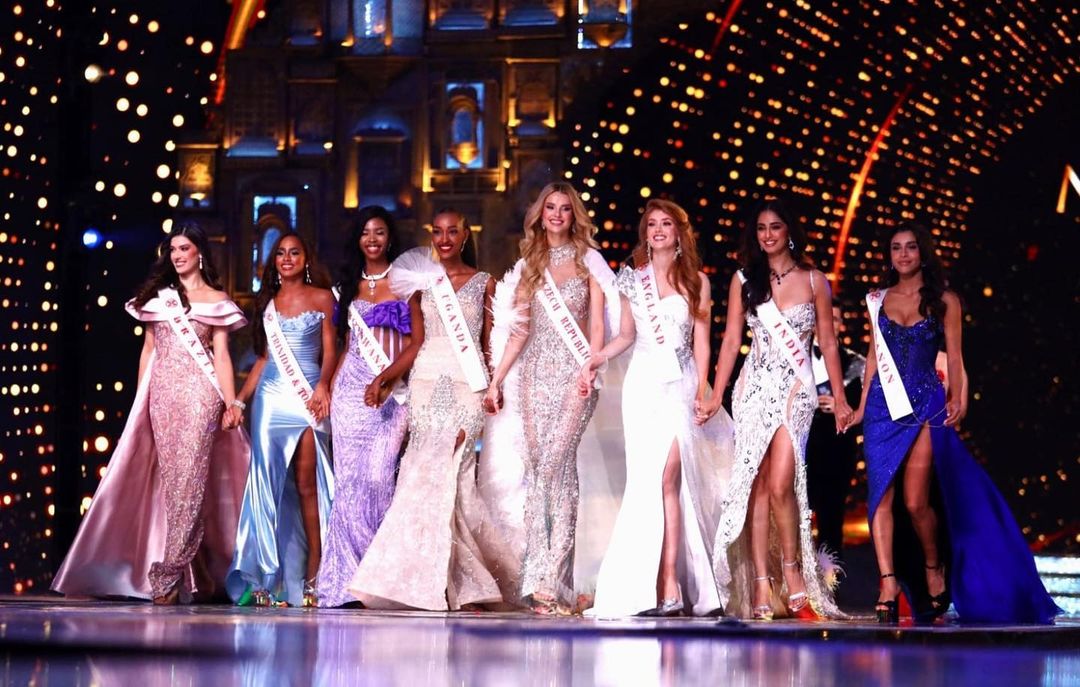
Ugandan -Rwandan Miss Hannah Tumukunde Among Top 8 Winners in the Miss World 2024 [PHOTO MW]
"After my experience in the 71st Miss World, I’m more than convinced about the greatness that lies in every woman. On this International Women’s Day, I choose to celebrate the strength and resilience of women worldwide. The narrative of women-led development is a powerful focus on inclusion, recognizing the unique contributions and perspectives that we women bring to every facet of society" says Ugandan-Rwandan Miss Hannah Tumukunde
Growing up in Nakaseke, Hannah faced the looming threat of early marriage, a prevalent practice in her community. However, fueled by an unyielding spirit and the support of her family, she defied the odds and chose a different narrative. Hannah understood the transformative potential of education, recognizing it as a key to breaking free from the constraints imposed by societal expectations.
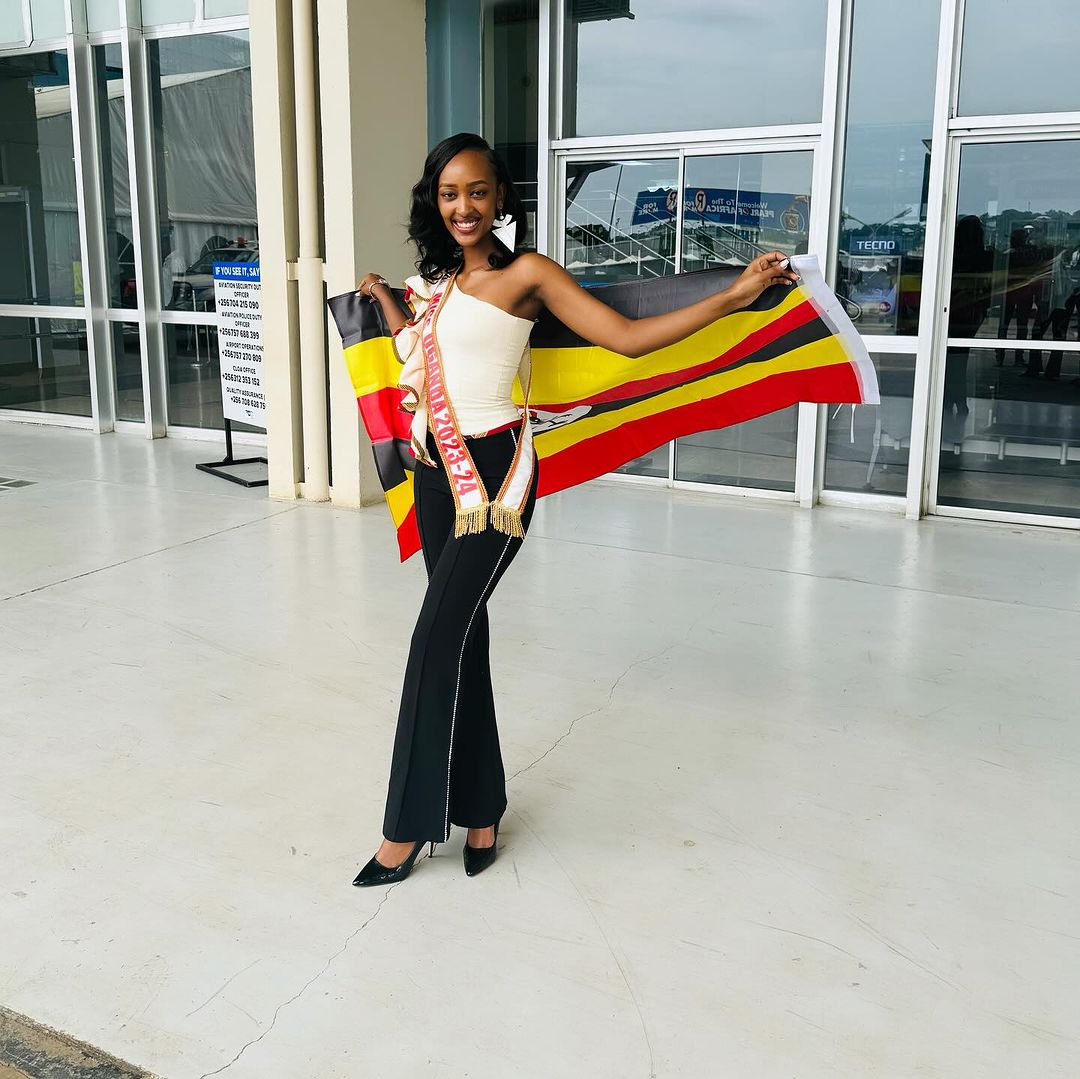
Ugandan -Rwandan Miss Hannah Tumukunde Among Top 8 Winners in the Miss World 2024 [PHOTO MW]
She may seem different coming from Uganda, but Hannah joins a line of phenomenal women who battled early marriages, echoing the struggles faced by others in countries around the world like Malala Yousafzai, Aung San Sun Kyi, Nujood Ali, and countless other women that continue to conquer this occurrence.
"Education stands as a key pillar, empowering women to break barriers and shape a better future. Women-led development embraces intersectionality, acknowledging and addressing diverse challenges. It goes beyond economic growth, fostering holistic well-being and amplifying the voices of women in decision-making. As we unite on this day, stand with me to champion inclusivity, ensuring that no woman is left behind. Together, we are powerful architects of positive change, shaping a world where women lead and thrive" added Ugandan -Rwandan Miss Hannah Tumukunde
ALSO READ: UGANDAN-RWANDAN MISS TUMUKUNDE IS PERFORMING WELL IN THE MISS WORLD 2023/2024: BEAUTY WITH A PURPOSE
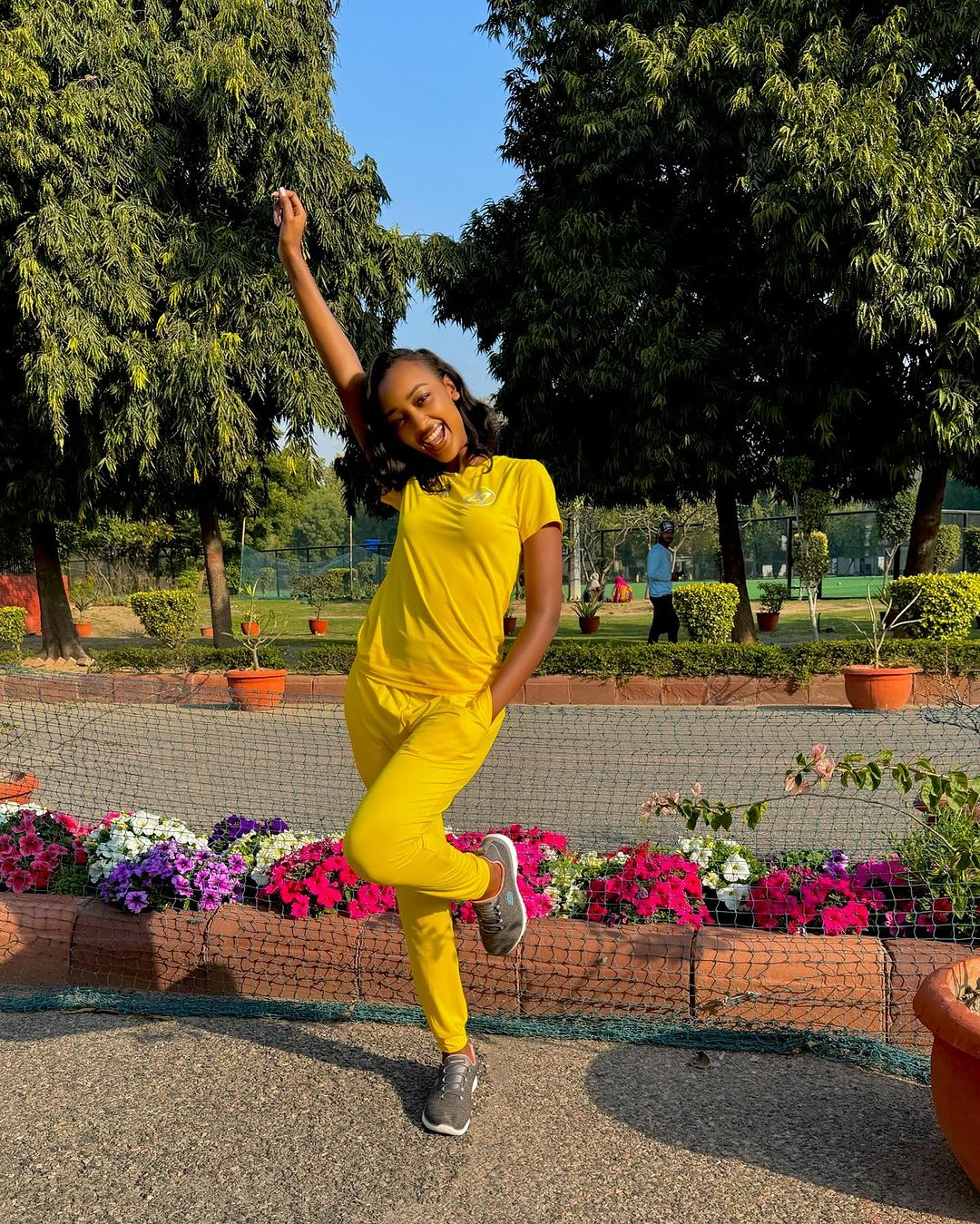
Ugandan -Rwandan Miss Hannah Tumukunde Among Top 8 Winners in the Miss World 2024 [PHOTO MW]
Despite numerous challenges, Hannah persevered, completing her high school education against all odds. Her academic achievement not only symbolized personal triumph but also illuminated a path for others to follow. In a society where educational opportunities for girls were often limited, Hannah became a beacon of hope, inspiring change, and challenging deeply ingrained norms.
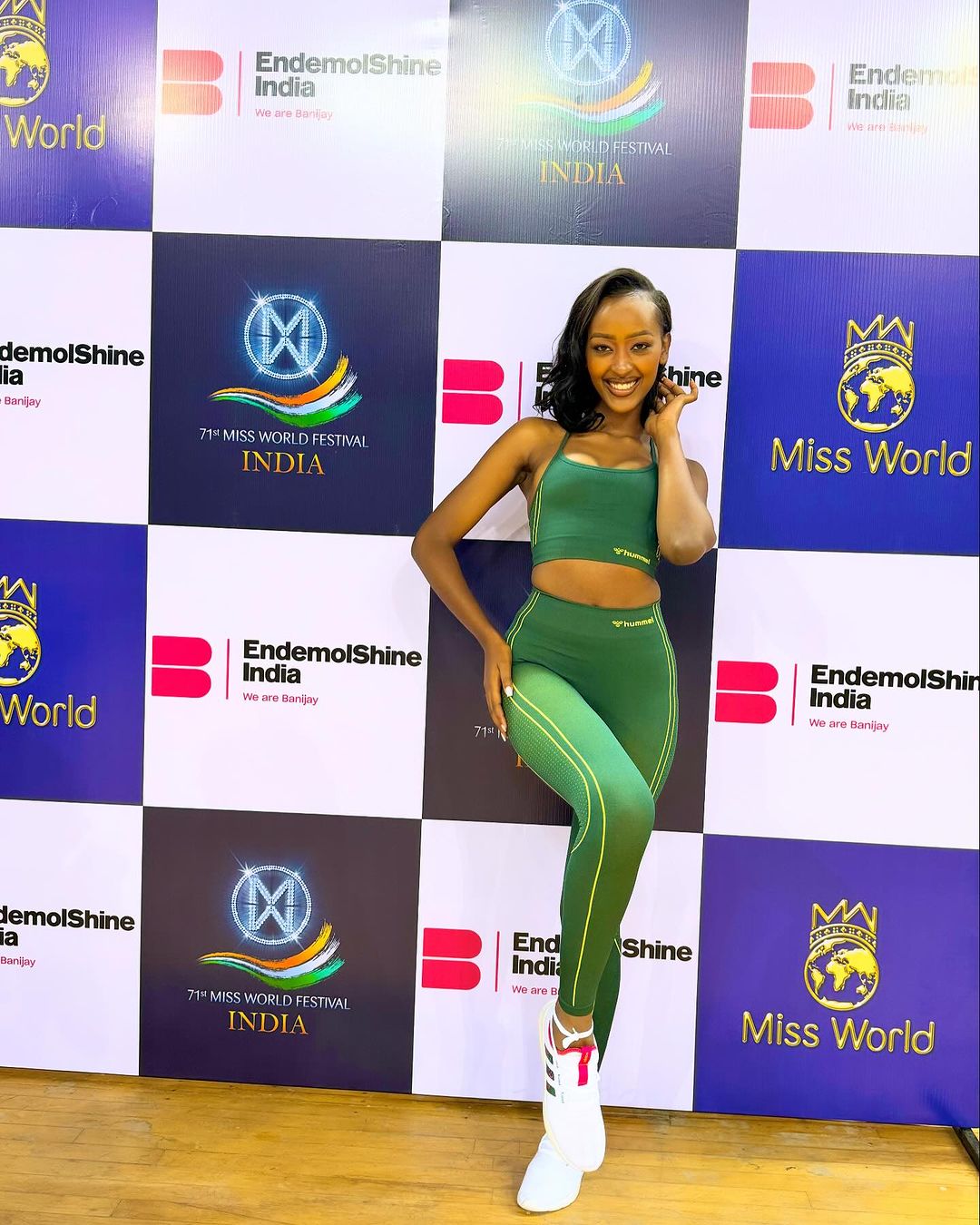
Ugandan -Rwandan Miss Hannah Tumukunde Among Top 8 Winners in the Miss World 2024 [PHOTO MW]
As Hannah’s story reached beyond Nakaseke, her journey caught the attention of the Miss Uganda pageant organizers. They saw in her not just a beauty queen but a symbol of empowerment and resilience. Crowned as Miss Uganda, Hannah embraced her platform to advocate for women-led empowerment and education, drawing upon her own experiences to fuel her mission.
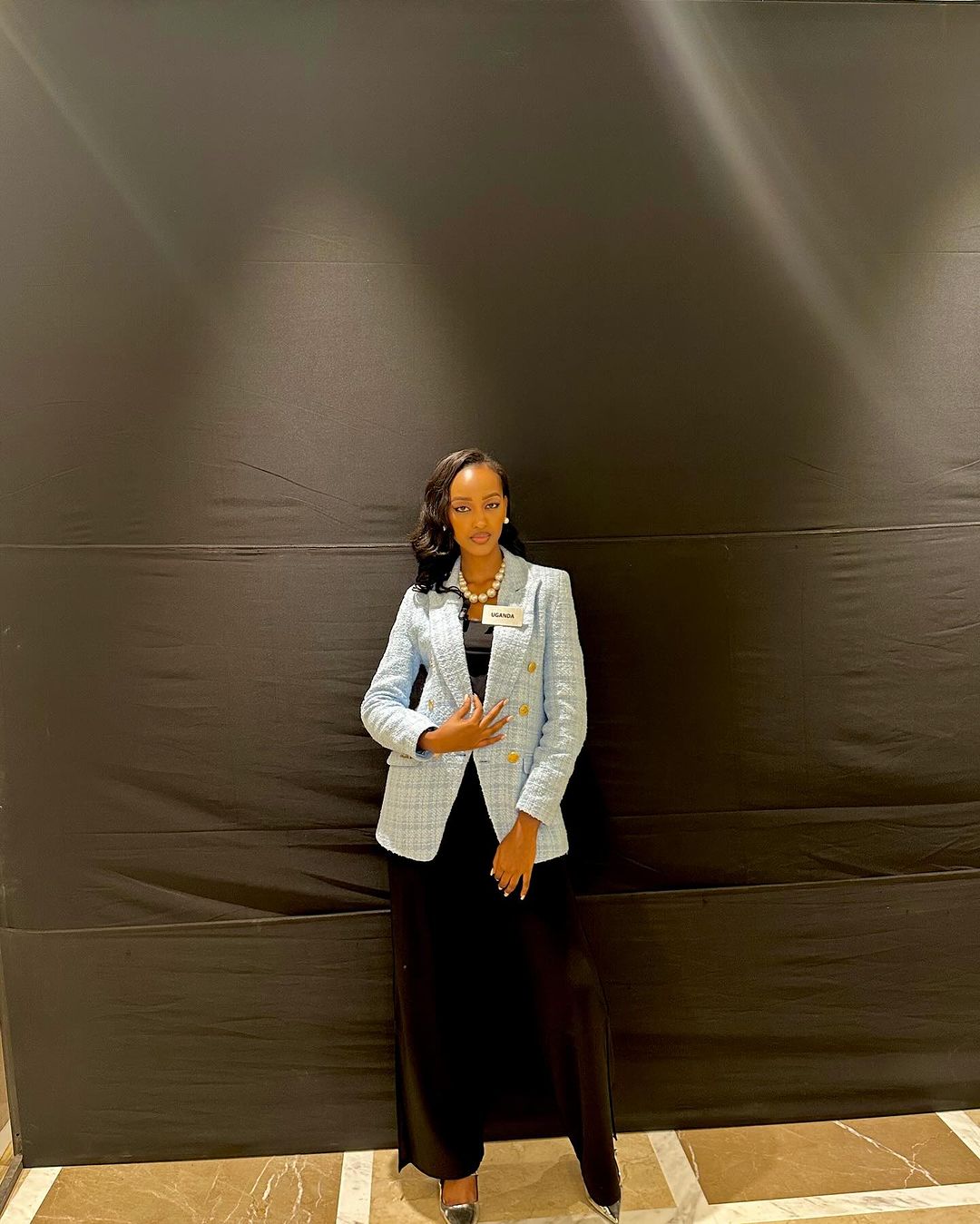
Ugandan -Rwandan Miss Hannah Tumukunde Among Top 8 Winners in the Miss World 2024 [PHOTO MW]
Now, standing proudly on the international stage as Miss Uganda at Miss World, Hannah Karema continues to champion the cause that defines her journey. With grace and determination, she uses her position to shed light on the importance of education in empowering women globally. Through her advocacy, she seeks to dismantle barriers and provide opportunities for girls who, like her, aspire to break free from the chains of tradition.
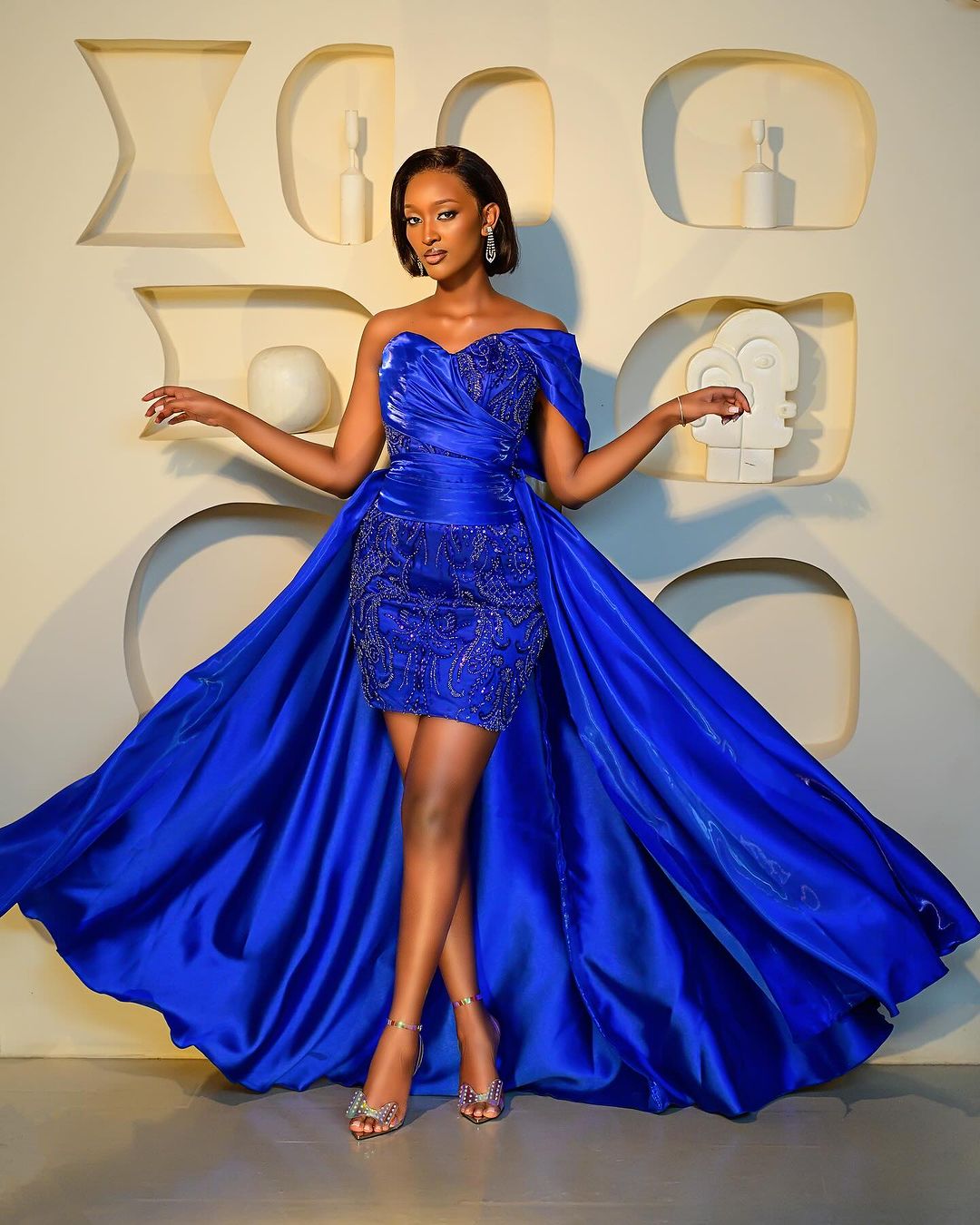
Ugandan -Rwandan Miss Hannah Tumukunde Among Top 8 Winners in the Miss World 2024 [PHOTO TUMUKUNDE]
Hannah’s journey from humble beginnings to the spotlight of Miss World exemplifies the transformative power of education and the ability of one individual to challenge and change societal norms. As she stands for women-led empowerment and education, Hannah Karema’s story becomes a source of inspiration for generations to come, reminding us all that no dream is too ambitious, no hurdle too high, when fueled by the fire of resilience and the pursuit of knowledge.
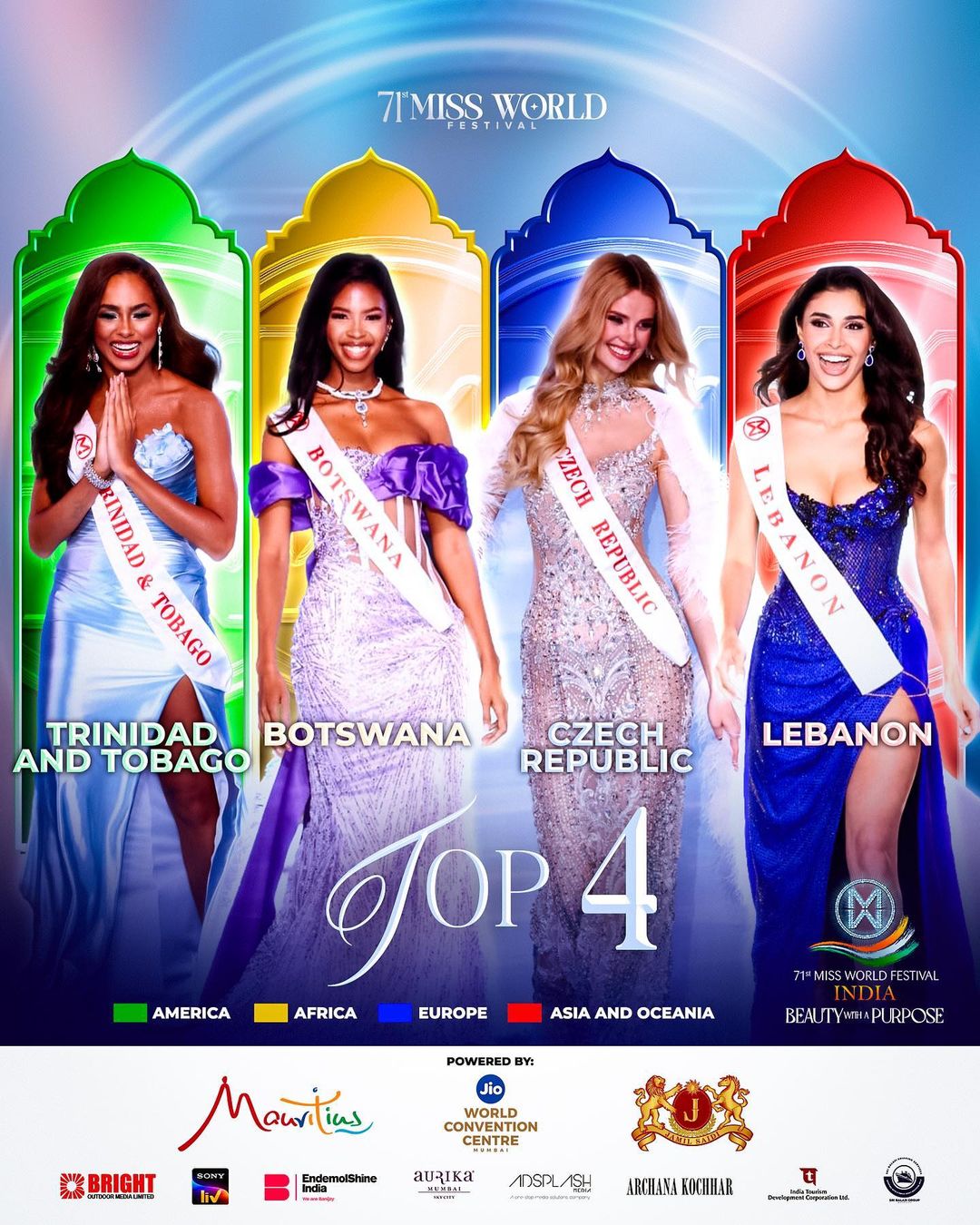
Top 4 winners [PHOTO MW]
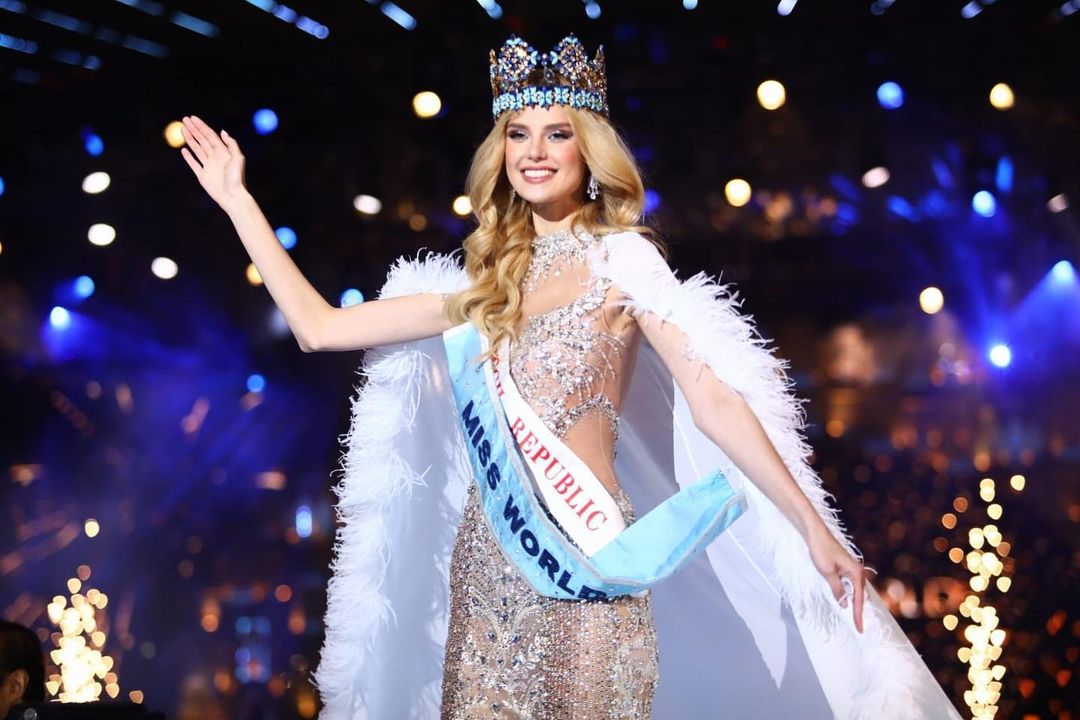
Salute your new Miss World @krystyna_pyszko , from the Czech Republic! [PHOTO MW]
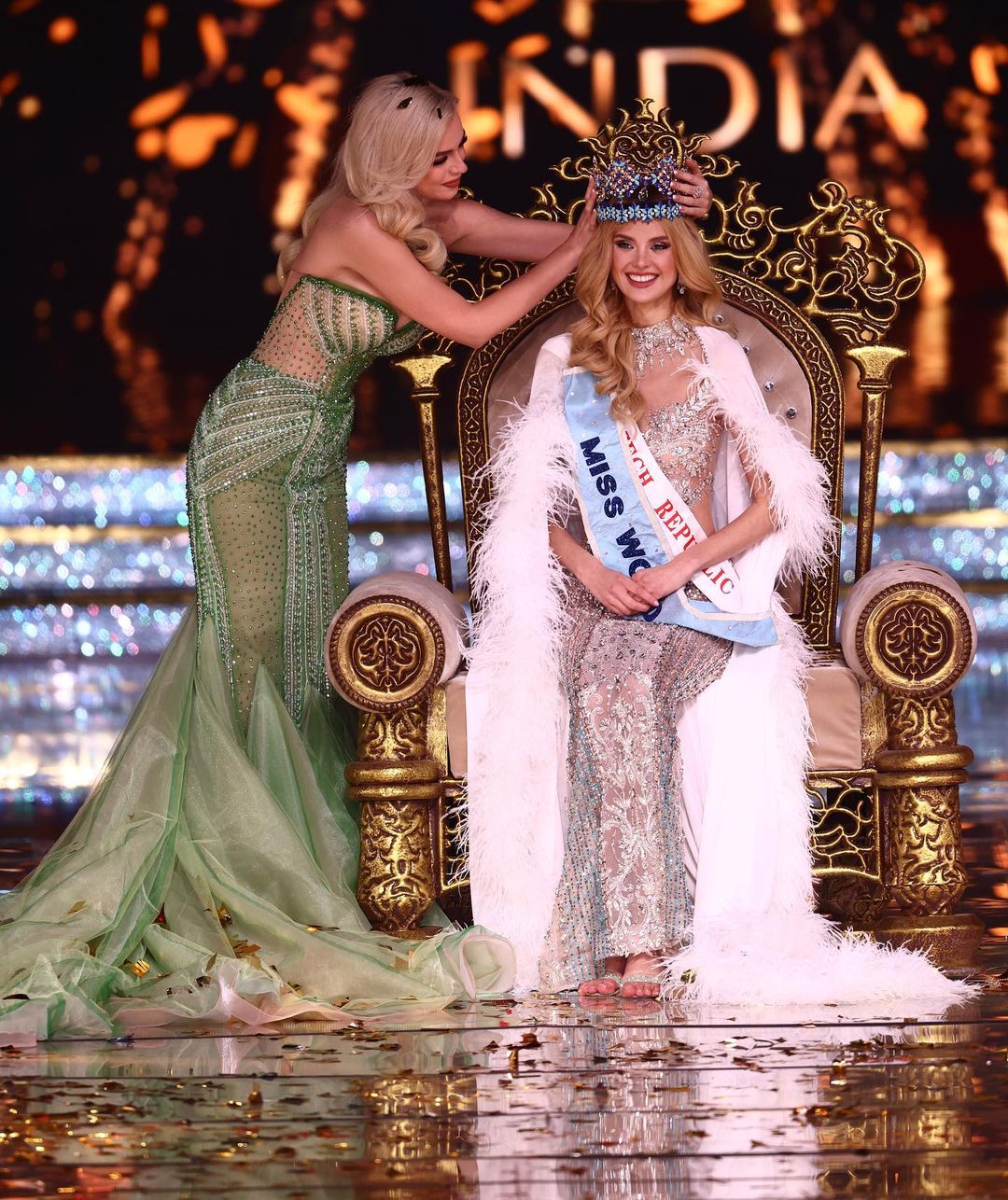
Salute your new Miss World @krystyna_pyszko , from the Czech Republic! [PHOTO MW]
A spectacular Fashion Installation at Nairobi Design Week BY 20 local fashion designers
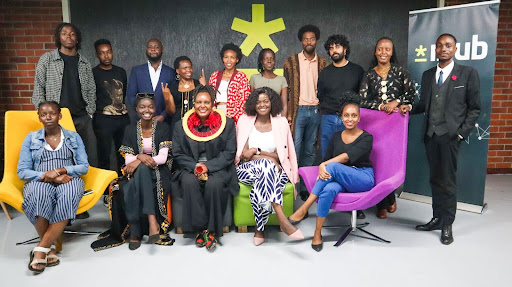 The Creative DNA 4.0 cohort designers are showcasing at the NDW2024 [PHOTO ND]
The Creative DNA 4.0 cohort designers are showcasing at the NDW2024 [PHOTO ND]
In the heart of Nairobi Design Week, amidst a vibrant tapestry of creativity, stands a testament to Kenya's burgeoning fashion industry's potential – the Creative DNA programme. Supported by the British Council, this initiative isn't just about showcasing garments; it's a movement aimed at revolutionizing the global fashion system through alternative and creative approaches.
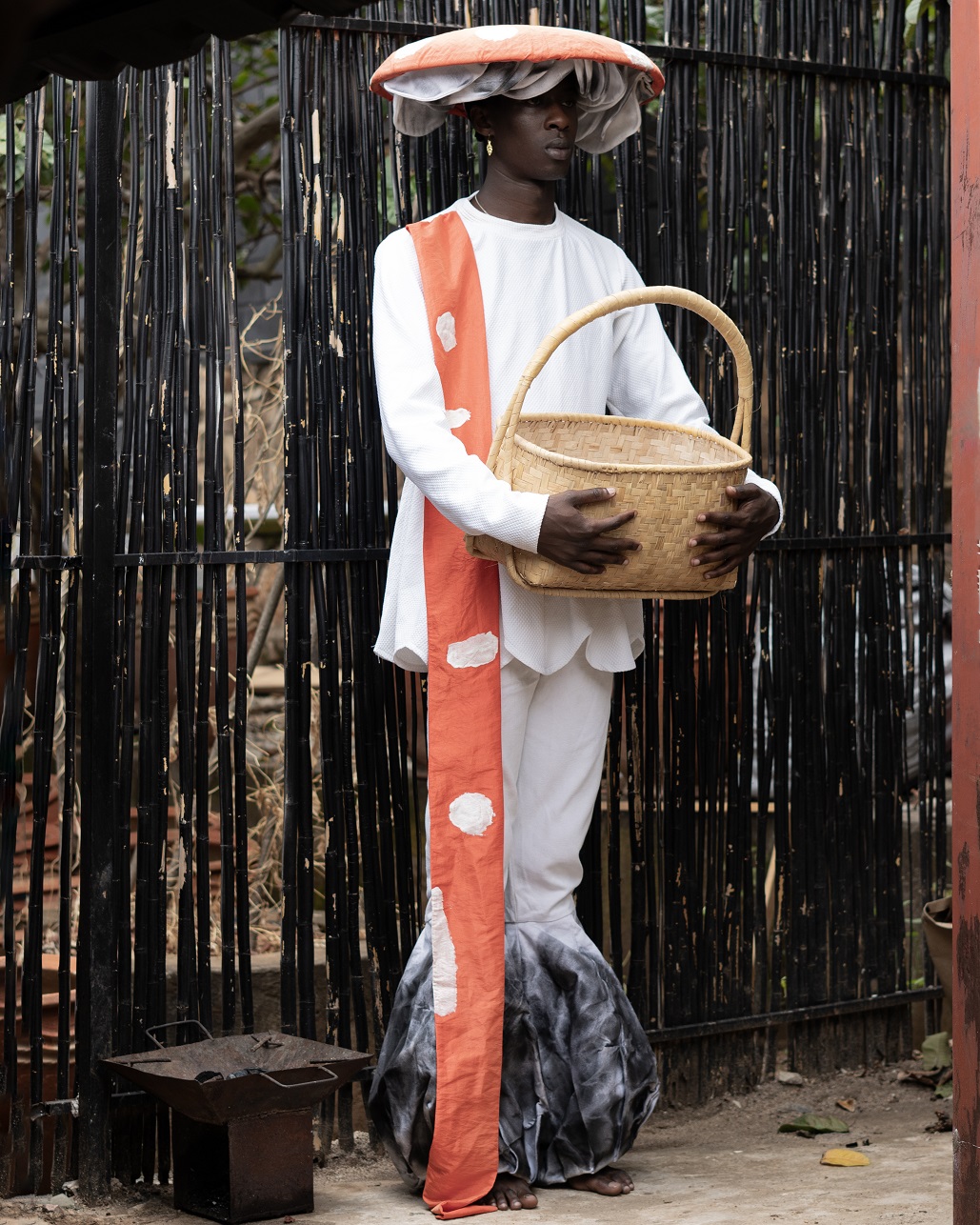 A collection made by Creative DNA 2024 member designer [ PHOTO NDW2024]
A collection made by Creative DNA 2024 member designer [ PHOTO NDW2024]
At its core, the programme, spearheaded by the British Council Kenya, collaborates with 20 local fashion designers, empowering them to thrive in a competitive global market. These designers, handpicked for their talent and potential, have undergone a rigorous three-month incubator programme led by esteemed figures in the industry. Partners such as Silvia Tonui, Founder of Trio Media, Ann McCreath, founder of Kikiromeo, alongside UK-based experts Biljana and Martyn Roberts, founder of Fashion Scout, guide participants through a transformative journey of skill development, knowledge enhancement, and global networking.
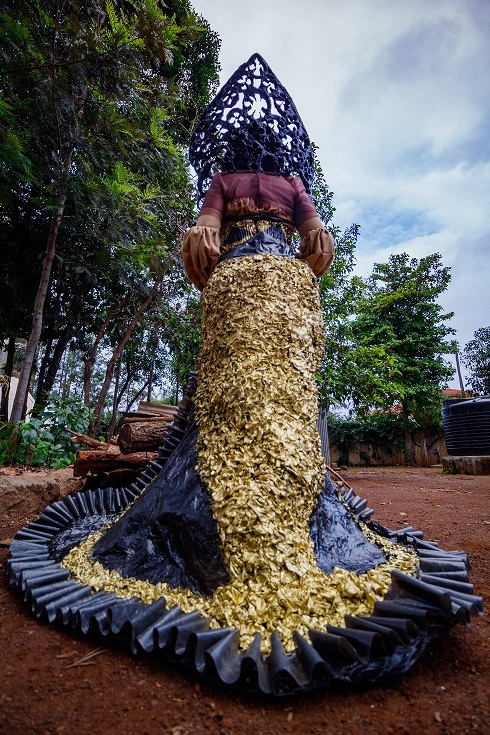 A collection made by Creative DNA 2024 member designer [ PHOTO NDW2024]
A collection made by Creative DNA 2024 member designer [ PHOTO NDW2024]
The culmination of this transformative journey finds expression in a spectacular Fashion Installation at Nairobi Design Week. Here, attendees are treated to a mesmerizing fusion of traditional craftsmanship and contemporary design sensibilities. Each display reflects Kenya's rich cultural tapestry and forward-looking ethos, showcasing the result of months of dedication and hard work.
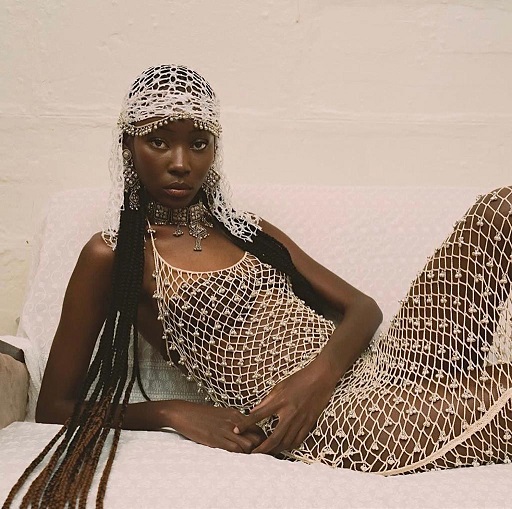 A collection made by Creative DNA 2024 member designer [ PHOTO NDW2024]
A collection made by Creative DNA 2024 member designer [ PHOTO NDW2024]
ALSO READ: THE 9TH EDITION OF THE ANNUAL NAIROBI DESIGN WEEK 2024 KICKS OFF TODAY: WHAT TO EXPECT
What you need to know about the Creative DNA Programme
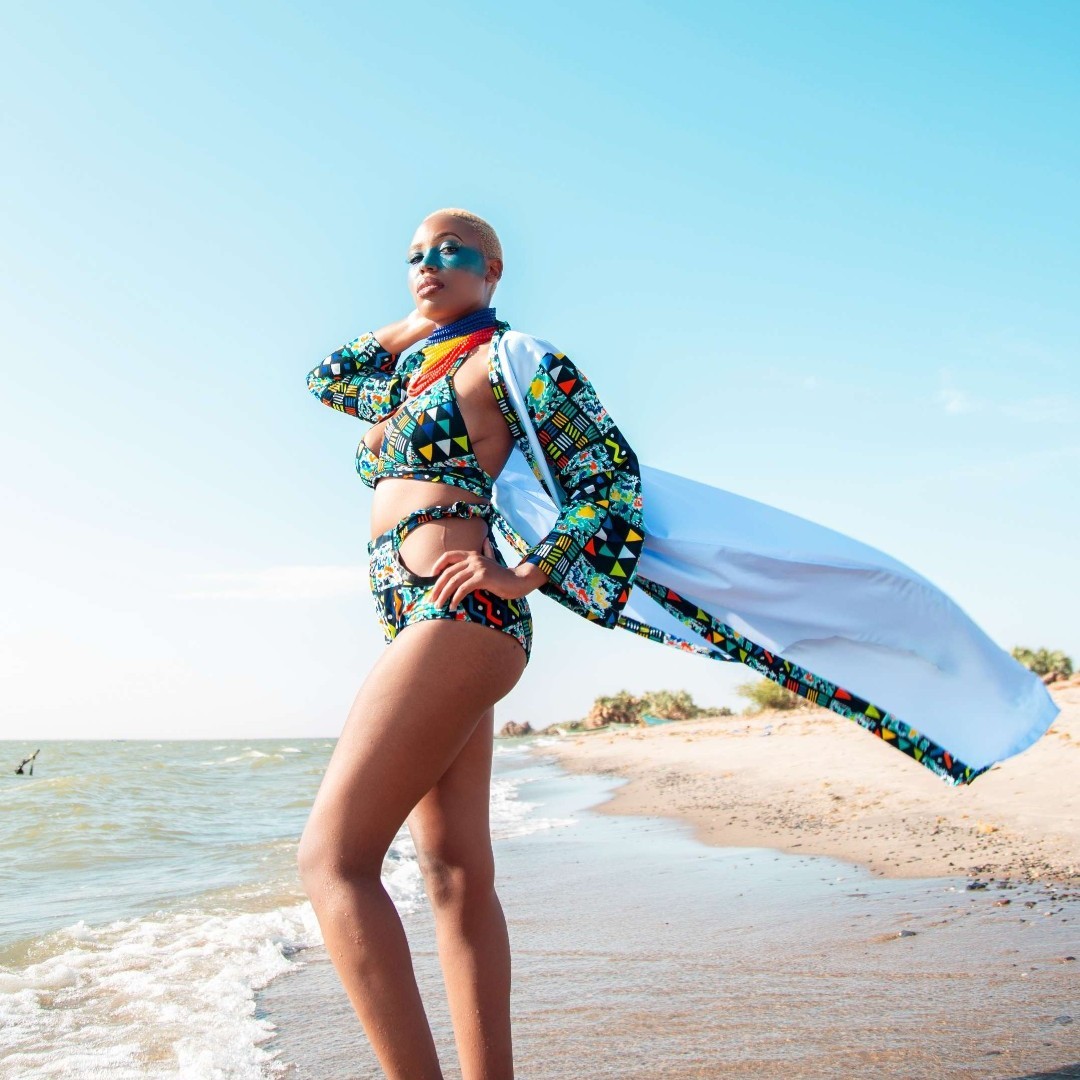 Made by JoDesign254, founded by Jonas Ndatabaye Balugurha, a 24-year-old designer originally from Congo DR but based in Kenya, creates and sells diverse fashion and graphic products among the winners of the Creative DNA 2024
Made by JoDesign254, founded by Jonas Ndatabaye Balugurha, a 24-year-old designer originally from Congo DR but based in Kenya, creates and sells diverse fashion and graphic products among the winners of the Creative DNA 2024
The British Council’s Creative DNA programme has unveiled its fourth cohort, consisting of 20 dynamic Kenya-based fashion startups. The Creative DNA 4.0 cohort spans various sectors, including apparel, bags, accessories, and footwear. Launched in 2020, Creative DNA aims to cultivate skills, knowledge, and international networks for local fashion designers. Since inception, Creative DNA has successfully incubated 51 fashion businesses in Kenya, leveraging connections to the UK market. The program’s commitment to diversity and inclusion is evident in its support for a wide range of fashion startups.
The Creative DNA 2024 cohort was set to benefit significantly from action-based learning methodologies. This includes coaching sessions, mentorship by esteemed Kenyan and UK industry experts, collaborative online campaigns, and unparalleled access to market opportunities within Kenya and the UK.
“The Creative DNA programme was created with transformation in mind, and since it was put into place, it has given Kenyan fashion designers both opportunities and challenges in equal measure. In addition to learning how to develop their businesses while competing for funds to do so, programme alumni have been given multiple opportunities by the British Council to explore prospects for expanding their brands and competing in international markets after completing the training.” Says British Council’s Project Manager, Kanze Nzovu.
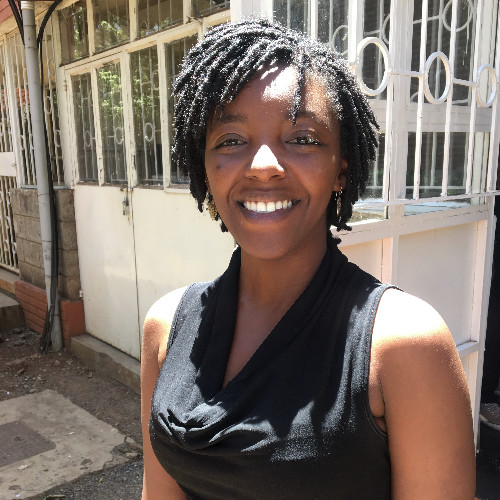 British Council’s Project Manager of the Creative DNA, Ms. Kanze Nzovu.
British Council’s Project Manager of the Creative DNA, Ms. Kanze Nzovu.
Creative DNA 4.0
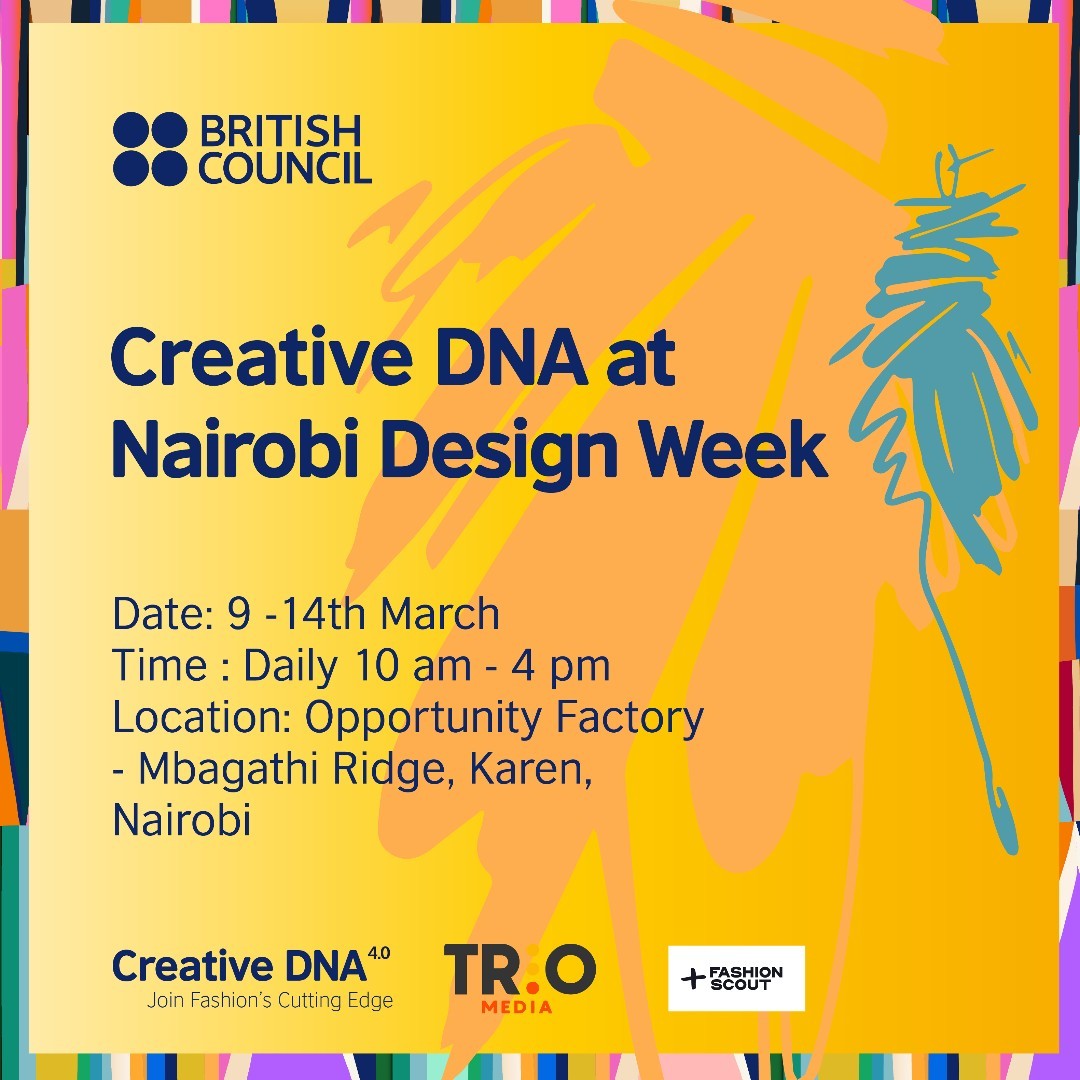
Members of this cohort were taken through a six-week BootCamp. This was conducted in collaboration with Project Manager Silvia Tonui, seasoned fashion designer and educator Ann McCreath, and Fashion Scout UK. It was tailored to address challenges encountered during the growth stage specifically. These included attracting customers, expanding to new markets, identifying strategic partners, and securing investment.
As part of the Creative DNA program, five seed grants were availed to enhance the participants’ ability to innovate for their businesses. This initiative demonstrates the program’s commitment to not only providing essential training but also offering tangible support to empower entrepreneurs. The combination of targeted mentorship, collaborative learning, and financial assistance creates a comprehensive platform for these fashion innovators to thrive in the competitive industry.
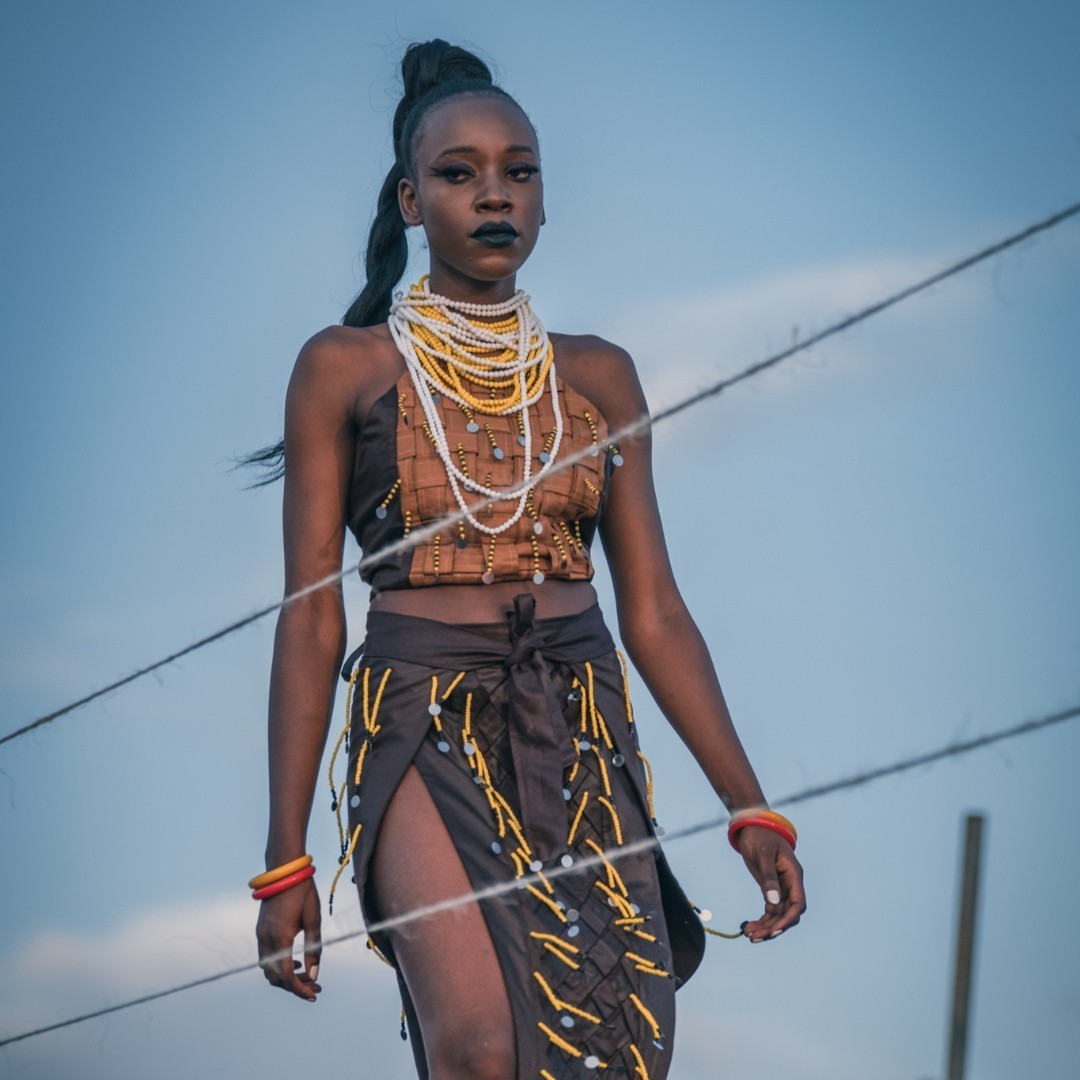
Made by JoDesign254, among the winners of the Creative DNA 2024
So far, Creative DNA’s impact has been felt globally. Recent delegations attended prestigious events such as the Africa Celebrates summit in Ethiopia and showcasing at IATF2023 in Cairo. Moreover, Creative DNA got royal recognition as demonstrated by their representation in an installation for King Charles’ maiden visit to the continent post-coronation.
LATEST NEWS
One week to go until Africa Sourcing and Fashion Week 2024: Designers, Exhibitors, and Speakers
01 November 2024 283 hitsOne week to go until Africa Sourcing and Fashion Week 2024: Designers, Exhibitors, and Speakers The countdown has begun for…
9 Years Milestone: Moses Turahirwa and His Moshions Brand Rwanda-Based
25 October 2024 434 hits9 Years Milestone: Moses Turahirwa and His Moshions Brand Rwanda-Based Over the past decade, Rwanda's fashion industry has emerged as…
What to Expect in Lagos Heineken Fashion Week 2024: Runways Kick off Today
23 October 2024 538 hitsWhat to Expect in Lagos Heineken Fashion Week 2024: Runways Kick Off Today The prestigious Heineken Lagos Fashion Week (LagosFW),…
Storytelling Meets High Fashion at The Kenya Fashion Story 2024
23 October 2024 626 hitsStorytelling Meets High Fashion at The Kenya Fashion Story 2024 The convergence of narrative and haute couture takes center stage…
Why Former Model Franco Kabano Is Backing the Stage Fashion Showcase's Founder
23 October 2024 537 hitsWhy Former Model Franco Kabano Is Backing the Stage Fashion Showcase's Founder In Rwanda's fashion industry, Franco Kabano and Sandrine…
The Stage Fashion Showcase 2024 Pre-Event Highlights Emerging and Established Talents: Main Event Set for November 1
20 October 2024 517 hitsThe Stage Fashion Showcase 2024 Pre-Event Highlights Emerging and Established Talents: Main Event Set for November 1 The fashion scene…
FASHION SHOPS
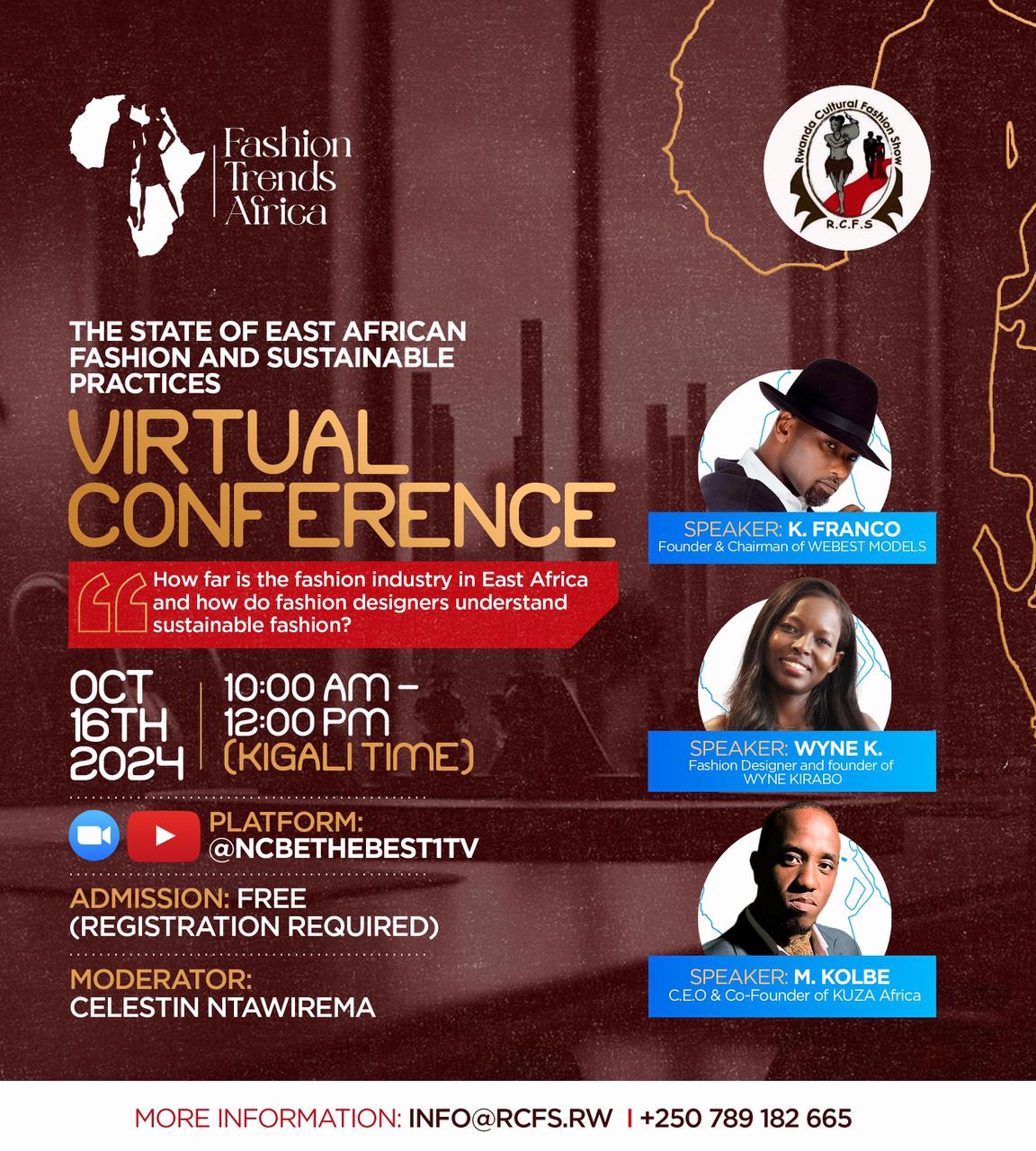



![Selected Five African Fashion Designers in the TechStitched Programme [PHOTO BC]](/media/k2/items/cache/c1a11e28afb03c9d81c096faa0a5ce8e_Generic.jpg)
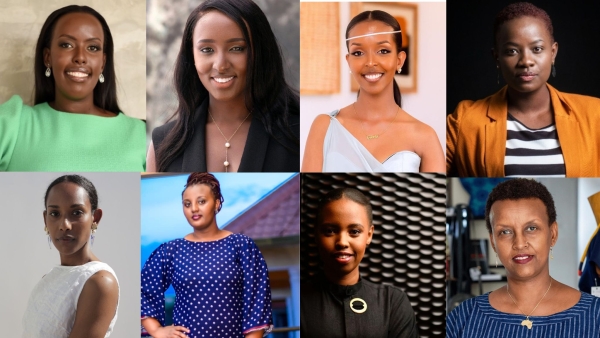
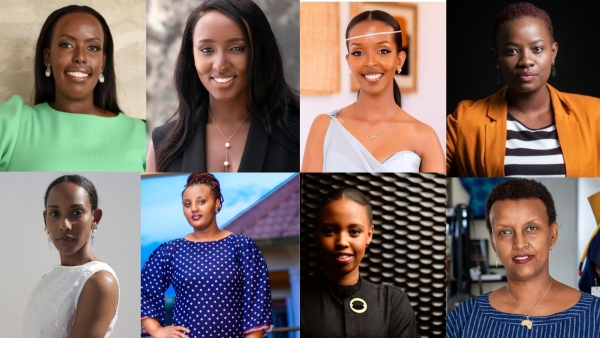
![Collection Made by Mesmer Clothing [PHOTO MESMER]](/media/k2/items/cache/bdc7d0f30e0c420b2ac279d6a1c096e4_Generic.jpg)
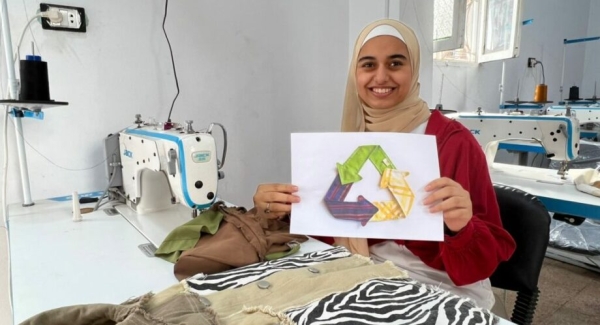
![Made in Ethiopia by Natanem Couture Showcasing at Hub of Africa Fashion Week 2024 (HAFW) [PHOTO NC]](/media/k2/items/cache/e9432fccf28a953514f077b86e5e657a_Generic.jpg)
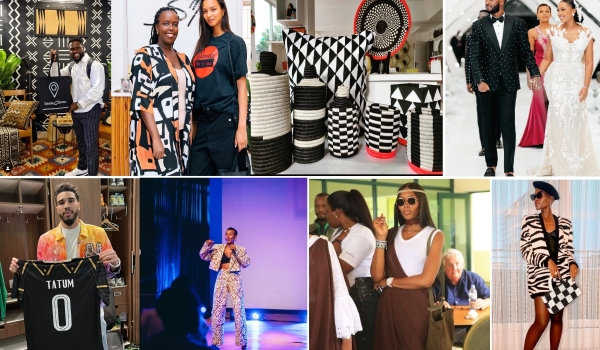
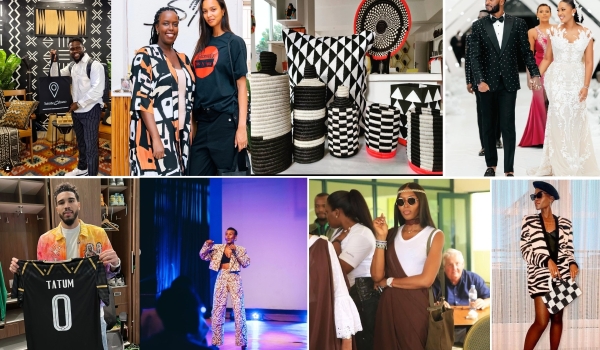
![Ugandan -Rwandan Miss Hannah Tumukunde Among Top 8 Winners in the Miss World 2024 [ PHOTO MW]](/media/k2/items/cache/11ff9b4c887cc2e009006cc7fd3aeb4c_Generic.jpg)
![Made by Kiarie_Afrika Fashion Brand based in Kenya by Charity Kiarie [PHOTO NDW2024]](/media/k2/items/cache/35b3ab2a19f46ac3056fff8ccff085c4_Generic.jpg)
